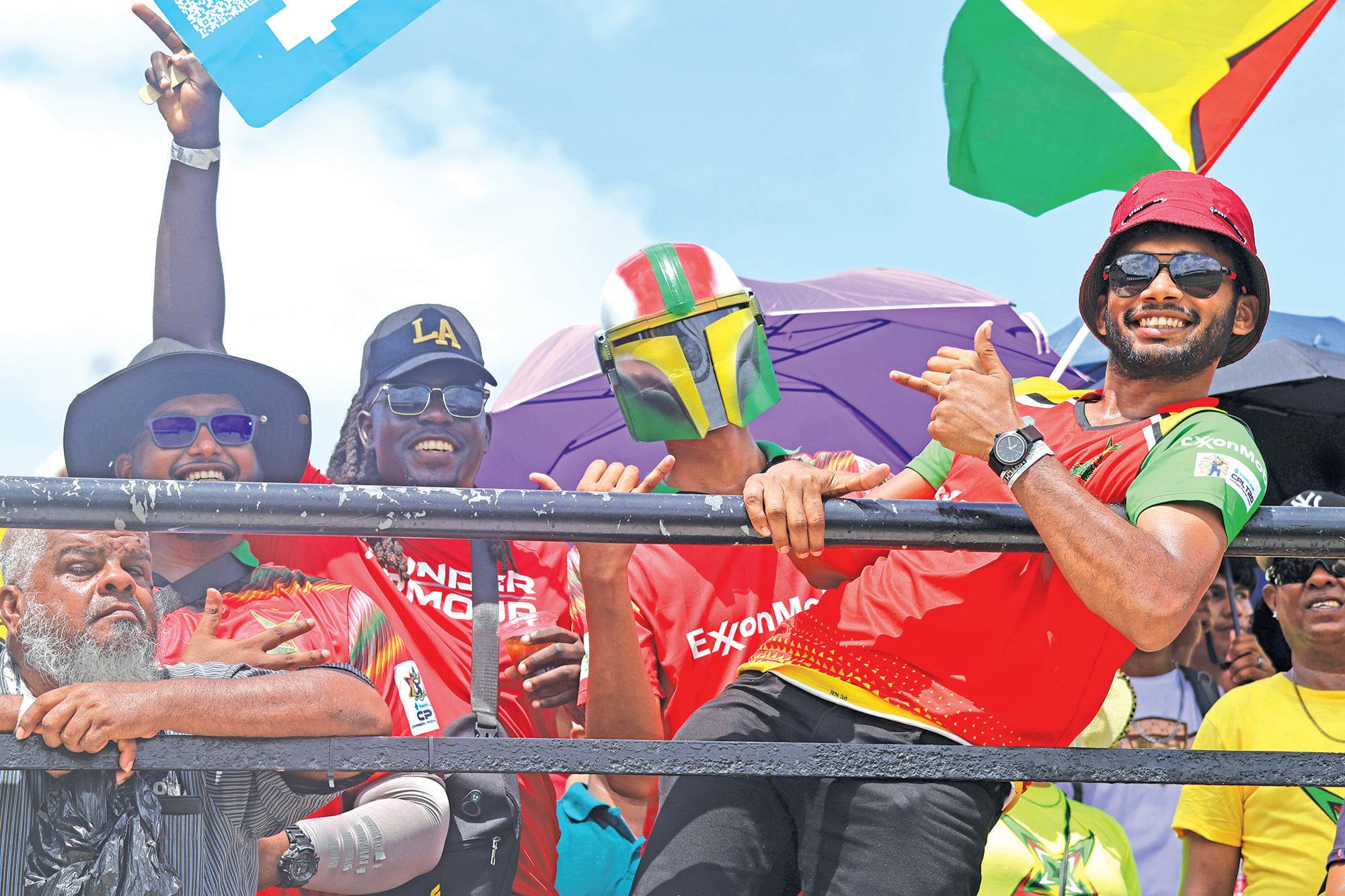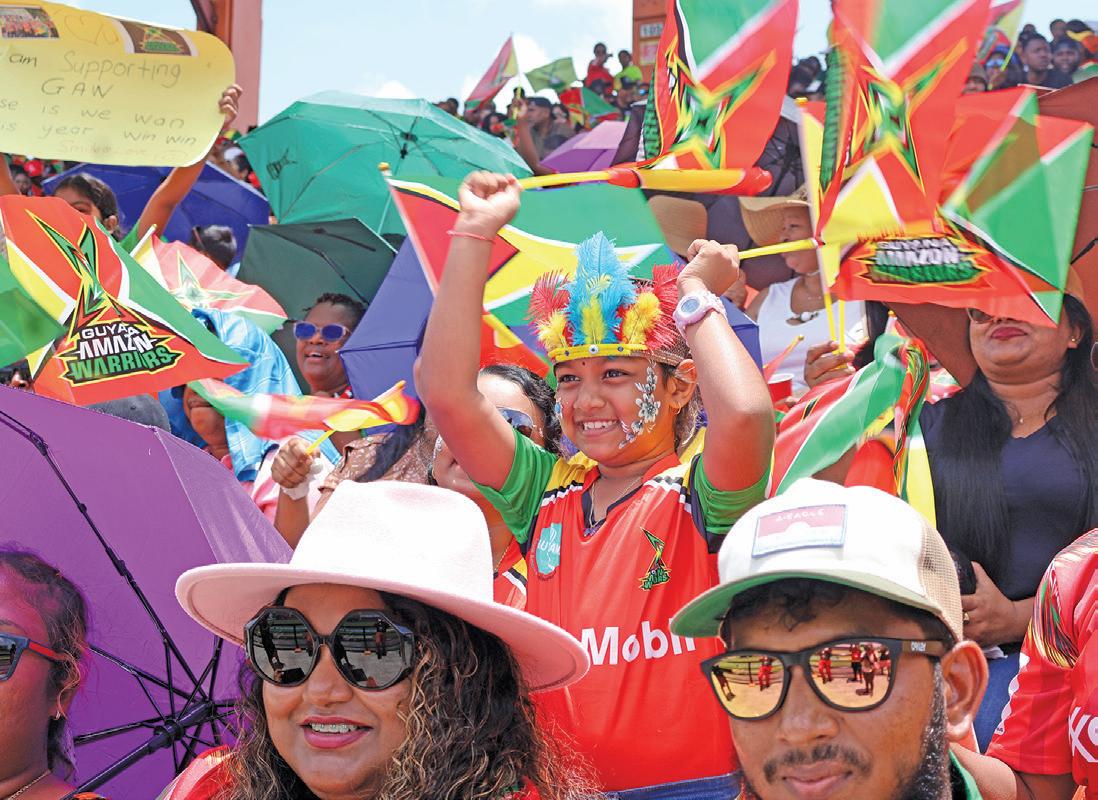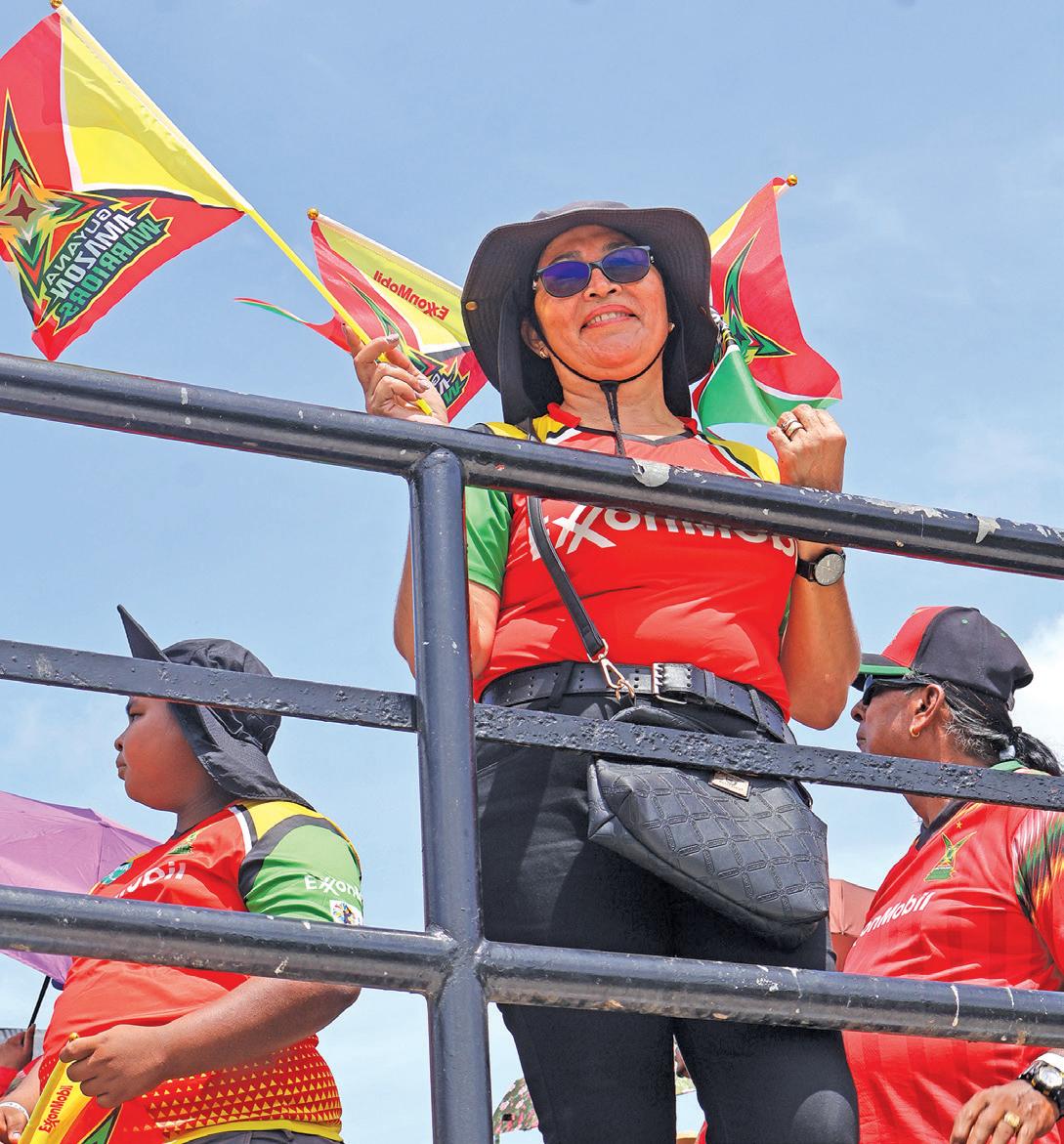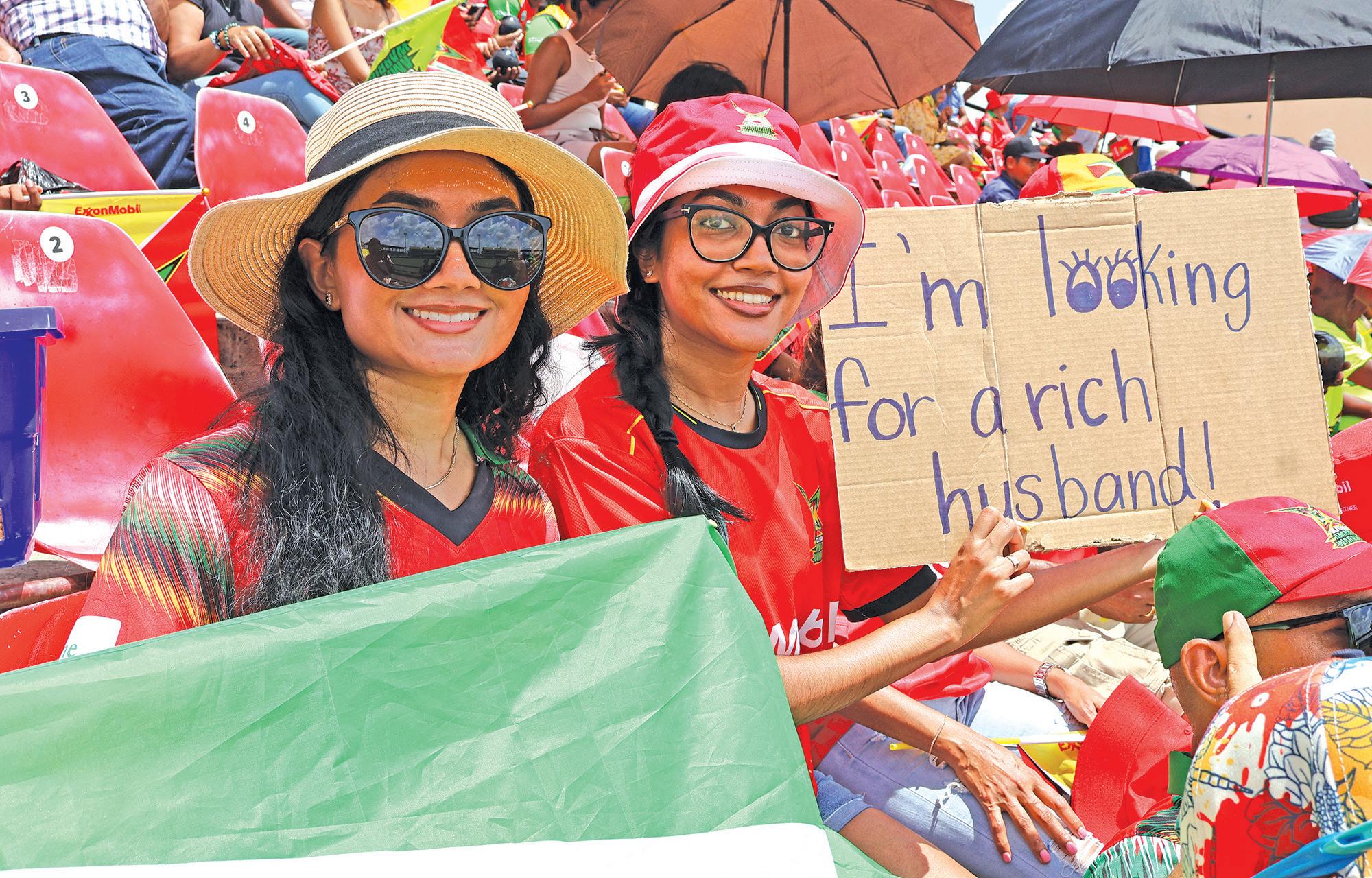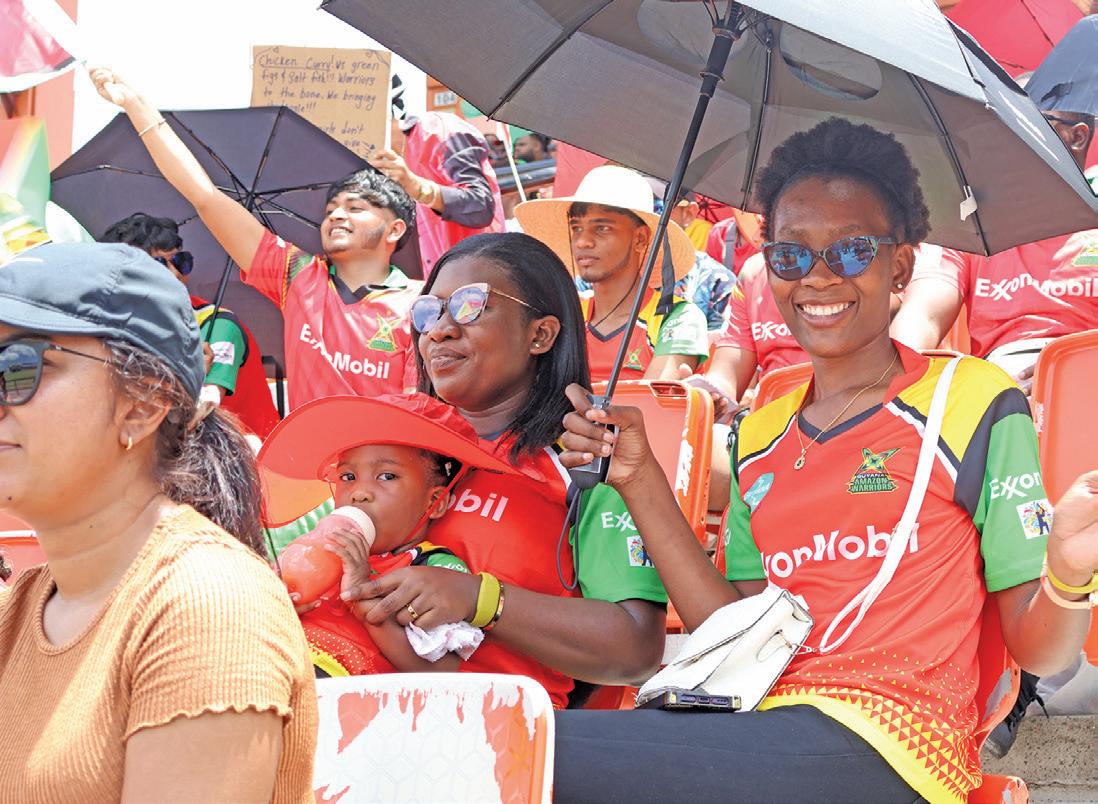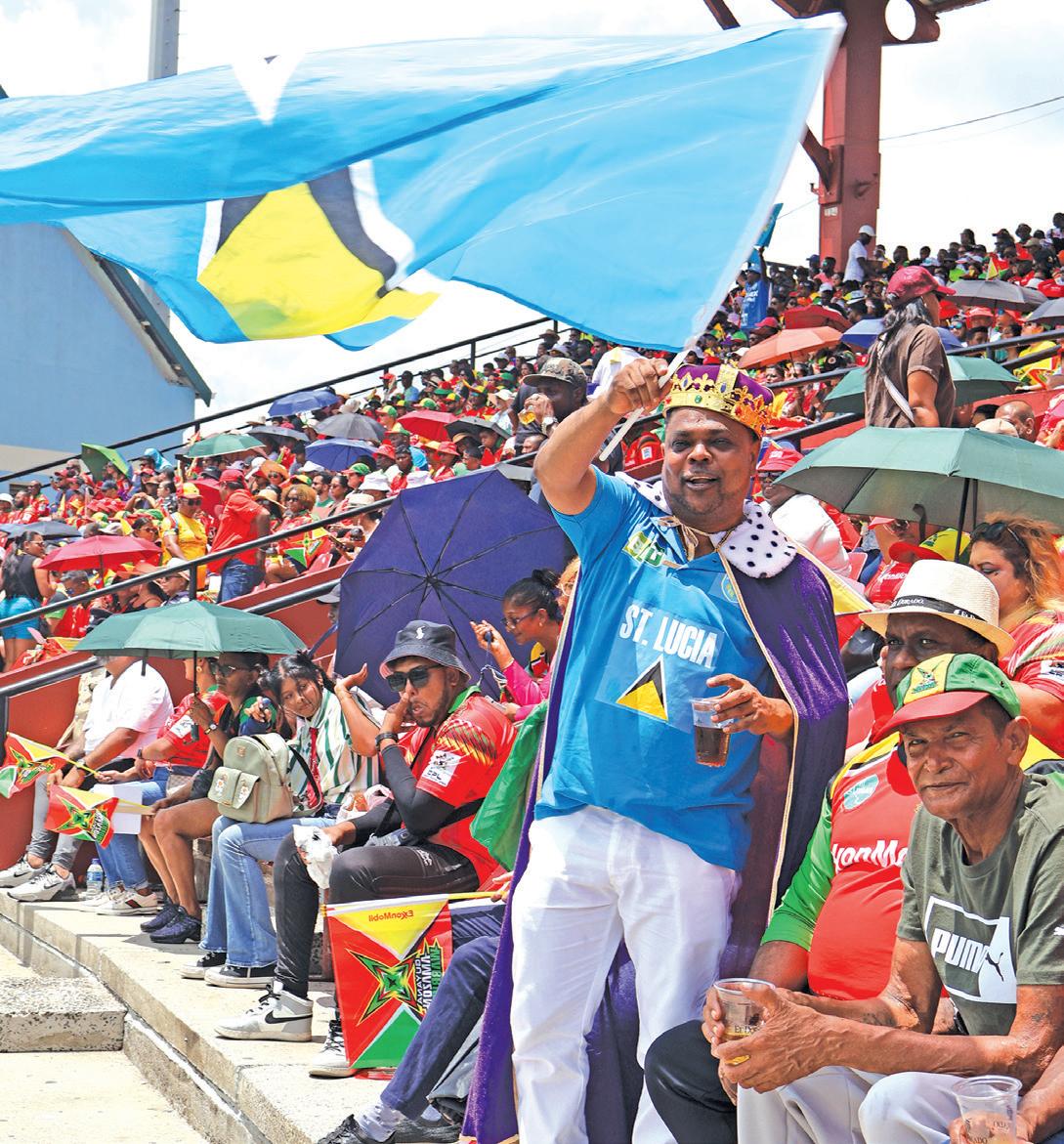

76-year-old Priest
Rita Hunter explains history of Amerindian Culture & Christianity in Guyana




76-year-old Priest
Rita Hunter explains history of Amerindian Culture & Christianity in Guyana

See story on page 5
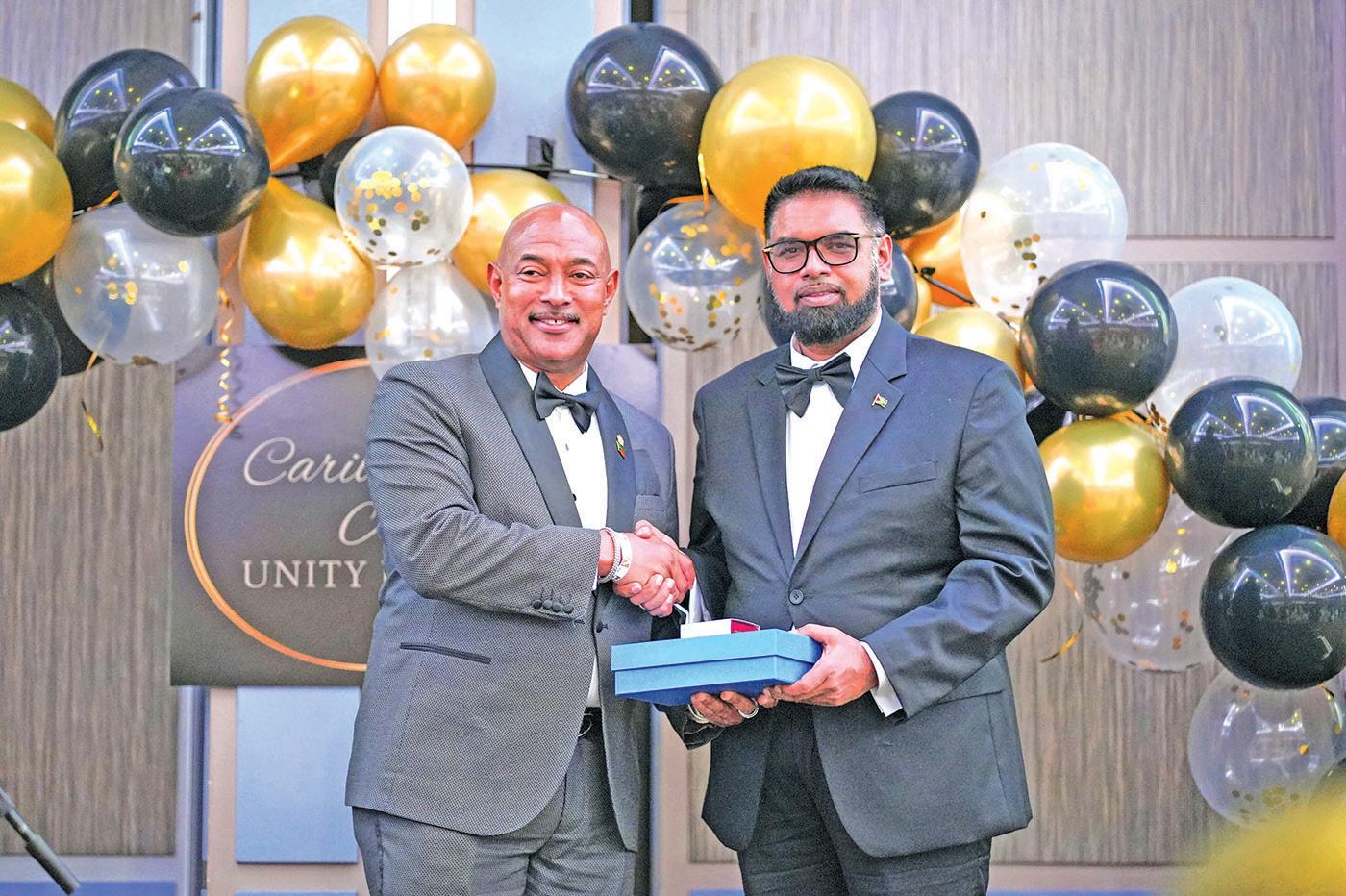
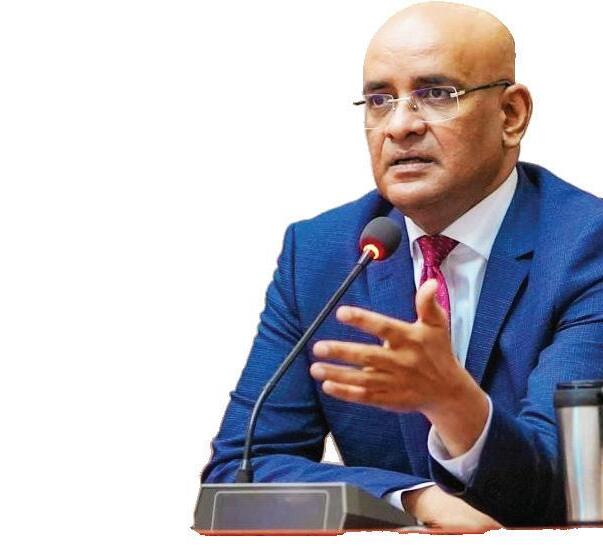
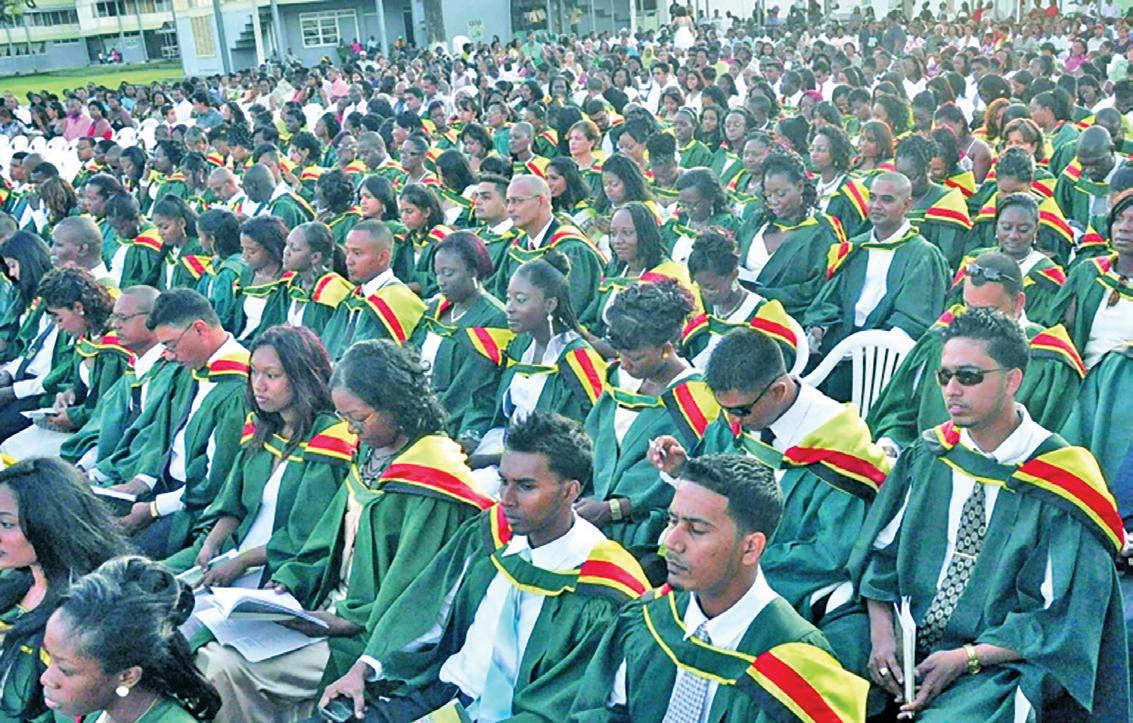
“Bad Boys” actor announces plans to produce films in Guyana
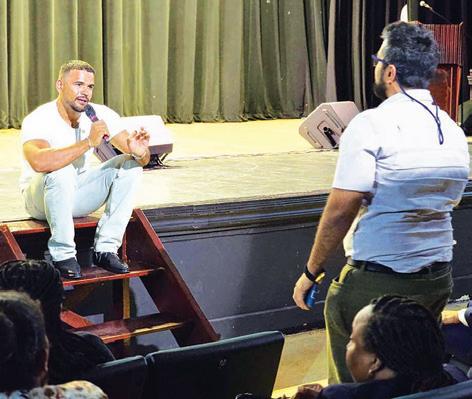
Croal urges patience as works continue to replace old pipelines in GT Minibus drivers urged to not exploit citizens
Cyclist dies after struck by car on WCB road
Cell phones, improvised weapons discovered in Mazaruni Prison search

Miner's body discovered in Bartica bushes, Police investigating
Police issue wanted bulletins for five in abduction case










Sunday, September 29 – no retraction and Monday, September 30 – 03:00h-04:30h.
September 29 – 14:50h-16:20h and Monday, September 30 – 15:25h-16:55h.






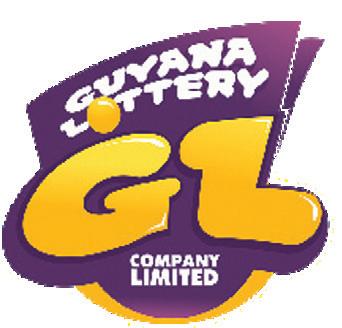








As the Guyana Government moves ahead with Phase Two of its model Gas-toEnergy (GtE) Project to match the rapid growth in electricity demand across the country, Vice President Bharrat Jagdeo believes that the second power plant and Natural Gas Liquids (NGL) facility could be completed within two years.
During his recent press conference, Vice President Jagdeo was asked about the likely timeline for the construction of the second phase of the project.
“We anticipate that this could be done in two years… And that, we believe, is an outside limit. So, depending on the date we start, we can kick this in or have it ready in two years,” he stated on Thursday.
Only two weeks ago, the Government invited interested companies to submit proposals for a second power plant and NGL facility at Wales, West Bank Demerara, – the project site for the current Gas-toEnergy project.
ExxonMobil, the operator of the oil-rich Stabroek Block, is laying 250 kilometres of 12-inch pipelines that will bring the gas onshore. However, only 40 per cent of the pipeline’s capacity will be used in Phase One to gas up the first power plant and NGL facility at Wales, bringing 50 million standard cubic feet per day (mmscfd) of dry gas onshore.
But with the pipeline having the capacity to push as much as 120 mmscfd of gas, Government is now moving ahead with Phase Two of the GTE Project that will utilise the remaining 60 per cent capacity of the pipeline and will see an additional 75 mmscfd of rich gas brought onshore.
Consequently, qualified firms are now being invited to respond to the Government’s Request for Proposals (RFP) to “design, finance, and operate” Phase Two of the Gas-toEnergy Project on the basis of a 20-to-25-year Power Purchase Agreement (PPA).
This second phase includes the design, construction, and operation of a 250 megawatt-MW combined-cycle power plant, to deliver 2100 gigawatt/hours of electricity per annum, which will be sold to the Guyana Power and Light (GPL) Inc. It also caters for the design,
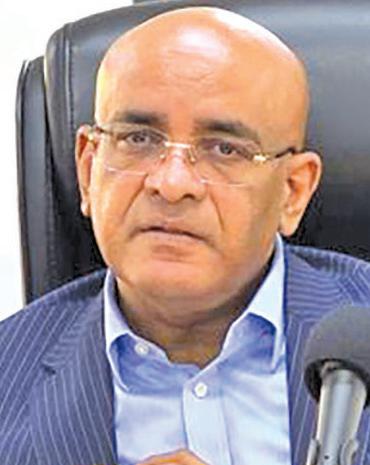
construction, and operation of another NGL facility to produce approximately 6000 barrels per day of NGL products such as propane, butane, and C5+gasolene.
Additionally, Phase Two also includes the transfer, at
and specifications.
This move to establish a second power plant at Wales is part of the People’s Progressive Party/Civic (PPP/C) Government’s efforts to transition to clean energy, slash the costs of electricity and provide reliable energy sources for the country’s booming economy.
VP Jagdeo reasoned that it would be better to have private investors develop and generate the power then sell this back to GPL at a much cheaper rate than the 50 per cent reduction that the current Gas-to-Energy Project would offer.
“Now that we’ve established the cost structure by making our own investment, we could easily buy the power, now, from a private in-
erating power at 22 cents per kilowatt hour, but when the GtE Project’s first phase comes on stream next year, this cost is expected to be slashed in half
According to Jagdeo, Government is anticipating buying power at an even much lower rate – six cents per kilowatt hour from the private investors, even with them paying for the rich gas from offshore.
He noted that all of these and other variables would have to be discussed as part of the bid document.
Additional details are outlined in the RFP document, which can be obtained from the Permanent Secretary of the Prime Minister’s Office for a fee of $25,000.

no cost, of excess “lean gas” estimated at 30 mmscfd, for utilisation in downstream industries, eg fertiliser production, to be located at Wales.
Based on the RPF document, the Phase Two projects will be located on no more than 100 acres of land, immediately adjacent to the existing 300 MW Integrated facility at Wales and will be 100 per cent owned and financed by the Private Sector – similar to the project finance structure of Phase One of the GtE Project.
It was noted that only firms (consortia) adjudged to be experienced in Engineering, Procurement and Construction (EPC) and Financing of comparable facilities, will be evaluated. Government also said it intends to appoint an independent supervision firm to ensure the project is built per approved contract quality

vestor… If an investor were to invest there to amortise their capital cost and pay for the power at, say, current prices at Henry’s hub for the gas, they should be able to supply power competitively – maybe around six cents per kilowatt hour or even lower,” he noted.
Currently, GPL is gen-
Interested parties must submit their proposals, which have to include financial projections of revenue, expenses, and investment returns, by 2: pm on November 14, 2024 to the National Procurement and Tender Board Administration (NPTAB).



Editor: Tusika Martin
News Hotline: 231-8063 Editorial: 231-0544
223-7230,223-7231,231-0544, 225-7761
Marketing: 231-8064 Accounts: 225-6707
Mailing address: Queens Atlantic Industrial Estate Industrial Site, Ruimveldt, Georgetown
Email: news@guyanatimesgy.com, marketing@guyanatimesgy.com
There is the old African aphorism: “When elephants fight, it is the grass that suffers”. We should have learnt this lesson, as it applies to international affairs, when the USA and the USSR were locked in mortal combat after WWII. The US had carved out the Western Hemisphere as their “sphere of influence” with their Monroe Doctrine in 1823, when Britain was the dominant world power; so, when the USSR obtained a toehold with communist ally Castro in Cuba by 1960, they faced the US’ kickback. During the Cold War, it was not surprising that when Dr Jagan equivocated in regard to his ideological leanings he was ousted. He had forgotten Sparta’s advice to the pipsqueak Melians: “The strong do what they can; the weak suffer what they must.”
While not yet as stark, we are in the midst of another struggle between two global behemoths – the US and China. This time it is based on economics rather than ideology, but the stakes remain the same: to be the hegemonic power going forward. There are several great ironies in this eventuality, not the least being that the rise of China from being a poster boy for poverty at the end of WWII was facilitated by the US. After several disastrous missteps under its leader Mao while attempting to repeat the USSR’s move to wrench their nation from a peasant base into an industrialised state, relations between the two communist nations became strained.
The anti-communist US President Richard Nixon saw an opening to drive a further wedge between them, in order to gain an advantage over the USSR by recognising Communist China and facilitating its entry into the UN and Breton Woods family of institutions in 1972. By 1978, when the leadership of China fell into the hands of the pragmatic Deng Xiaoping, who abandoned the dogmatic Maoist state economy, US businesses were ready to invest. They appreciated Deng’s philosophy of “it does not matter whether the cat is black or white, once it catches the mice”. This meant they could now take advantage of the seemingly infinite cheap labour of China. The profits were stratospheric, and US policy makers, lobbied by the business class, accepted the degutting of their industrial manufacturing base, which had previously serviced the world and brought them unheralded prosperity. By 2000, vast swaths of mid-America became known as the ”Rust Belt” because of the abandoned factories, as China became the “factory of the world” through injections of American finance and technology.
The global economy underwent a seismic shift as global manufacturing, trading networks and supply chains that had once been dominated by the US, Japan, and Germany now gave way to Chinese dominance. By 2021, China’s manufacturing capacity was greater than that of the US and EU combined.
However, by the middle of the last decade, the Trump Administration, which was panned for favouring the rich, realized that China was not only about to overtake the US as the largest economy in the world, but had built its economy to be less dependent on western technology while building its military capabilities. Unlike other Third World economies, which had been exploited for cheap labour but had remained trapped in a middle-income trap, China was strategically preparing to regain its historic place as the “middle kingdom” around which all other countries revolved. While using capitalism in its economic institutions, China had retained the centralized command of government to insist that decisions ultimately redound to its interest.
The Trump Administration slapped tariffs on a wide range of Chinese goods, and while this pushed up the cost of those goods in the US, the effects were felt much more gravely in China. China, in the meantime, had worked its way up the value chain, and the US has not weakened it fundamentally. The Biden Administration continued to discourage US businesses from investing in China, and, for instance, has prevented chipmakers from supplying Chinese companies with this key input in almost every modern manufactured good.
This strategy is “war by other means”, and we are being asked to choose sides.

In their inhumanity, conflicts in Gaza and Ukraine offer a shared, brutal vision of the future of war
...By acting with impunity and tearing up the rulebooks, warmonger leaders are setting an alarming precedent
By Simon TiSdall
It’s a golden rule of politics that national leaders do not interfere in other countries’ elections. Tell that to Volodymyr Zelenskyy, who jumped into the middle of America’s presidential campaign last week with both feet, wearing size 10 combat boots. The resulting, resounding thud could be heard as far away as Kyiv (which was perhaps the point).
Visiting an ammunition factory in pivotal Pennsylvania, Ukraine’s war-weary President told Republican nominee Donald Trump that, when it came to his appeaser’s policy of cutting off arms supplies and accepting peace on Vladimir Putin’s terms, he was talking out of his posterior. And Trump’s oddball running mate, JD Vance, was just plain “dangerous”, he said.
Zelenskyy’s blunt comments, and his warm embrace of Josh Shapiro, Pennsylvania’s Governor and close ally of Trump’s Democratic rival, Kamala Harris, had Republicans spitting blood. House Speaker Mike Johnson denounced the visit as a “partisan campaign event designed to help Democrats”.
Trump’s mouthy son Donald Trump Jr was also outraged by the popular Zelenskyy’s coruscating in-
tervention. “A foreign leader who has received billions of dollars in funding from American taxpayers comes to our country and has the nerve to attack the GOP ticket for president? Disgraceful!” he fumed.
Entertaining though all this is, it illustrates a wider, problematic modern phenomenon. In an inescapably inter-connected world, to twist a well-known phrase, all politics is global. Ukraine’s war matters in the US election. Many Ukrainian and PolishAmericans live in too-closeto-call Pennsylvania. Their votes could decide who wins the state and thus the White House.
It’s much the same with the war in Gaza and Lebanon, where Joe Biden’s perceived connivance with Israel’s criminally aggressive, hard-right government has alienated Democratic and independent US voters. Conversely, the future approach of Trump and Harris affects the calculations of leaders in Jerusalem – and Tehran, too. Does Prime Minister Benjamin Netanyahu bow to American-led pressure to agree an overall ceasefire, or does he keep fighting in the hope the less scrupulous, more ideologically compatible Trump wins in November?
Doubtless Putin is following a similar thought process, looking
for a Trump-facilitated way to escape his Ukraine quagmire while still claiming victory.
Iran’s President, Masoud Pezeshkian, offered a notable olive branch to the West at the UN General Assembly last week, proposing to revive the nuclear pact wrecked by Trump in 2018. He understands that, if Trump returns, the fate of his Hezbollah allies in Lebanon may be the least of his worries. Direct IsraelIran-US confrontation will be back on the agenda.
No two wars are the same, and that’s true of Ukraine and the Middle East. Yet US politics aside, several other external aspects are common to both.
One is the widening divide, on view at the UN General Assembly in recent days, between the West and the Global South – countries such as Brazil, Mexico and India – over how best to address the conflicts.
This standoff partly reflects the paralysis, caused principally by the US, Russia, and China, that has rendered the chronically unreformed, un-enlarged UN Security Council unfit for purpose. Ceasefire resolutions in both wars have been repeatedly, irresponsibly vetoed. Multilateralism is on its last legs, warns UN Secretary General António Guterres.
Yet the main criti-
cism levelled at Western Governments – that they pursue a double standard in decrying huge civilian casualties in Ukraine while continuing to arm Israel as it inflicts similar destruction – is hard to refute. It feeds a broader narrative of Western exceptionalism that, for example, undermines collaborative action on climate.
What else do the conflicts in Ukraine and Gaza and Lebanon have in common? Both are economically disastrous for all concerned. Russia has sustained serious damage, partly from Western sanctions, but mostly from the war’s enormous financial cost. Israel’s GDP contracted by 4.1 per cent after October 7, the Organisation for Economic Co-operation and Development says, and the slump is continuing. Extreme Palestinian suffering in Gaza requires no elaboration here.
Both conflicts are a diplomatic graveyard. Frustrated Egyptian and Qatari mediators on Gaza have all but given up. Pity Antony Blinken, the US Secretary of State, who has made multiple trips to the Middle East and gone home empty-handed each time. Turkey, Brazil, and China have floated Ukraine peace plans. Zelenskyy has a “victory plan”. None has prospered. CONTINUED ON

President Dr Irfaan Ali on Saturday evening received the Caribbean Global Leader Award from the US-based The Caribbean Global Awards.
The Head of State, along with First Lady Arya Ali, attended the award ceremony and gala held in London, England.
President Ali was recognised for his unwavering dedication and remarkable leadership in advancing Guyana’s interests while fostering regional cooperation. His vision and commitment have been pivotal in driving progress and prosperity across the Caribbean, a post on his social media page stated.
Back in April, the Caribbean Global Awards had announced that based on the results of the People’s Choice for the best Caribbean Global Leader, the Guyanese Leader had emerged with the most votes cast, an unprecedent -
ed 609 valid votes.
“This record-breaking participation underscores the immense interest and engagement of the public in recognising exemplary leadership within the Caribbean region,” the award entity had noted in a statement earlier this year.
President Ali has always maintained that Guyana’s prosperity must transfer to the Region. In addition to serving as Chairman of the Caribbean Community (Caricom) from January to June 2024, the Guyanese of Head State is also leading Caricom’s food security initiative, to cut the Region’s high food import bill by 25 per cent by 2025.
He is also playing an integral role in several other initiatives, including those funded by the United States Government, for food, energy and climate security in this hemisphere.
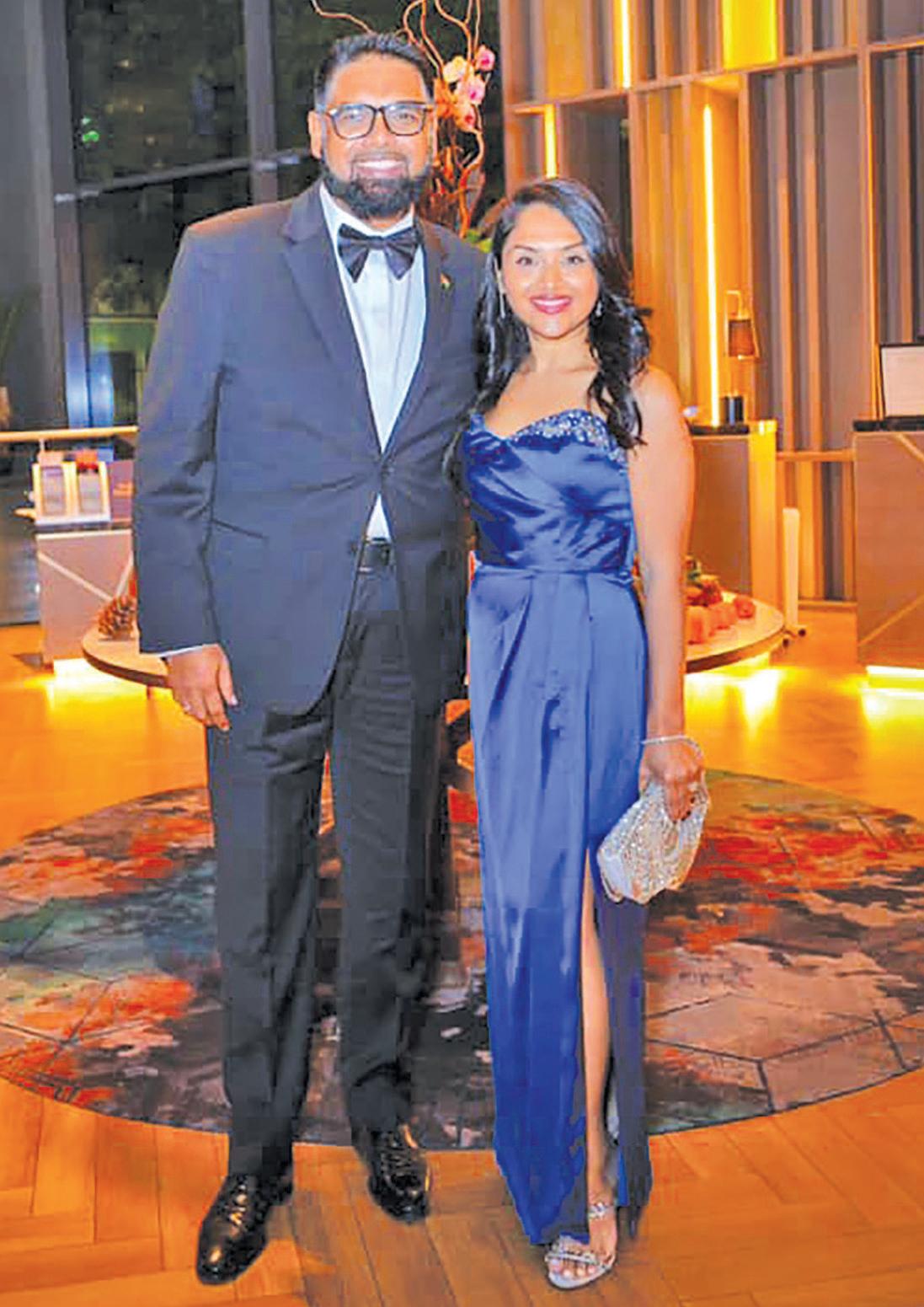
Protagonists in both conflicts continue to flout the Geneva conventions and international humanitarian law to a possibly unprecedented degree. Civilians are routinely targeted – while lying officials flatly deny targeting them. Tens of thousands have died. Hostages have been taken in both conflicts. No one is spared. In Gaza, more than 16,000 children have been killed.
Shocking, too, is the impunity enjoyed by war leaders. Putin was charged with alleged war crimes last year by the International Criminal Court (ICC). Not only has he not been arrested, he recently received the red carpet treatment in Mongolia, an ICC signatory.
Likewise, the ICC Chief Prosecutor requested an arrest warrant in May for Netanyahu, along with Hamas leaders, for alleged war crimes. It has still not been issued. Why? A ruling in July by the UN’s international court of justice declaring Israel’s occupation of
Palestinian territory illegal and ordering a withdrawal is contemptuously ignored. Brutal post-invasion repression of dissent, free speech and independent media in Russia, and the hounding and assassination abroad of regime critics finds an echo in the Israeli army’s wilful killing and banning of Journalists, the Government’s recent assumption of special powers and the shutting down of critical news outlets such as Al Jazeera. These are alarming precedents for the wars of the future. More than ever, modern-day warmongers such as Putin and Netanyahu use conflict to cement their power, defying democratic accountability, tearing up the international rulebook, breaking taboos, and pushing the outer limits of inhumanity. War becomes the justification for the unjustifiable. War becomes an end in itself. (The Guardian)
Simon Tisdall is the Observer’s Foreign Affairs Commentator

In light of several commuters taking to social media to complain about paying double the fare to travel on some minibuses in the afternoon, United Minibus Union (UMU)
President Eon Andrews is urging minibus operators to desist from exploiting citizens.
Andrews made this call on Friday during an exclusive interview with Guyana Times. During the interview, Andrews highlighted that minibus fares have always been an issue, and in an effort to prevent citizens
says better response from Govt needed to address
being charged extra, the Union in collaboration with the Tourism Ministry drafted a fair structure for minibus routes across the country.
“The Ministry of Tourism Consumer Affairs Department sat down and established a fare structure, that fare structure is supposed to be in the buses and there is no such thing as a morning fare or a night fare. These bus drivers are butchering customers,” the UMU President said.
In this regard, he called for the beefing up of enforcement measures by the Ministry, in an effort to ensure that citizens are not exploited.
“We know what’s going on. I’ve spoken about it at different forums, but nobody seems to be interested in protecting the consumers. We are working; we did what we have to do; but we cannot enforce, we could only advise and highlight. As the union, we don’t have power to enforce,” he said.
Addressing the issue of fluctuating maintenance prices, which is often cited by drivers as why a higher fare is demanded, Andrews
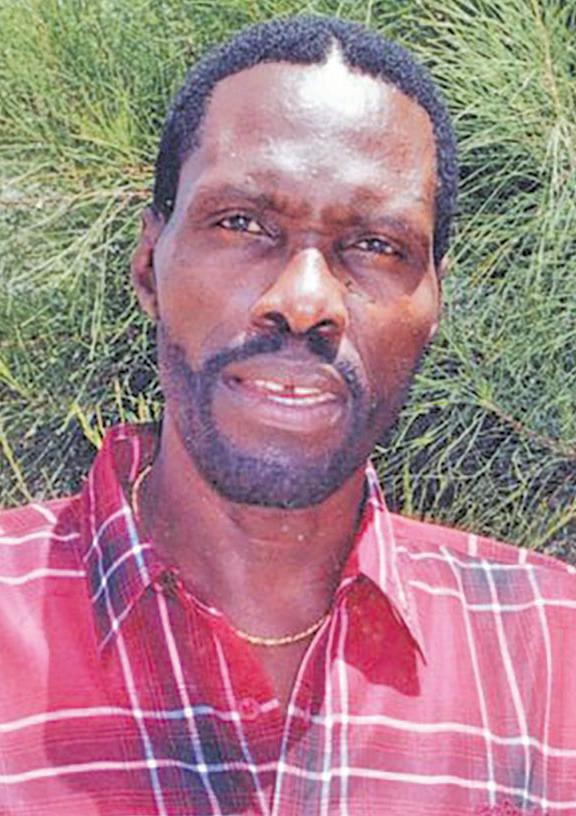
revealed that owing to circumstances, it would not be a fair move to demand consumers to pay a higher fare.
“Revising the fare structure is something that the union does not advise at this time, because it has to do with the consumer’s ability to pay,” he said.
Meanwhile, also speaking with this publication was Traffic Chief, Senior Superintendent Mahendra Singh ,who highlighted that the fare structure established by the Ministry should be displayed in the minibuses.
“There is a fare struc-
ture in place; the Ministry of Tourism controls the fare structure in conjunction with other persons and it is supposed to be displayed in the minibus, and exactly what the fare structure says, that’s what they have to pay.”
On that point the Traffic Chief highlighted that the Guyana Police Force was willing to address the situation; however, he urged persons to file a report rather than going on social media.
“We can take some action; the fares are set by the Ministry and other people, but it’s not something the Police can’t address, but how do we address it? We need a report,” he explained. We need one of the persons who is paying a higher fare to report it, because for the Police to take action – who is the persons filing the complaint?”
In September 2018, the Ministry of Tourism in collaboration with the UMU officially released the fares for minibuses across the country. The introduction of this document saw all minibus fares increasing by $20. The fare structure has not been revised.



SUNDAY, SEPTEMBER 29, 2024
(Sign on) Jewanram Gospel Hour
Cartoons
Shekinah Ministry
Evening News (RB)
Fast & Loud
Cartoons
David Persaud’s Religious Program
Blippi
Movie - Harold and the Purple Crayon (2024)
Movie - Godmothered (2020)
Movie - Parental Guidance (2012)
The Healing Touch
Maths is Fun
Week-in-Review
CPL Match 30
Stand-up Comedy
Sign off


s promised in last week’s PET CARE column, we will today conclude with Dr. Nandan’s contribution

a pigment called MELANIN, which gives rise to the variations of darker-coloured skin. This chemical protects darker-skinned animals from the sun’s ultraviolet

to radiation burns, which indeed complements our own experiences on the subject.
At the onset, it is important to explain that the skin contains
rays in particular. Melanin has a large system of freely moving particles (electrons) that ensure the

absorption of ultraviolet light and release the excess energy as heat, thereby protecting the skin.
In terms of treatment, it is advised that a cold towel be used; it should ideally be just below room temperature (except if the ambient temperature is too hot, or, as in Guyana’s case, using water from a black tank during the sunlight hours).
Using a cold towel
would affect the flow of blood to the traumatized area, and this would help the wound to heal.
For acute (sudden onset) radiation burns, the caregiver could immediately acquire and administer zinc oxide ointment/ cream on the affected skin. Zinc oxide is preferred over aloe/ cocoa butter lotions, because zinc oxide offers a cooling property as well as antimicrobial coverage.


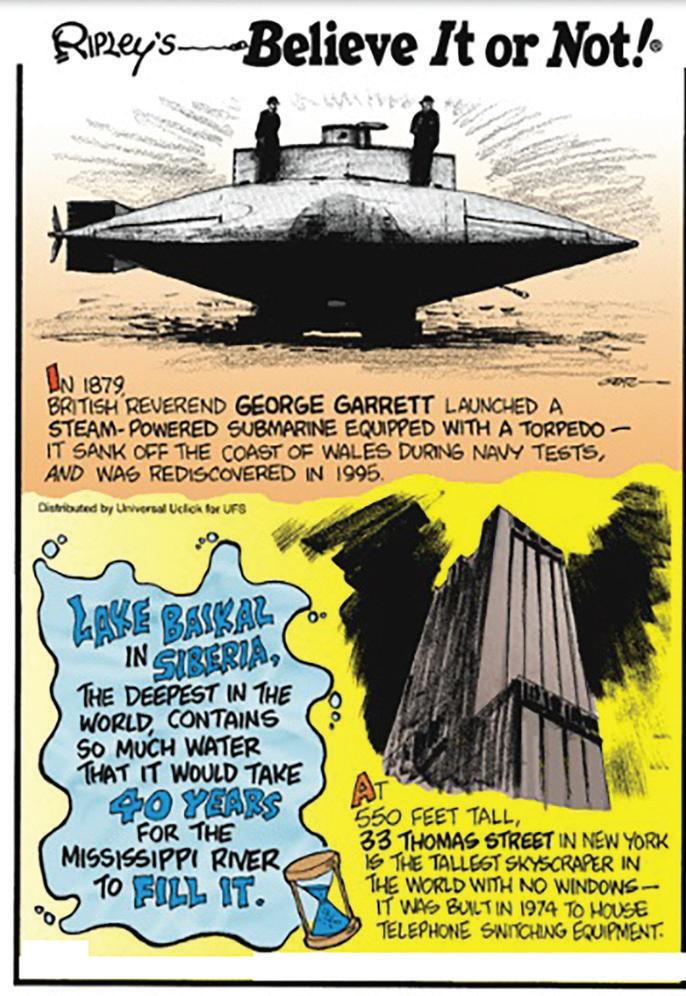
note that apart from lack of Melanin in the skin, animals are at risk of radiation burn if their coats are thinner. Dogs which have been groomed in such a way
extremely high levels.
As I mentioned earlier this month (Pet Care, September 1, 2024), I have come to realize that animals coming into vet clinics

(often requested by the owner) that the animal is practically bald would present such a condition, which exposes the skin to the full effect of the sun’s rays. It goes without saying that the “Mexican Hairless breed” (also known as the Xoloitzcuintli and


the Tepeizeuintli) really should not be brought to live in any area where the temperature soars as the sunshine beats down on the earth, and where the humidity
with severe solar radiation burns are usually victims of caregivers’ negligence. The owner might tie the dog in the shade initially, but when the sun “turns”, poor “Rover” is totally exposed to the solar rays. The unfortunate consequence is that the dog might succumb to a heat stroke.
As an aside, I mention a solar radiation burn that affects the nose bridge of the Collie breed, and is thusly called Collie


…now weighs Exxon's interests after previously prioritising only Guyana’s benefits
After previously maintaining that any review of the controversial 2016 Production Sharing Agreement (PSA) signed while it was in office should ensure benefits for the Guyanese people, the Alliance For Change (AFC) is now taking the interest of United States oil giant ExxonMobil into consideration.
At that party’s press conference on Friday, AFC Chairman David Patterson was asked about the party’s position on renegotiation of the 2016 oil contract, and he responded, “We have always said, on the question of the PSA, we would love to review any document, any contract, in all sectors: not only in the oil and gas sector; not only limited to
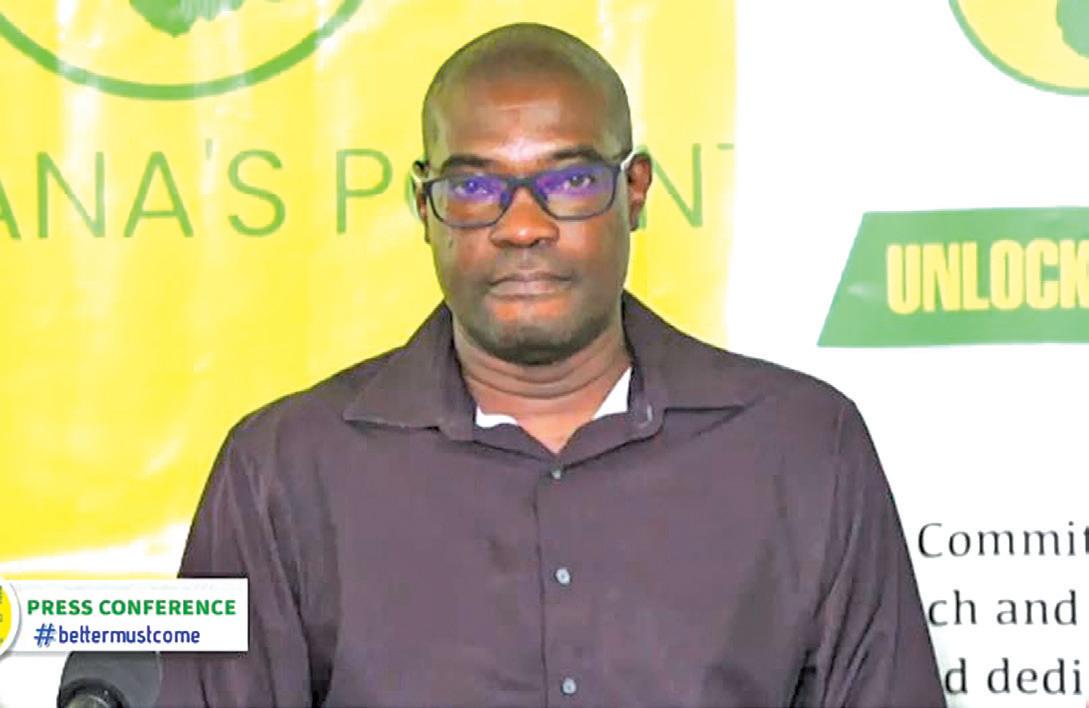
of the pioneering work that Exxon has done.”
In the past, as recently as July, Patterson told reporters at a press conference that the AFC, a minority parliamentary opposition party, was in favour

Exxon; (but) that (which) would be to the benefit of the Guyanese public…
“(On) the question of reviewing the [2016] PSA, obviously it has to be to the benefit of all, not only the people of Guyana; obviously it has to take cognisance
of any revision of the PSA which will be “to the benefit of the Guyanese public” – a position he had reiterated later that month without making any mention of the oil company.
But the AFC’s new position of placing Exxon’s inter-
est in the fore comes in light of serious conflict-of-interest concerns regarding the party’s new leader, Nigel Hughes, and the oil company.
Hughes, an attorney-at-law who was elected to the helm of the AFC back in June, has faced mounting criticisms over the conflict-of-interest position that exists between his professional and political careers. Further, those criticisms have been exacerbated after the attorney said he would remain with his law firm of Hughes, Fields and Stoby -- which has represented ExxonMobil in negotiations with the Government of Guyana, including on the lopsided 2016 oil contract -- until he is elected to office; and would even put his client’s interest above the country’s.
Hughes later told reporters at an AFC press conference that he would keep the party’s oil and gas matters at arm’s length.
While ExxonMobil Guyana President Alistair Routledge has contended that the company does not believe there is any conflict

of interest in being a client of the law firm of which Hughes is a partner, the Guyana Government believes this relationship constitutes a serious conflict of interest.
Vice President Bharrat Jagdeo has told reporters at a press conference in July that while Routledge is entitled to his opinion, this position would not fly with Government. He had also pointed to the obscenity of Hughes’s statements and argued that this could easily be turned into paying for policy influence.
“How could you, as a leader of a party, not pay attention or talk about oil and gas now in this contemporary context, when that’s one of the most topical issues…Exxon is a conflict party, too, because they have on their payroll in the country of Guyana the leader of a political party that is represented in the National Assembly [and] has a number of seats in the National Assembly, and therefore in a position to have a say on policies…How is this not a conflict of interest?” Jagdeo questioned.
Against this backdrop, the Vice President has assured that the Government of Guyana would be reaching out to the US oil major on this matter soon.
VP Jagdeo had previously hinted that there could be an investigation into Hughes’s involvement in the negotiations of the 2016 oil contract. He had cited what he described as some “telling” details that are contained in several reports done back then that contradict Hughes’s claim that he had already re-
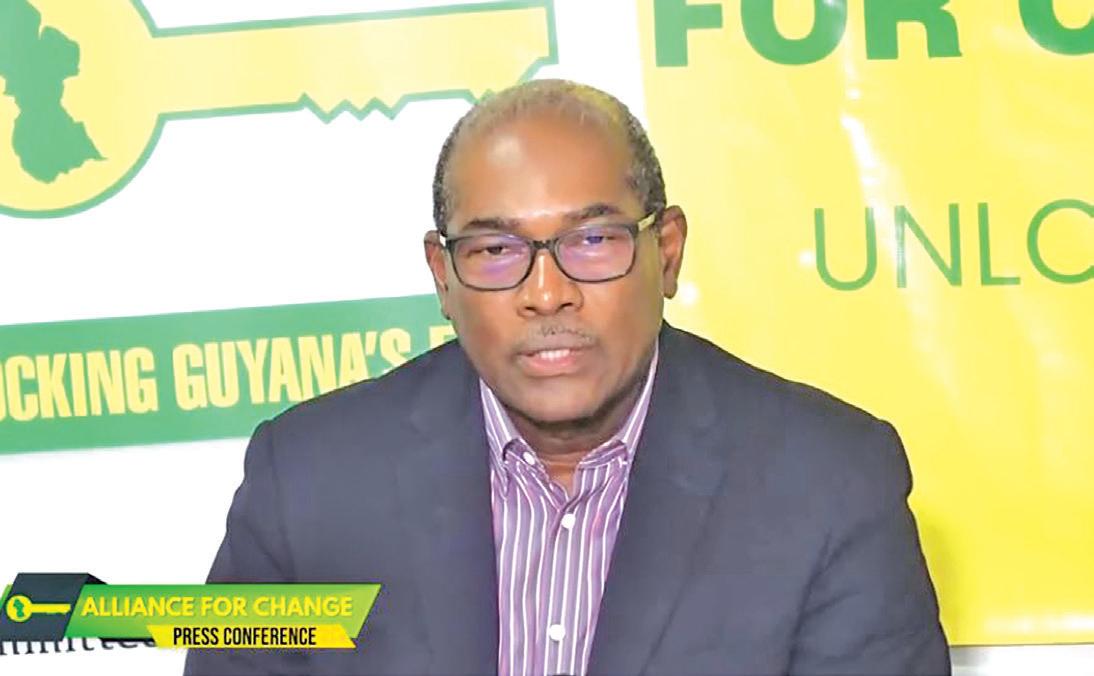
signed from the AFC when his law firm was representing the oil company.
A report done by United Kingdom-based global law firm Clyde & Co revealed that Hughes resigned as AFC Chairman on April 11, 2016 – just three days before the concluding stages of the contract negotiations.
According to the report, commissioned by the coalition Government to defend the oil contract it signed with Exxon – a deal that many industry experts say has left Guyana short-changed, with sweeping benefits going to the US oil major and its partners -- those negotiations began almost a year earlier, in May 2015, while Hughes was still serving at the helm of the AFC, the junior party in the A Partnership for National Unity(APNU)AFC coalition.
During a press conference in July – his first since being elected as AFC leader -- Hughes had denied that there were any conflicts since he had never directly participated in the negotiation process. He had added that the Exxon account is
handled by another partner at the law firm.
However, Jagdeo rubbished this explanation, pointing out that, as a partner, Hughes still benefits from the funding of the oil company. In fact, while Hughes is claiming that he has no direct dealing with Exxon, the Vice President showed that, just days prior, the Attorney had appeared virtually on a court case as one of the lawyers representing the oil company.
In addition to this conflict-of-interest issue, Hughes had sparked a contentious debate after the no-confidence motion was passed in the National Assembly against the David Granger-led coalition administration, back in December 2018, when he argued that 34 and not 33 was the majority of the 65-member Parliament, and so 33 yes votes were not enough to pass the motion. This argument was eventually dismissed by the High Court and Guyana’s final court, the Caribbean Court of Justice (CCJ).




One of the challenges in governing a divided country like ours is: how’d you please “the people” - when the people don’t see themselves as “a people”? Good thing this problem isn’t confined to our dear mudland. In fact, it’s the default situation in the world, in countries, villages, and even in families!! Remember when mom favoured her favourite son over you?!! And that’s the rub, innit?? Even when the Government tries to be even-handed, we’ll still compare and get bent outta shape!!
So, it’s up to us citizens to sift out the fake news from the real news before getting our dander up. Now, don’t get your Eyewitness wrong; it doesn’t mean there’s no unfairness. NO ONE can be absolutely fair, even when trying!! And when it comes to governments, since most appointees are more concerned with filling their own pockets than the pockets (even the bellies!) of the people, you gotta pay great attention to what you’re being told; especially by whoever’s in Opposition - since it’s their job to poo-poo the Government’s performance.
But as we know to our cost – several riots, mass murders, and burning down of whole sections of our country, for starters – folks on the ground are all subject to what’s called “confirmation bias”: we hear what we wanna hear, especially in our Guyana. We’ve been poor for so long that we just can’t seem to keep our heads above water. It’s easiest to believe that Government’s helping only THEIR people, while WE stagnate or fall further behind.
Take a challenge – ANY challenge – say, on roads. If we’re honest, there ain’t a community where roads aren’t in the most horrendous condition. But we personally don’t go into EVERY community in Guyana, do we? Especially in areas where PEOPLE LIKE US aren’t living. So, when we’re told the Government’s fixing THEIR supporters’ roads, we get all bent out of shape!! And since Aug 2, 2020, when Granger reluctantly stepped aside, that’s all the PNC Opposition and their lackeys have been doing: inciting their supporters with daily harangues about them being neglected; and in our context, claiming explicitly that the Government’s RACIST!! In Guyana, of course, there’s no more incendiary charge than that!!
So, what does the Government do?? Well, for one, throw out facts of the Government’s interventions in Opposition strongholds – which in Guyana means African Guyanese-dominated areas, and trying to get locals involved!! But this has raised cries of “buying” people, and even more incendiary “slave catching”, from Opposition troglodytes!! Imagine that!!
From the beginning of democracy, when approval from the people was “bread and circus”, it was recognized that people gotta be given something!! So, why lie about it and provoke hostilities?? The ERC’s gotta be reconstituted to deal with the provocative harangues!!
One of the other provocative claims the PNC Opposition’s been making for years under PPP governments is that banks discriminate against THEIR supporters on loans -- implying the PPP’s responsible!! And that’s why they’re stagnating economically. But is this really true? Let’s look at some facts. After Burnham seized power in 1968, he NATIONALISED all banks. And for the next two decades, he gave out so many loans to his supporters that the Guyana National Cooperative Bank went bankrupt. Where did all that money go?
And when the PPP took over, and private banks reentered the picture, wasn’t the Trini Republic Bank the biggest bank from then?? Were they controlled by the PPP? And then Banks DIH opened up Citizens Bank, was that PPP-controlled? We won’t even talk about Globe Trust!! And why didn’t the PNC between 2015 and 2020 accept applications to have an African-owned bank opened??
But Your Eyewitness is pleased that the PPP just arranged for the New Haven Bank to be opened. Let’s hear what the “problem” is now!!
…for wider war
Hassan Nasrallah, the revered and reviled longtime leader of Hezbollah, was killed on Friday in an Israeli airstrike. What this means is the Israeli genocide in Gaza would now be attempted in Lebanon.
Hai Allah!!


In keeping with its manifesto promise to provide free education at the University of Guyana, the People’s Progressive Party Administration is this year seeking to write off the loans of some 2,900 students, totalling approximately $5 billion.
During his weekly press conference, Vice President Dr Bharrat Jagdeo has urged former University of Guyana students with outstanding loans to apply for the write-off programme by stating, “If more people come in, we would write all of it off in a single year; the full $18 billion, once they are eligible. I want to urge the students who have outstanding debts to just apply for the write-off, so that we can proceed with doing so. It will be a pretty large number of students — thousands of them.”
Some 346 students have already had their loans -amounting to $203.7 million -- written-off, according to the 2024 Mid-Year Report of the Ministry of Finance.
Government had announced this student loan write-off programme in its 2024 budget, presented earlier this year. Phase one of this programme is expected to benefit around 13,000 individuals and forgive a staggering $11 billion in loans. The overall plan is to eventually write off a total of $18 billion in student loans.
The student loan writeoff is a key component of the People’s Progressive Party’s 2020 manifesto, and represents the initial steps toward achieving free university education by 2025.
Apart from the loan write-off initiative, Government has been actively promoting the Guyana Online Academy of Learning (GOAL) programme, which offers free university education opportunities. To date, Government has invested $1.6 billion in scholarships through this programme; and as at May 2024, over 4,000 individuals have graduated with degrees, diplomas and certificates while an impressive 8,023 GOAL scholarships have been awarded for studies that commenced in September 2024.
It was reported earlier this week that a total of 346 UG students have had their student loans written off as Government commences phrase one of its Student Loan Write Off Programme. According to the Finance Ministry’s 2024 Mid-Year Report, approximately $203.7 million in student loans has been written off by Government.
Beneficiaries of this phase are former students who were able to prove they had completed their course of study and had graduated; and subsequent to graduation, have been employed or self-employed in Guyana for a minimum of three years, as evidenced by a minimum of 156 contributions made to the National Insurance
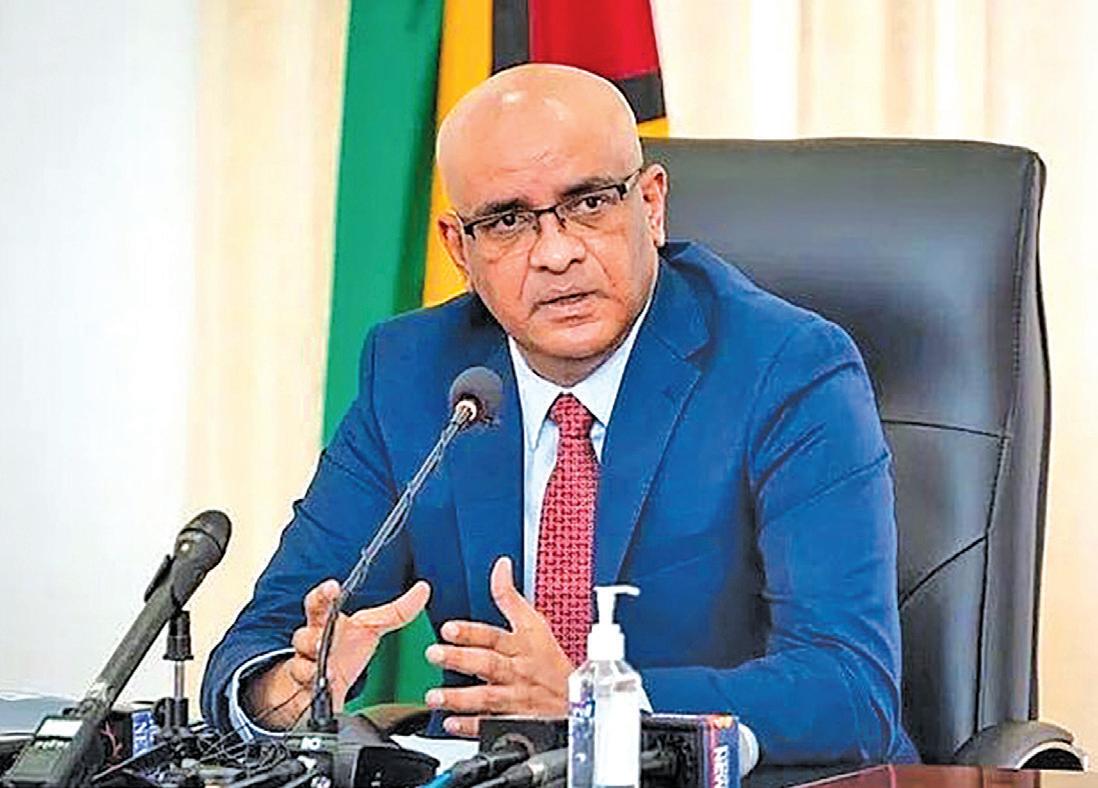
Scheme.
An additional 2,900 persons who have qualified for this student loan write-off would benefit from the initiative in this second half of the year; and overall, 13,000 Guyanese would benefit from this initiative implemented by Government. The programme, which aims to make tertiary education free by 2025, is the brainchild of President Dr Irfaan Ali, and its implementation follows a promise made in the People’s Progressive Party Civic (PPP/C) 2020-2025 manifesto plans.
Vice President Dr Bharrat Jagdeo has noted that a mechanism would be implemented to assist students who have already paid their dues to the University of Guyana but are repaying loans at commercial banks. In one of his weekly press conferences, the Vice President had said that with provisions having already been made to waive outstanding student loans acquired within the current term in office of this administration, and given that the intent is to make tertiary education free, this feature is already technically effective.
However, Dr Jagdeo, in expressing concerns about the potential escalation of costs during this transition, and in emphasising the importance of quality education being delivered in alignment with the country’s needs, has suggested that a strategic approach to tertiary education be implemented, that includes sourcing technical training programmes from other institutions instead of immediately establishing new programmes at UG.
“UG will always have a critical role to deliver tertiary education, a prime role in our country. This is our university, and we should keep it as such, and we need to fund it well and improve it,” Jagdeo has asserted as he stressed the importance of providing quality education that meets the country’s needs and helps students secure valuable employment after graduation.
Ultimately, he said, Government is dedicated to adequately financing the university and enhancing its role in delivering quality tertiary education to all students in Guyana. In the meantime, opportunities are also available to acquire
an education through the Guyana Online Academy of Learning (GOAL) scholarship programme, which has seen the Government partnering with educational institutions around the world to offer courses that would meet the challenges and demands of various sectors in Guyana, including the oil and gas, engineering and

construction, and information security sectors.
According to the Vice President, the anticipated influx of higher qualified persons into the workforce would create in the public and private sectors conditions that have to be ad-
dressed.
Government has, through GOAL, already distributed over 20,000 online scholarships in 187 programmes that can be accessed from 15 reputable academic institutions across the world, including in India, Africa, the United Kingdom and Germany.
According to the midyear report, the first half of 2024 has seen 8,023 GOAL scholarships being awarded to persons who have commenced studying in September 2024.





President Ali’s appearance before the UN General Assembly (UNGA) has highlighted the growing impotence of that institution which was to be the centerpiece of the promise of multilateralism after WWII.
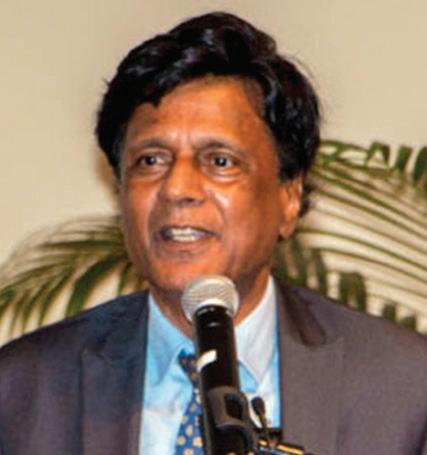
All countries – now 193 - were to be involved in not only preventing future wars, but in ensuring that members cooperate to promote trade and human rights, and end hunger and health epidemics etc. However, the promise was undermined from the very onset, when the victorious nations arrogated to themselves permanent membership and veto power over the decisions of the UN Security Council (UNSC).
Only the UNSC is authorized to enforce decisions of the UNGA, using military intervention if necessary; but the two “hot” wars presently being waged in Ukraine and Gaza - even though the UNGA voted that the invaders withdraw - vividly illustrate the UN’s impotence. As such, our appeal to the UNGA about the more than a half-century of depredations by Venezuela to annex two-thirds of our national territory, including our latest initiative to involve several UN organs like the ICJ, would ultimately be for naught.
A corollary to the arrogance immanent in their veto power in the UNSC is the role of those same nations in betraying the UN’s promise to end wars by immediately launching a “Cold War” between the US/West and USSR/ China. This erupted in the very hot Korean War, followed by the Vietnam War and innumerable skirmishes in proxy states. The ouster of the PPP government in 1964 following the instigation and facilitation of ethnic violence was our ‘encounter’.
By 1989, the USSR crumbled, and we saw the emergence of “unilateralism”, with the US as the sole global hegemon in a unipolar world. But that did not last long, and we are now in the throes of a new Cold War, this time between the US and China, which both have veto power in the UNSC.
As in the previous Cold War, blocs are coalescing around the two protagonists, and there is talk about a new “multipolar” world in opposition to the hegemonic US and its “rule-based order”, with fears of new crises emerging.
At a similar inflexion point before WWII, when Britain was the hegemon emerging from WWI and fascism was about to emerge, the Italian theorist Antonio Gramsci had written: “The crisis consists precisely in the fact that the old is dying and the new cannot be born; in this interregnum a great variety of morbid symptoms appear.” But the talk of multipolarity is premature, and we see the “morbid symptom” of fissures within BRICS, for instance, represented most recently by India’s rejection of China’s yuan for trade exchanges. India is implicitly rejecting China’s dedollarization and signalling a commitment to maintaining the US dollar as the dominant currency.
But this does not ineluctably mean a move towards multilateralism, with the UNGA emerging out of the crisis with some degree of power to more effectively represent the interests of the majority of its members, such as Guyana. And this is in the face of the “Pact for the Future” that world leaders adopted at the “Summit of the Future” on 22 September. They optimistically declared: “The adoption of the Pact demonstrates that countries are committed to an international system with the UN at its center. Leaders set out a clear vision of a multilateralism that can deliver on its promises, is more representative of today’s world, and draws on the engagement and expertise of governments, civil society and other key partners.”
The Pact summarizes all the initiatives the UNGA had approved over the past decades, such as financing for the SDGs, and closing the SDG financing gap; ameliorating climate change; reducing global disparities in science, technology and innovation etc. But the crunch will come at the implementation of the “transformation of global governance”: “The Pact resolved to make the multilateral system more effective, fit for the future, just and representative, inclusive and networked, and financially stable. It includes the most ambitious and concrete progress on Security Council reform since 1963, including a commitment to increase the representation of developing countries, recognizing the special case of Africa, and to develop a consolidated reform model in the future.”
But since there is no mention of removing the vetoes in the UNSC, we can predict that nothing will change. So, our government should not hold its breath, depending on the UN to resolve our crisis with Venezuela. We have to cultivate alliances with countries sharing common interests, but ultimately, keep our powder dry.

Work is advancing on the Kumu and Moco-Moco power plants in Region Nine (Upper Takutu-Upper Essequibo), with both projects set to become operational by the end of 2024, providing clean, reliable energy to the region.
Prime Minister, Brigadier (Ret’d) Mark Phillips during a recent visit to the region, inspected the progress of the two major hydropower projects that are set to transform the region’s energy landscape.
According to a release issued on Saturday, the PM was provided with detailed briefings from the construction and engineering teams on the ground.
The Kumu Hydropower Plant, with a capacity of 1.5 megawatts (MW), is approximately 78 per cent com-
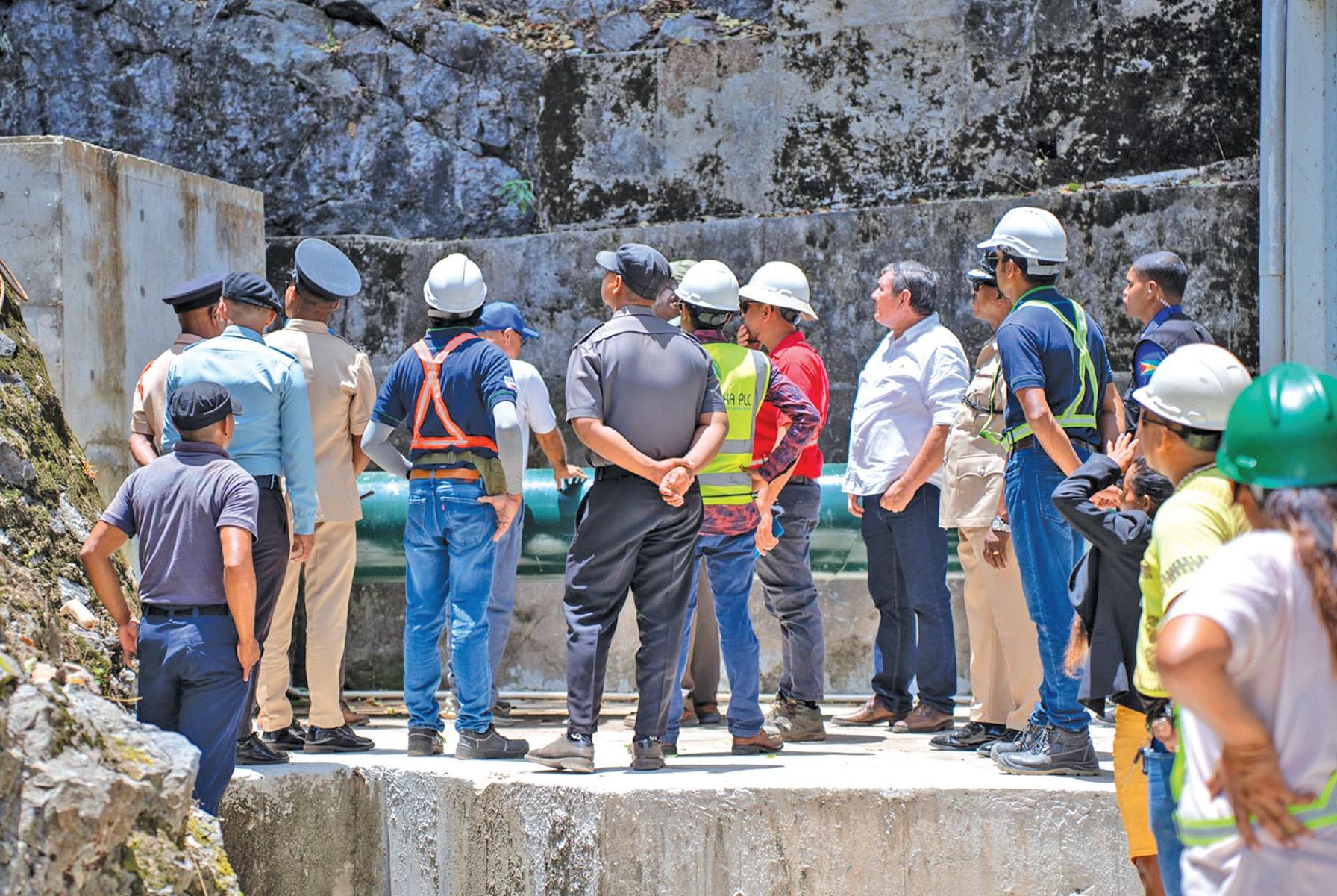
able energy targets.
These projects advance the promise outlined in the PPP/C’s 2020 Manifesto to
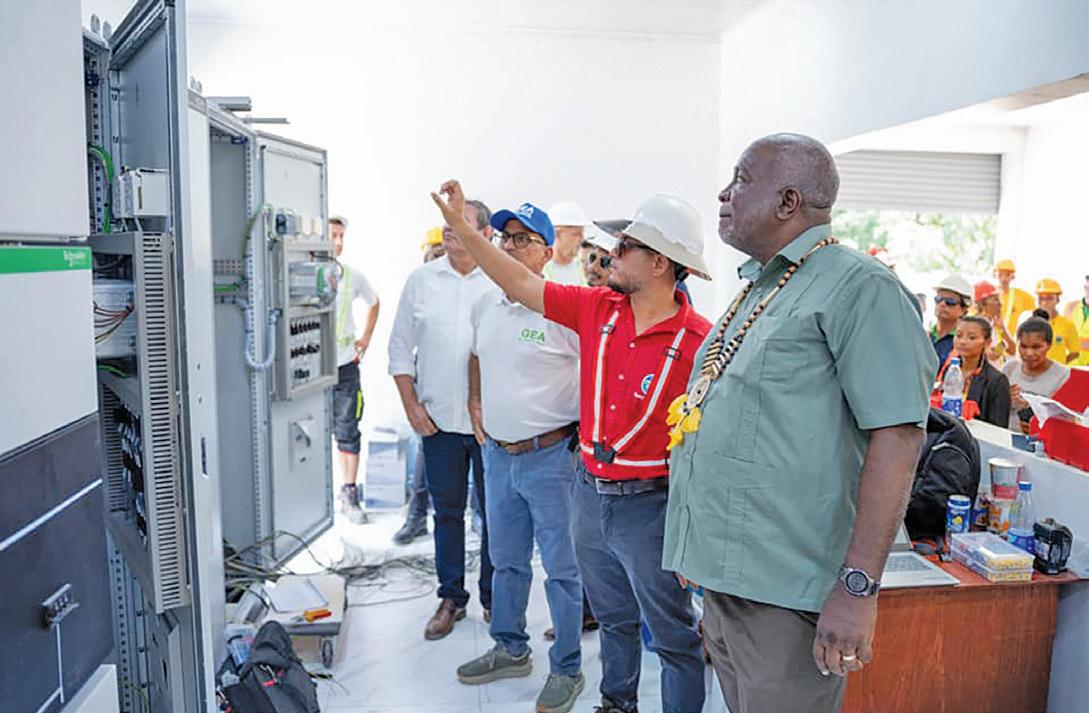
plete, while the Moco-Moco Hydropower Plant, which is being upgraded to a capacity of 0.7 MW, is 95 per cent complete.
The plants are being constructed under an Engineering, Procurement, and Construction (EPC) contract valued at around US$12.85 million. The contract was awarded to Sri Lankan firm Vidullanka PLC.
“The Kumu Hydropower Plant will supply power to the Kumu community and the Lethem power system, contributing to regional development and improving energy access. It is expected to produce about 9,700 MWh annually and reduce power costs to the community,” the release stated.
Meanwhile, the MocoMoco Hydropower Plant will generate approximately 4,565 MWh annually. The plant, built in 1999, was temporarily shut down after a landslide damaged its infrastructure. Rehabilitation works are now nearly complete, with the final grid connection anticipated by October 2024.
PM Phillips reaffirmed the government’s commitment to renewable energy investments to ensure longterm sustainability and energy security. He said that the Kumu and Moco-Moco projects will play a vital role in meeting the country’s renew-
implement an energy-mix that includes hydropower, solar and wind.
Similar projects include the 0.65 MW solar farm in Mahdia, which is expected to be completed this year, and three other solar farms, namely a 10 MW solar farm
in Berbice, 8 MW solar farm in Essequibo, and a 0.6 MW solar farm at Leguan.
PM Phillips was accompanied by Regional Chair, Bryan Allicock; Chief Executive Officer, of the Guyana
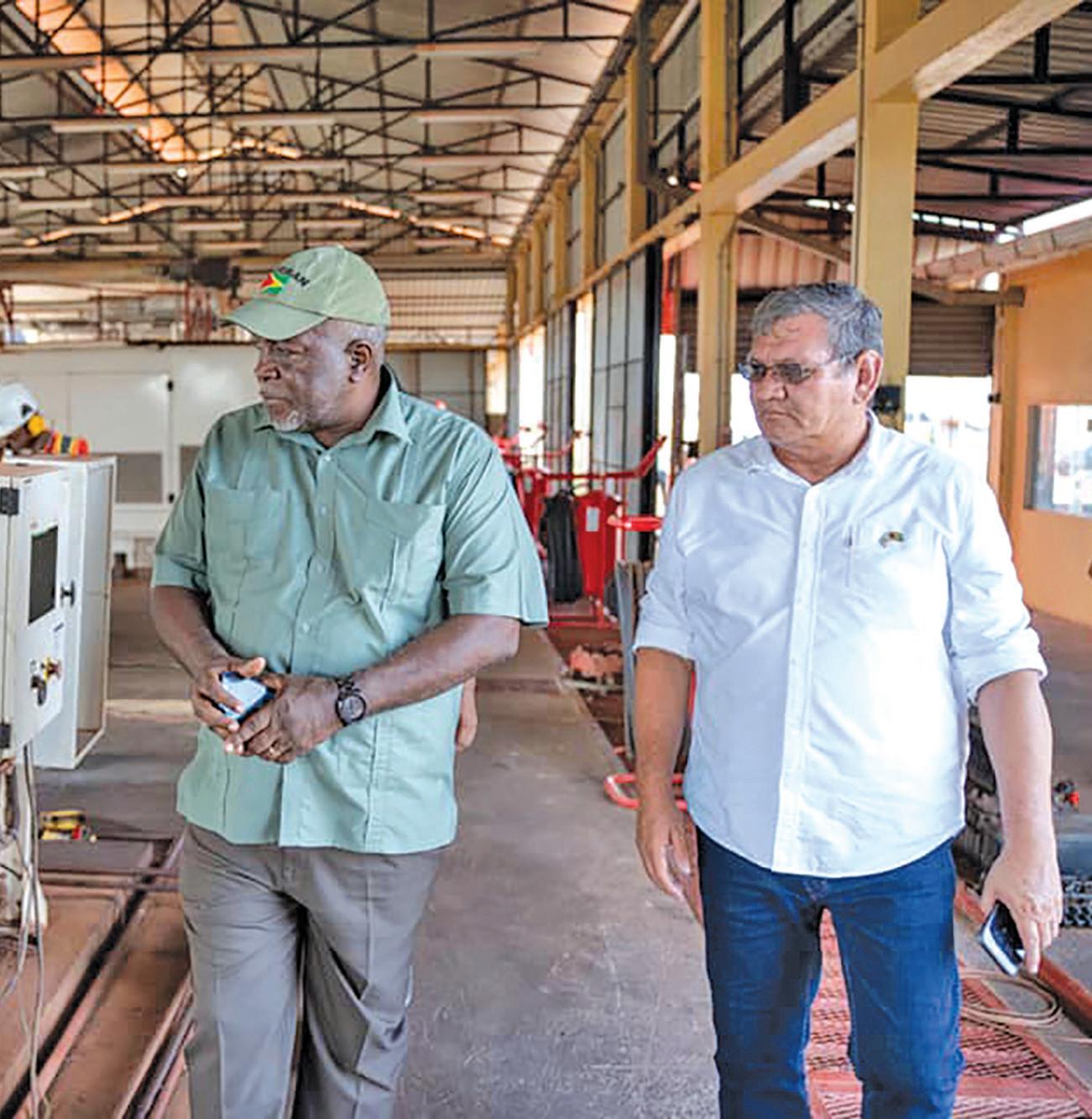













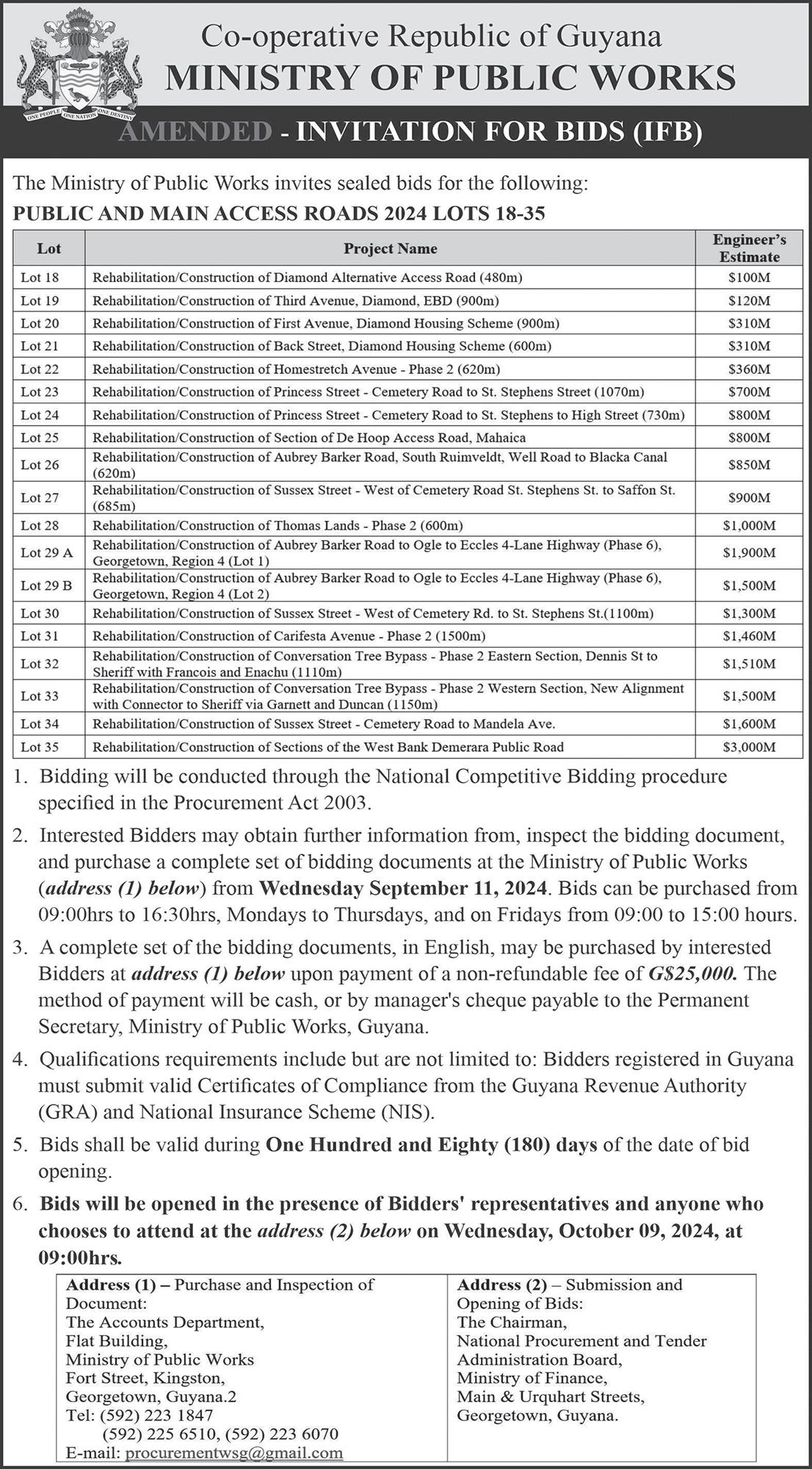


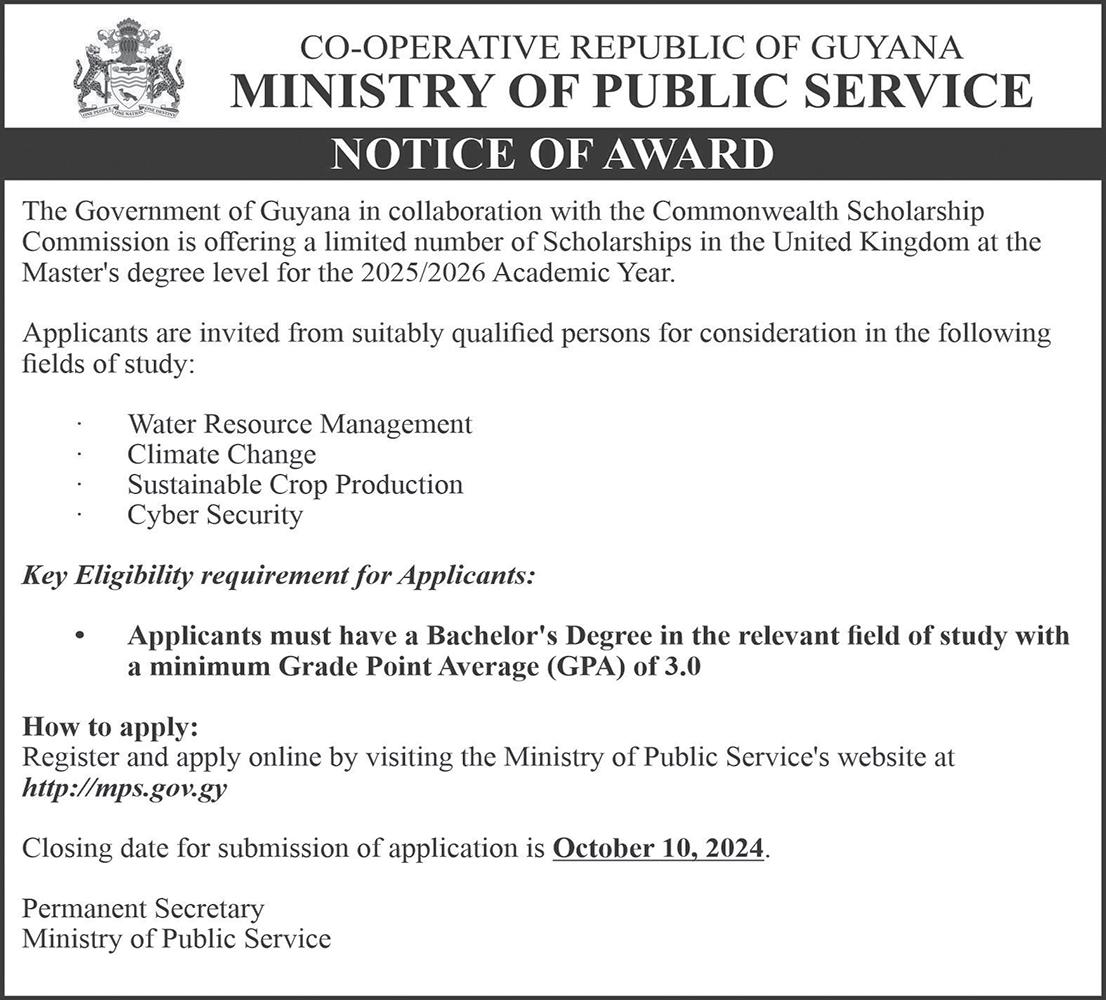



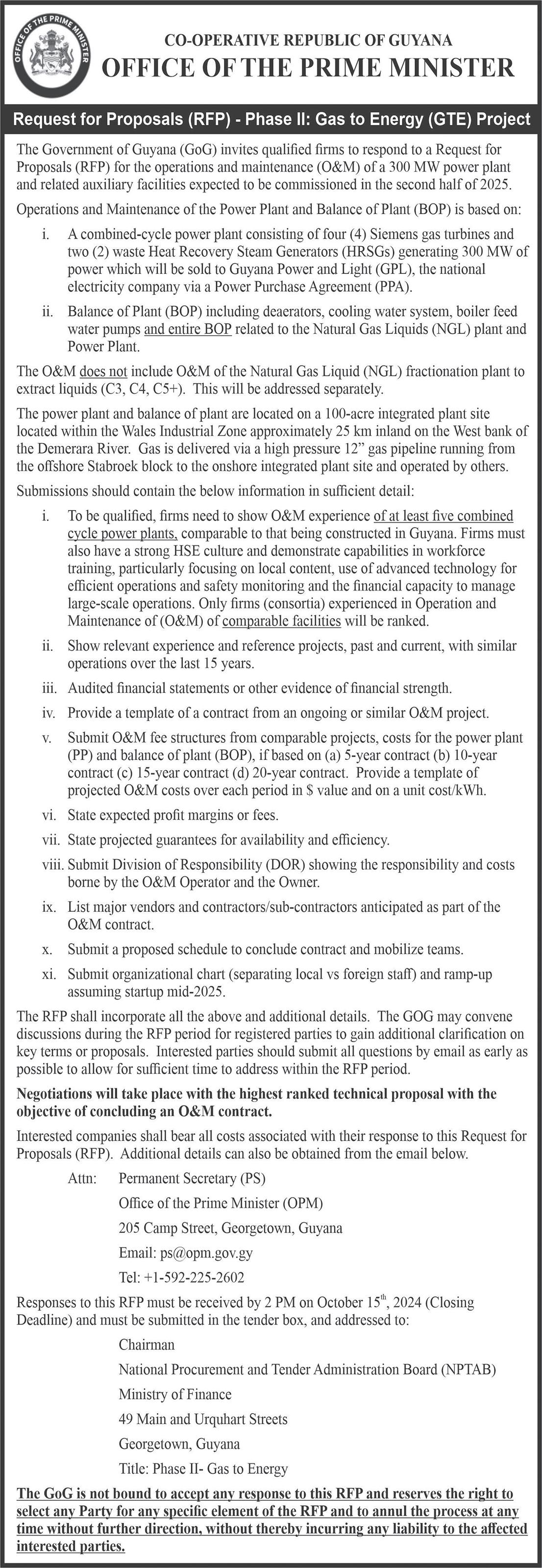


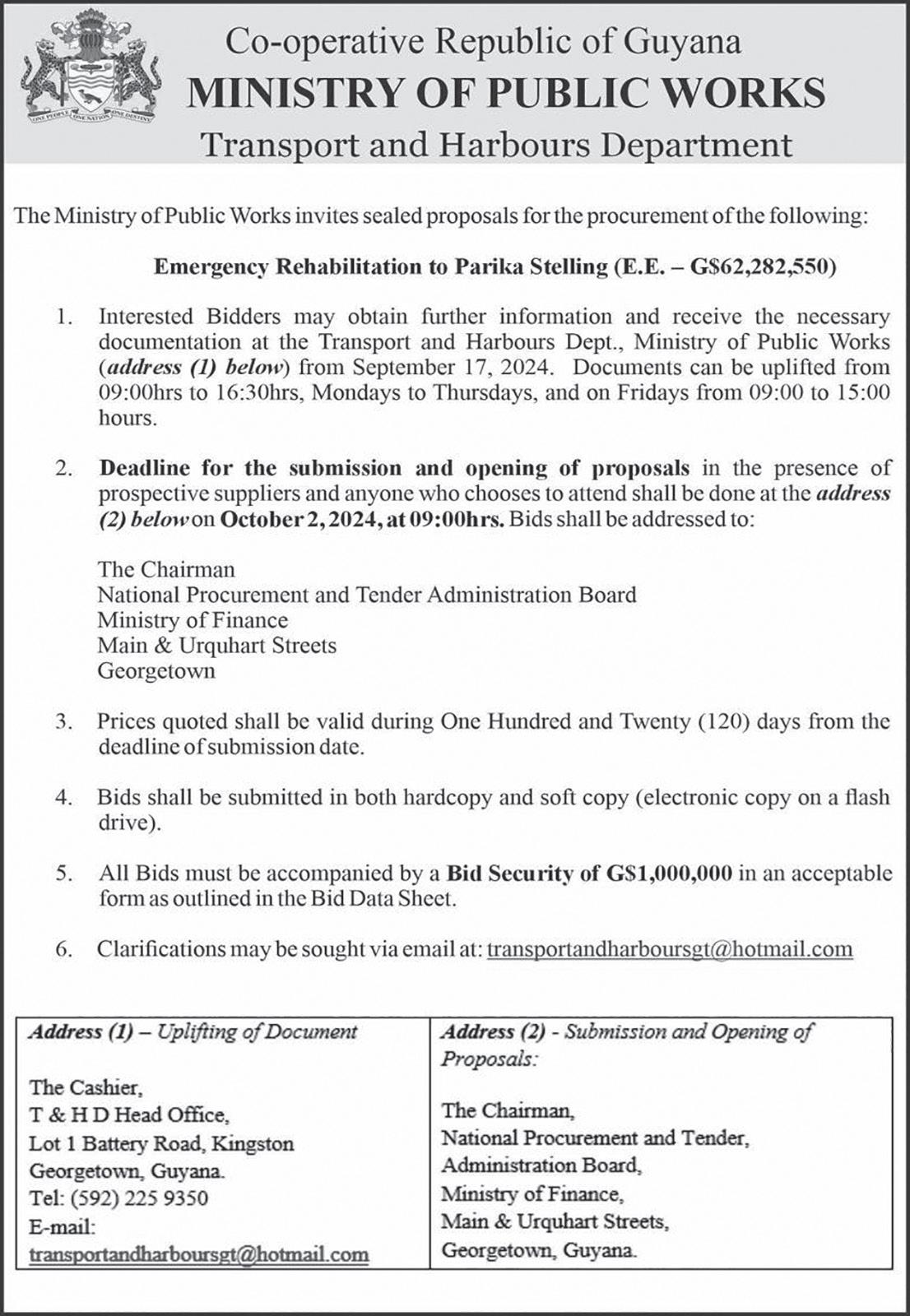
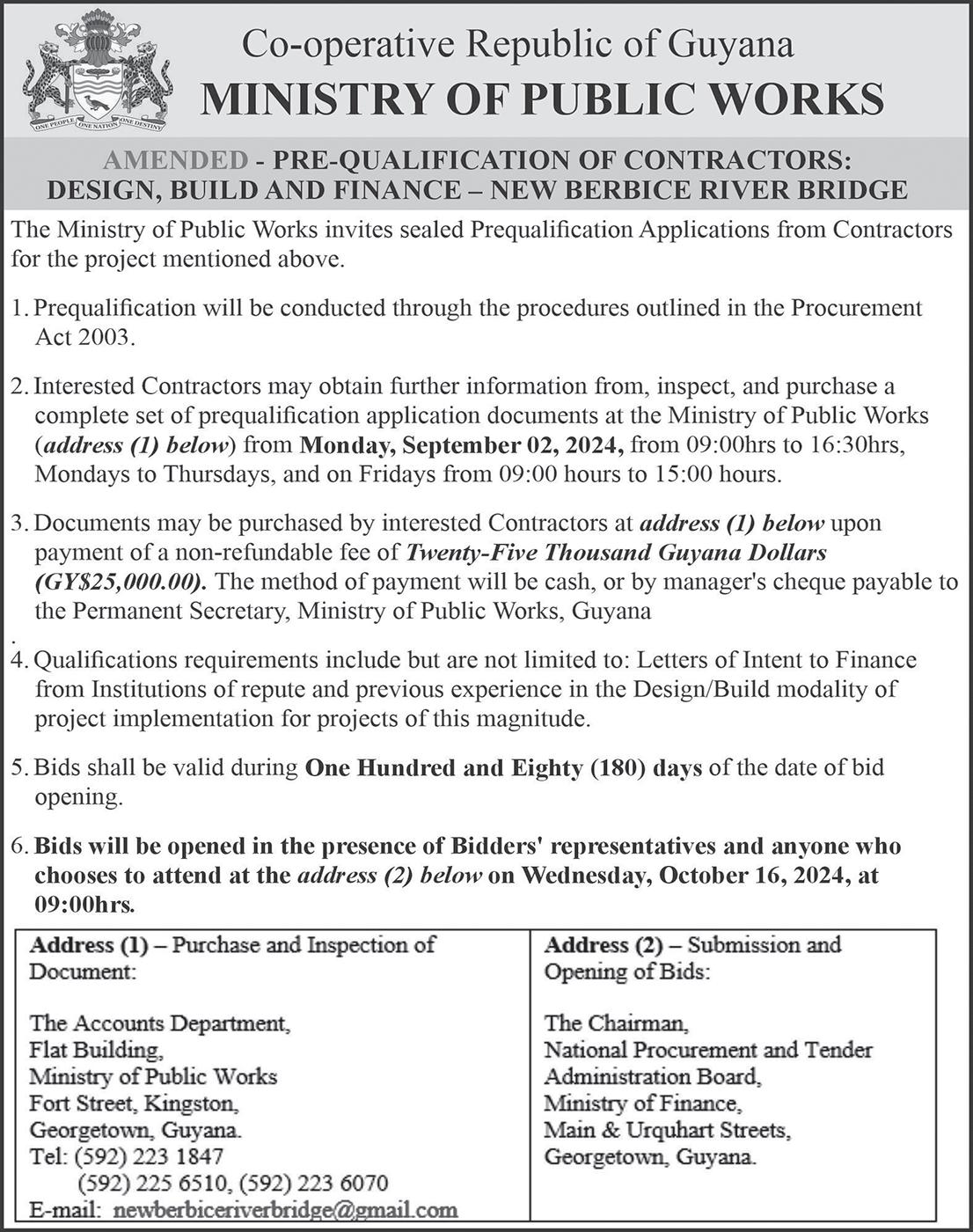



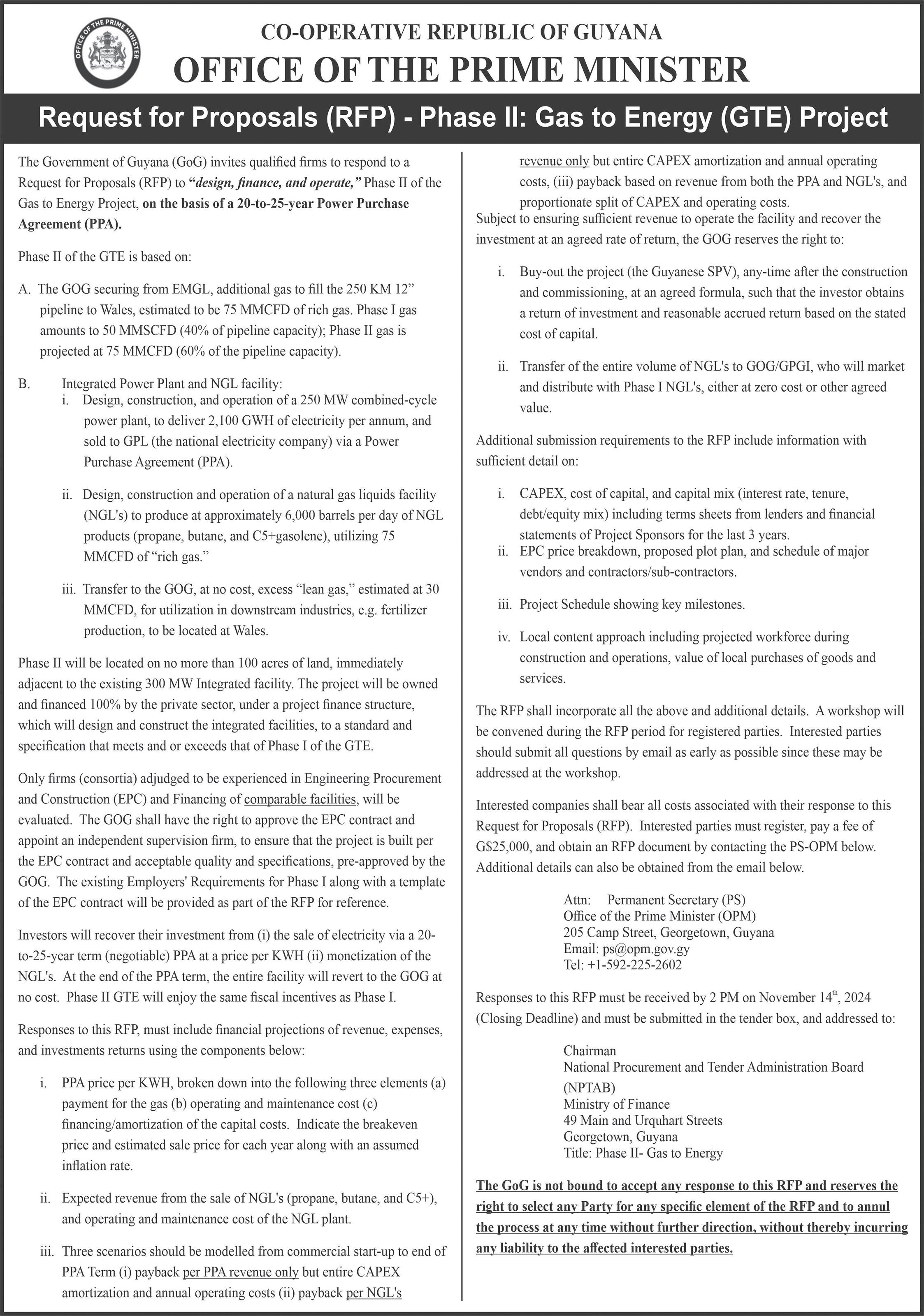


Amerindian Priest
Rita Hunter, 76, has peeled back the pages of Amerindian culture, showing how Indigenous persons started practicing Christianity.
She relayed this information to Guyana Times during a recent interview.
Hunter, who hails from Jawalla Village, Upper Mazaruni, Region Seven (Cuyuni-Mazaruni) is an experienced preacher and teacher of the Bible, with years of dedication to the faith.
“Before Christianity
came to the Upper Mazaruni, no one knew about God. They were worshipping stone boulders, which enabled wild meat, birds, and fish to multiply. Even farms were producing a lot of cassava and other products,” she explained.
However, she stated that times have changed since Christianity became accepted among Indigenous folks.
“Christianity came in the late 1800s, an Amerindian founded a church that is now known as the Alleluia Church, which teaches about God in general and
the Holy Trinity. All practices of worshipping stone boulders were stopped. In the 1900s, around 1949, the Anglican Church came and began to teach, as it were, to strengthen the Alleluia Church. They worked together, the Anglican, Alleluia, and Wesleyan Churches are working together to preserve the language.”
She added that a big addition to this was the translation of the New and Old Testaments.
“The New Testament is already translated, and the
Old Testament is almost 50% complete. Religious hymns have also been translated.”
Though she gave an overview of how Christianity has affected the Amerindian community over the years, she also mentioned how this influence shaped her life, calling her to the position of priest.
“As a Christian, being baptised and commanded with the words, ‘Let your light so shine among men that they may see your good works and glorify your Father which is in heaven,’
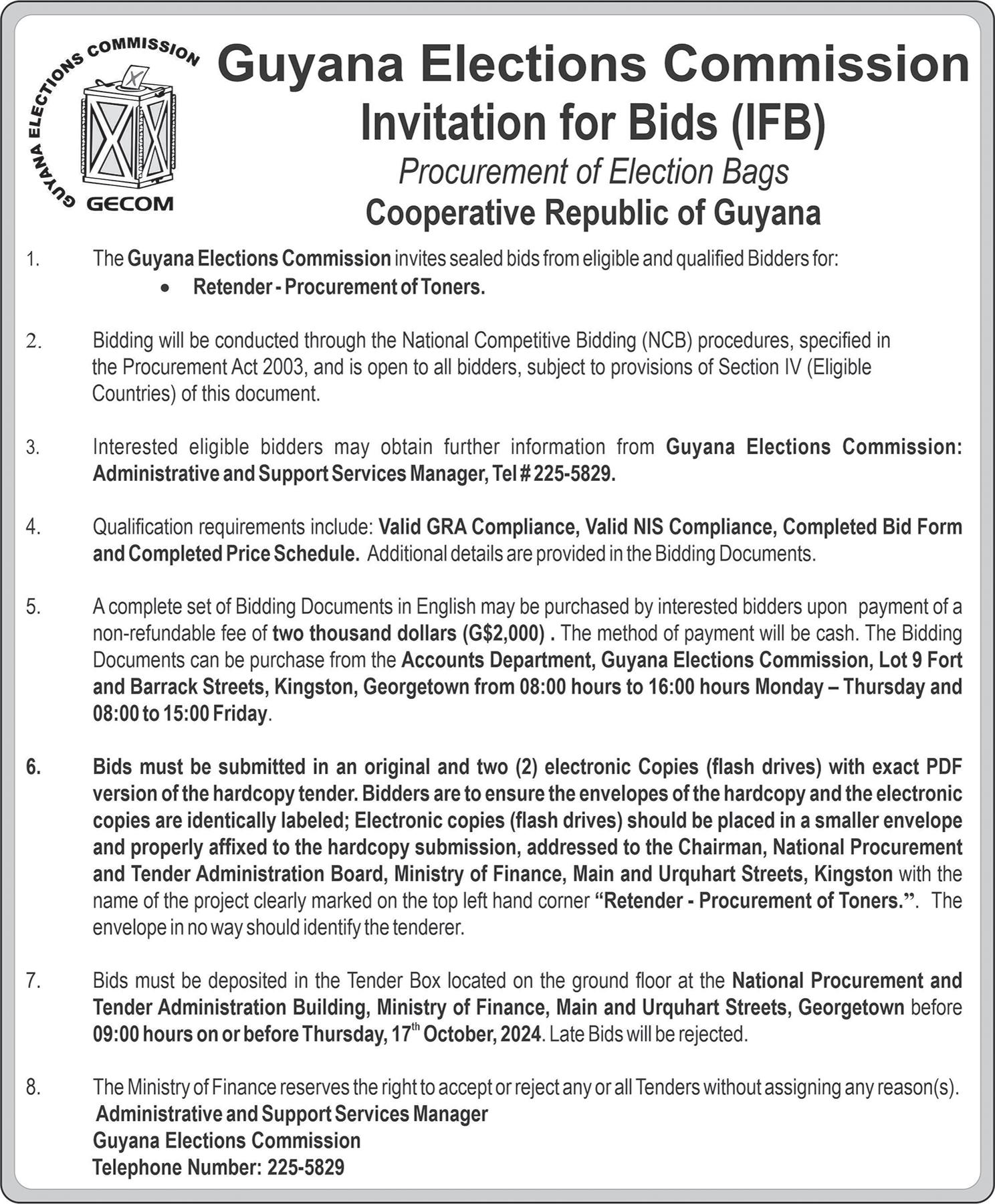
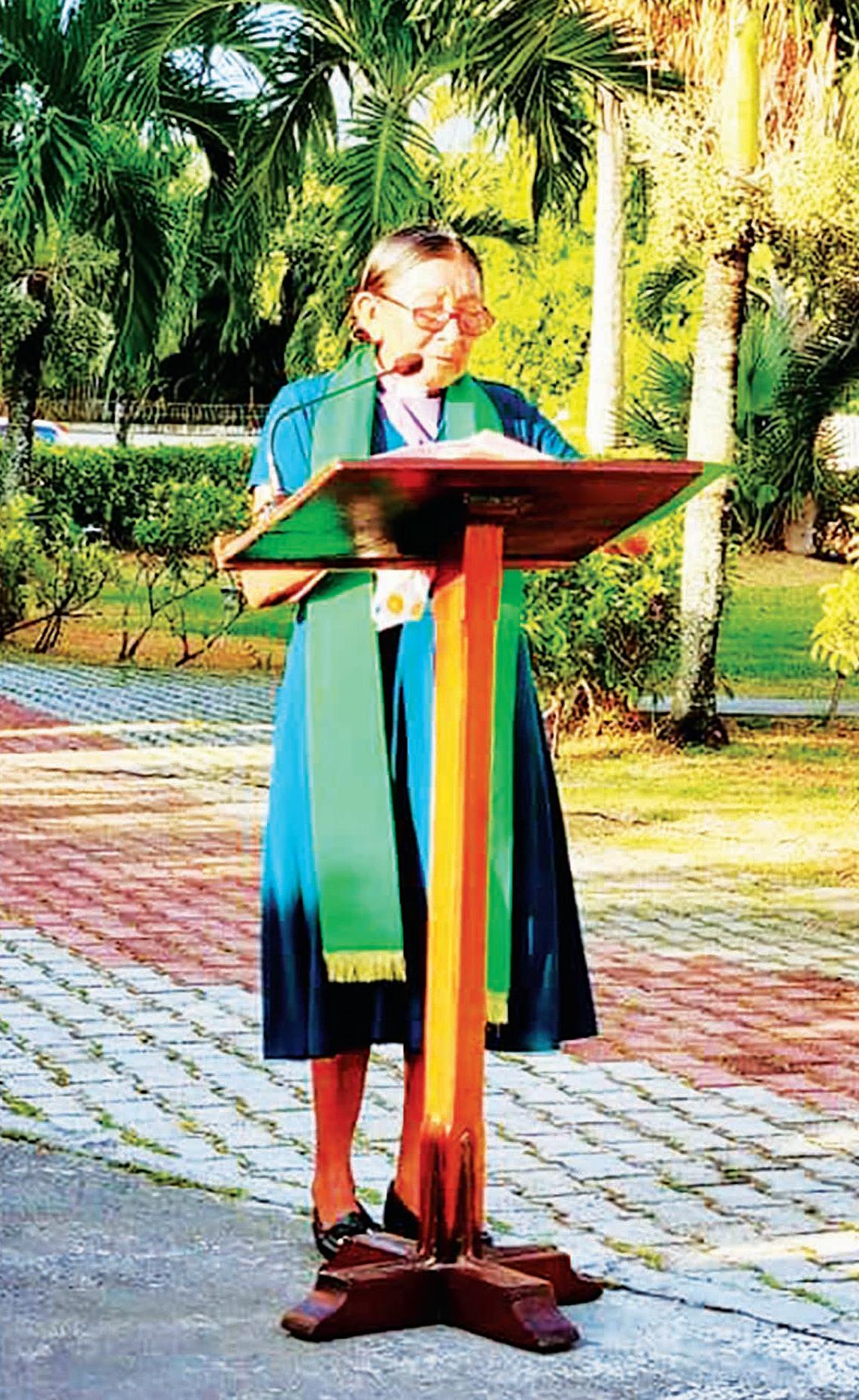
so said, so done. And now I am a priest in my district.”
Hearing about all that has been undertaken in the Amerindian community, she revealed the impact this had on her life while discussing the adaptation of other languages.
“Amerindian Heritage Month means a lot to me. Now, at this age, Amerindians seem to abandon their culture and language, adopting other people’s languages and cultures as if they had none.”
Hunter also mentioned that there needs to be current efforts to preserve and promote Amerindian culture in Guyana.
“I would say they need to be reminded and ensure they know who they are and share their culture with other races. To preserve the Amerindian language, it needs to be taught in schools.”
She had a message she wanted to share with younger generations of Guyanese, both Amerindian and non-Amerindian, about the importance of heritage and tradition.
“The message I want to share with younger generations of Amerindian and non-Amerindian is that they maintain their culture, traditions, and language, share, adapt, and keep them.”
Hunter, who is no stranger to singing beautiful gospel melodies, also had a message she wanted to share with younger generations of Guyana.
“If you don’t have anything, if you don’t have land, If you don’t have language, If you don’t have culture, If you don’t have a story, If you don’t have a song then you are a joke to others. But if you have them, they will respect you.”
With this in mind, she emphasised that younger generations ought to know who they are and what they need to do to live equally while sharing their traditions and much more.
Only some days ago, Hunter preached at the Diocese of Guyana Heritage Month where she ministered unto scores of persons on the Lawns of Austin House, Kingston, Georgetown.


NAngelica Bassoo and 30-year-old Vishaul Mohabir are on a mission to ensure young people living with disabilities are afforded opportunities to realise their full potential in life.

Bassoo and Mohabir are two of several visually-impaired trainee teachers pursuing an Associate Degree in Disability Studies at the Cyril Potter College of Education (CPCE). They both come from humble beginnings, but have faced similar challenges as a result of their disability.
Bassoo explained that a lot of her challenges in life came from her days as a student, when teachers were not properly equipped to educate students like her.
“Some of them even think we were not capable of being in their class or doing their subjects, because of our disability,” the young woman explained during an interview with Guyana Times. Luckily,
After completing her schooling, Bassoo obtained employment as a mobility training officer at the Guyana Council of Organisations for Persons with Disabilities (GCOPD).
She explained that her goal in life is to help others, and with this in mind, the young woman decided to get trained to become a special needs teacher.
“I want to make a difference, and this is how I can do it: study special education and be able to help students like myself in reaching their highest potential,” she asserted, and added with confidence, “I’ve been blind since birth. I never let that stop me from reaching my goals.”
Vishaul Mohabir says he has faced challenges in life that are similar to what were faced by Angelica Bassoo. He said he never graduated from high school, but after dropping out, later wrote CSEC privately through the Unit for




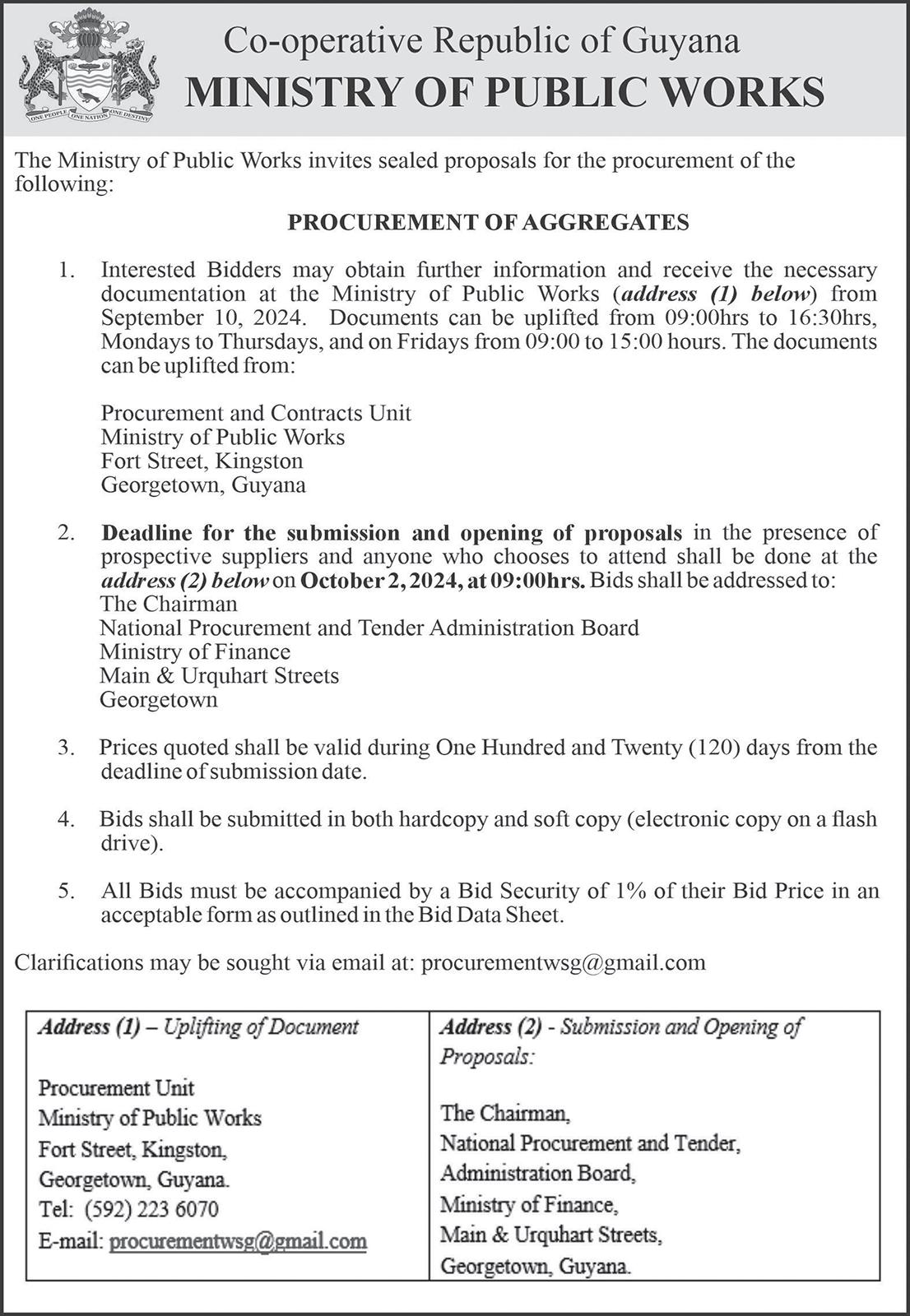

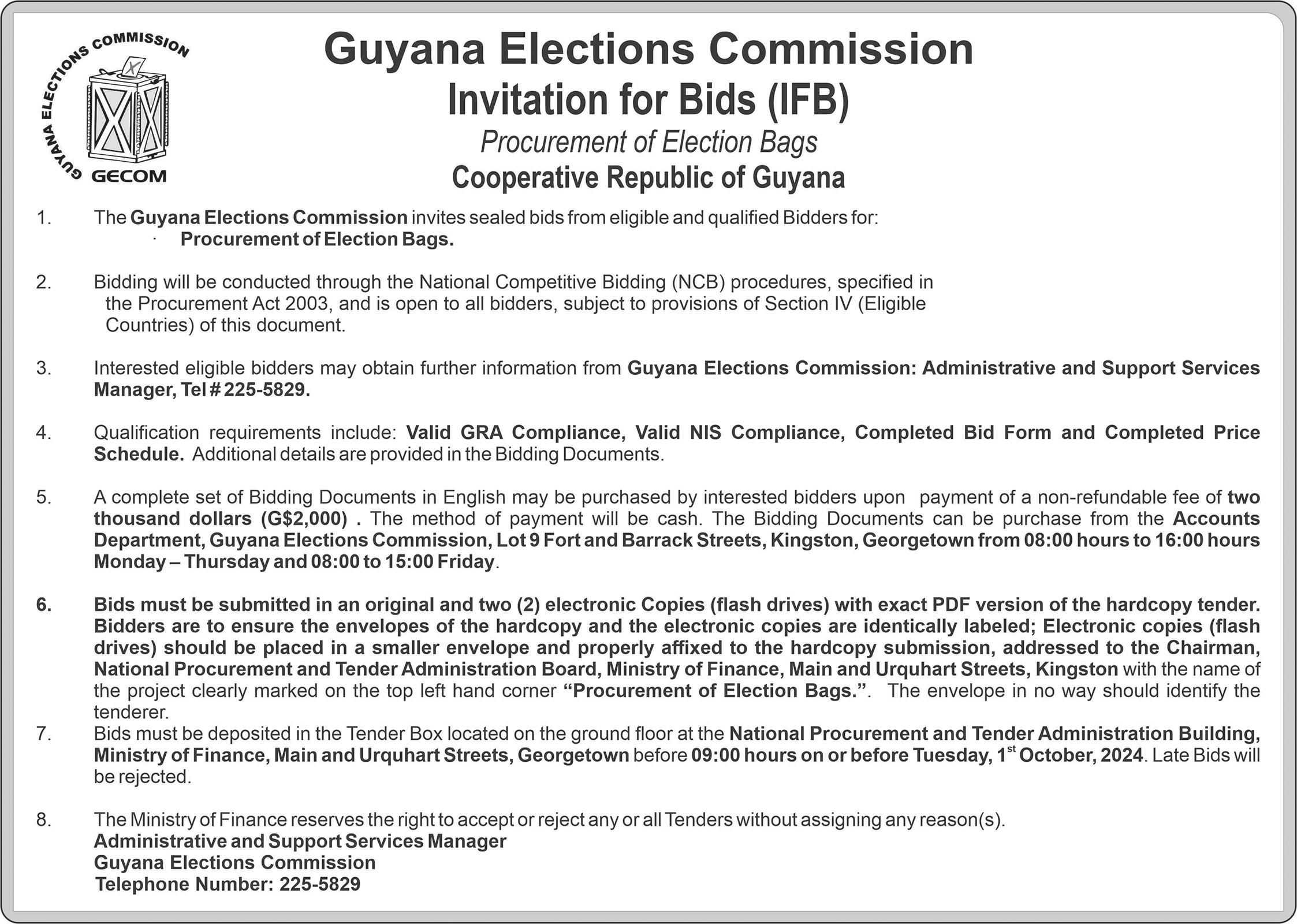




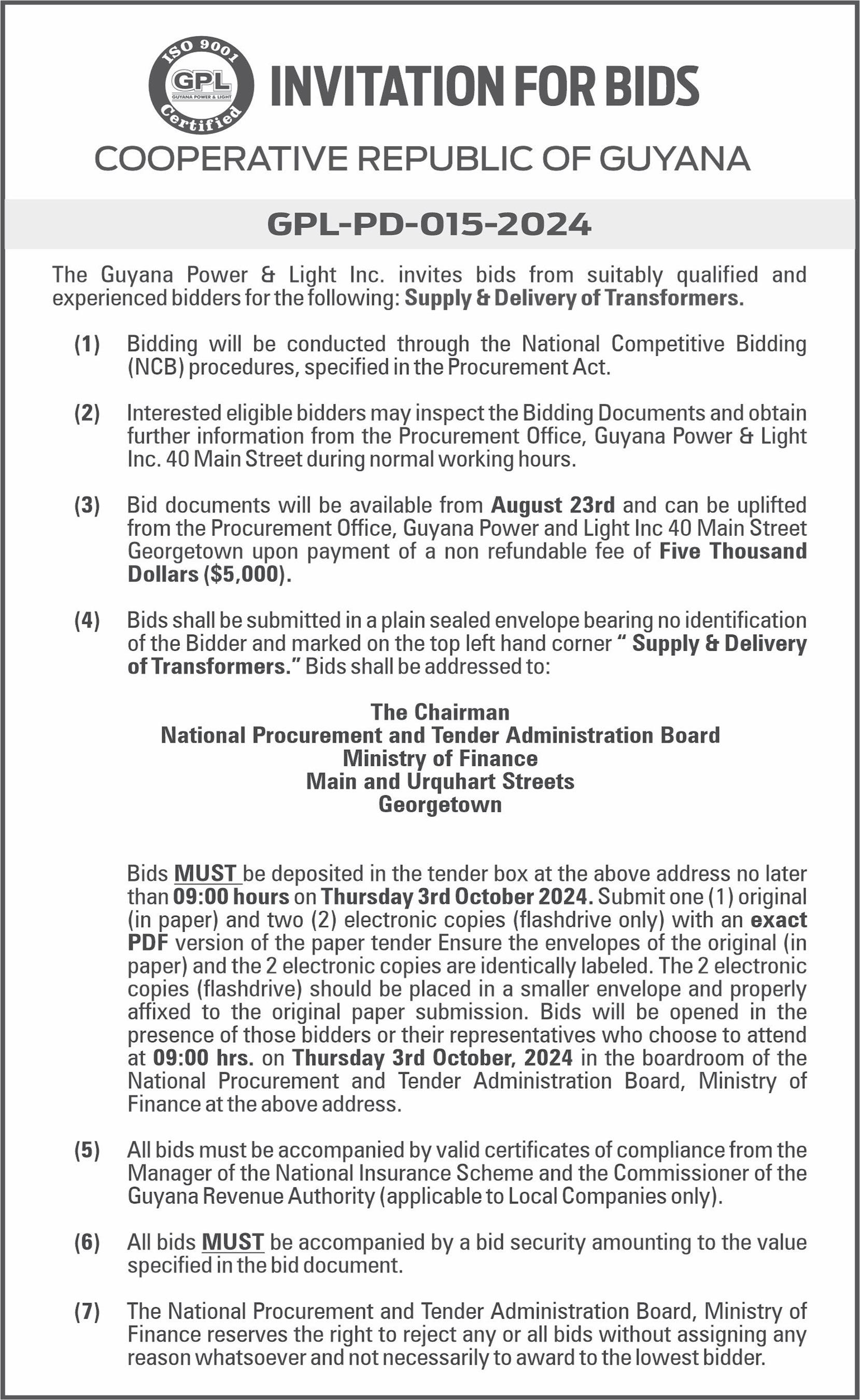


In a move towards addressing global hunger, President Dr. Mohamed Irfaan Ali released his latest book “Achieving Global Food Security: The Caribbean Experience and Beyond” at the Blavatnik School of Government at the University of Oxford in England on Saturday.
The book provides a holistic overview of the causes and challenges surrounding food security both globally and, in the Caribbean.
It explores a number of strategic policy recommendations to mitigate the issue.
In a time where the Caribbean is plagued with skyrocketing food and fertiliser prices simultaneously with displaced labour, this book presents an innovative pathway to achieving freedom from hunger by capitalising on the region’s comparative advan
tages and potential for agricultural
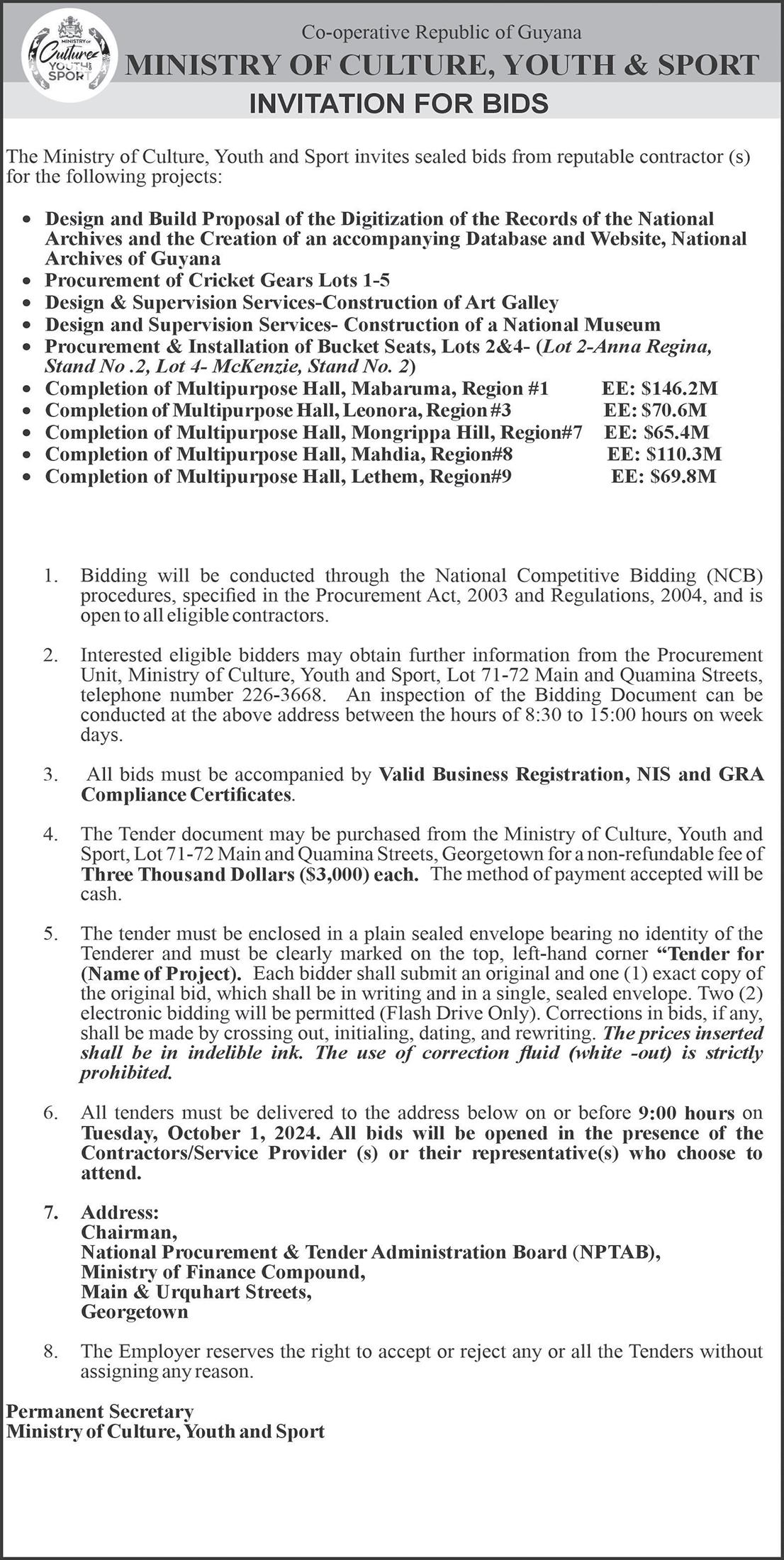
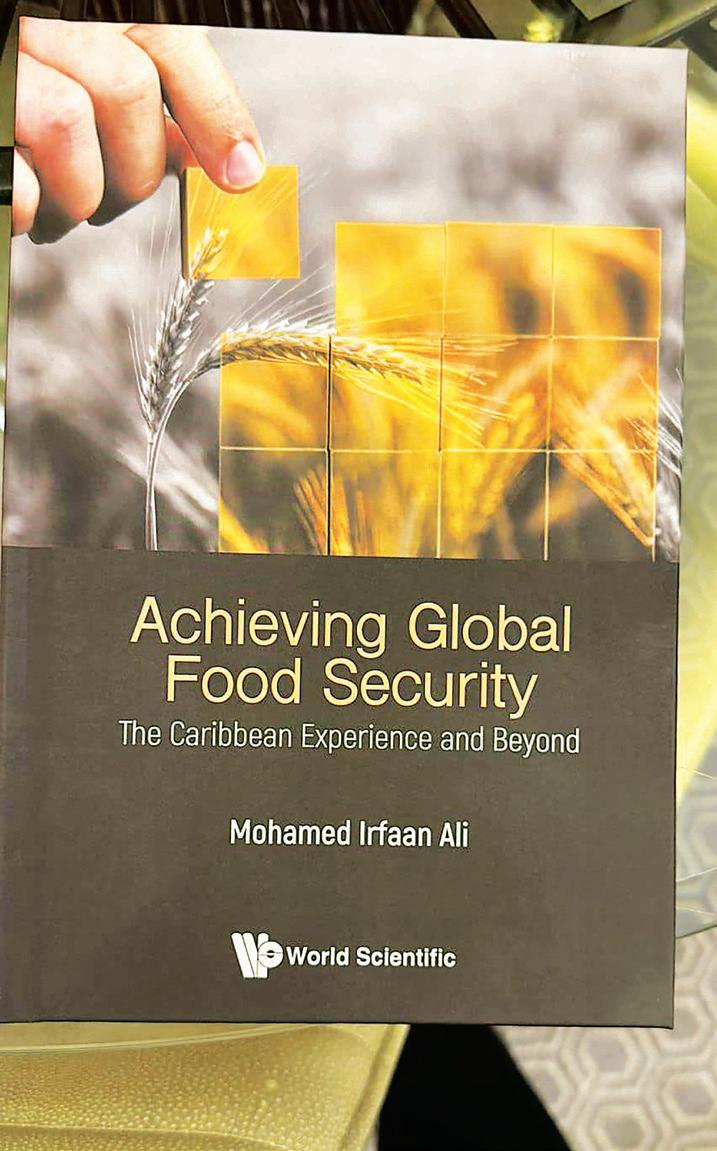
investment.
Published in collaboration with World Scientific Publishing, the book serves as a valuable research resource for scholars and professionals pursuing knowledge and solutions on food security, international development and Caribbean studies. Guyanese are also encouraged to read this book as it includes a chapter highlighting ongoing and future initiatives in Guyana.
Renowned professor and UNESCO chair, Amitav Acharya praised the book as a significantly necessary and timely contribution to one of the most pressing global issues.
Interested buyers can purchase the book directly from the World Scientific Publishing website or on Amazon. [DPI]
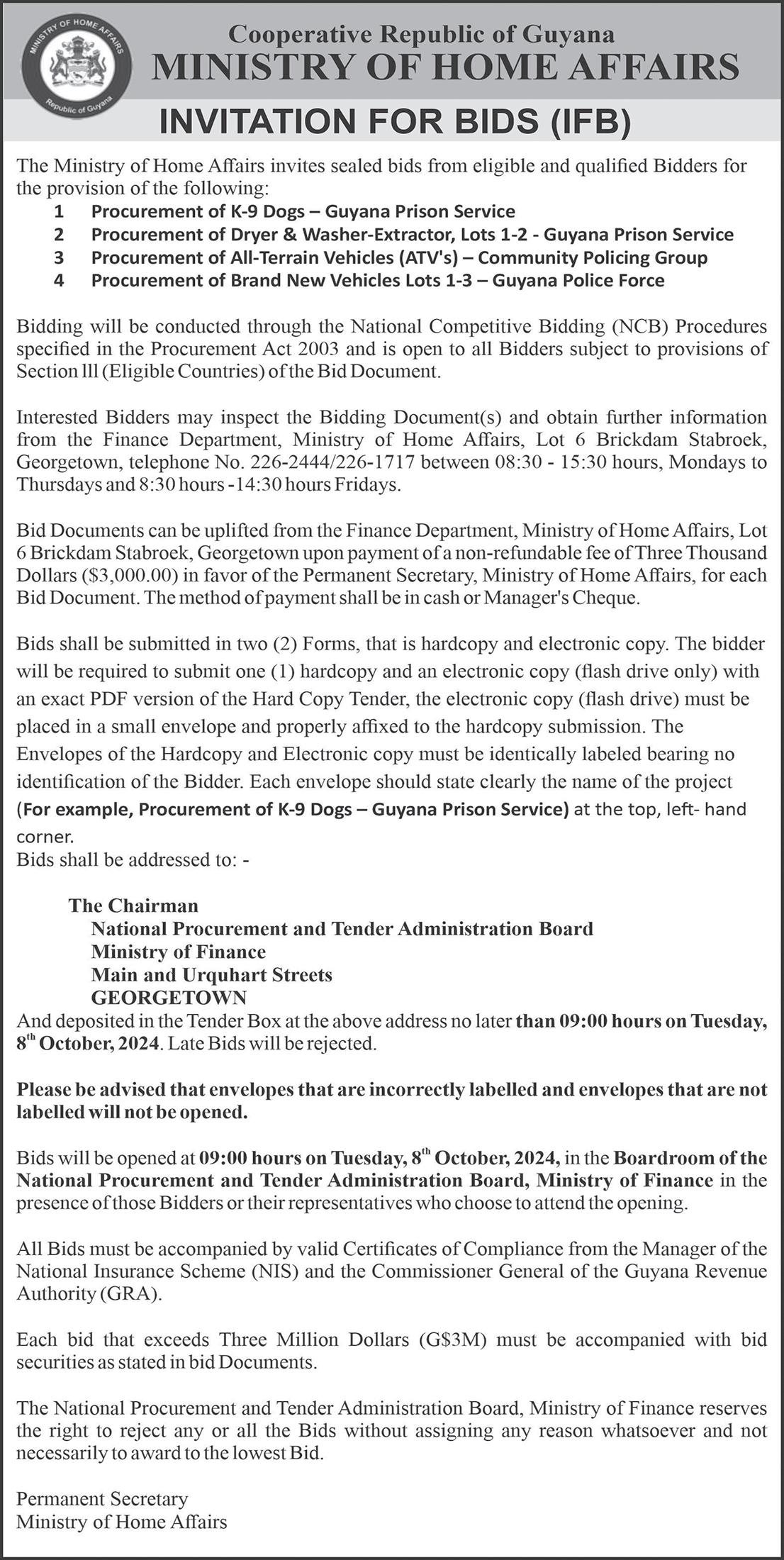

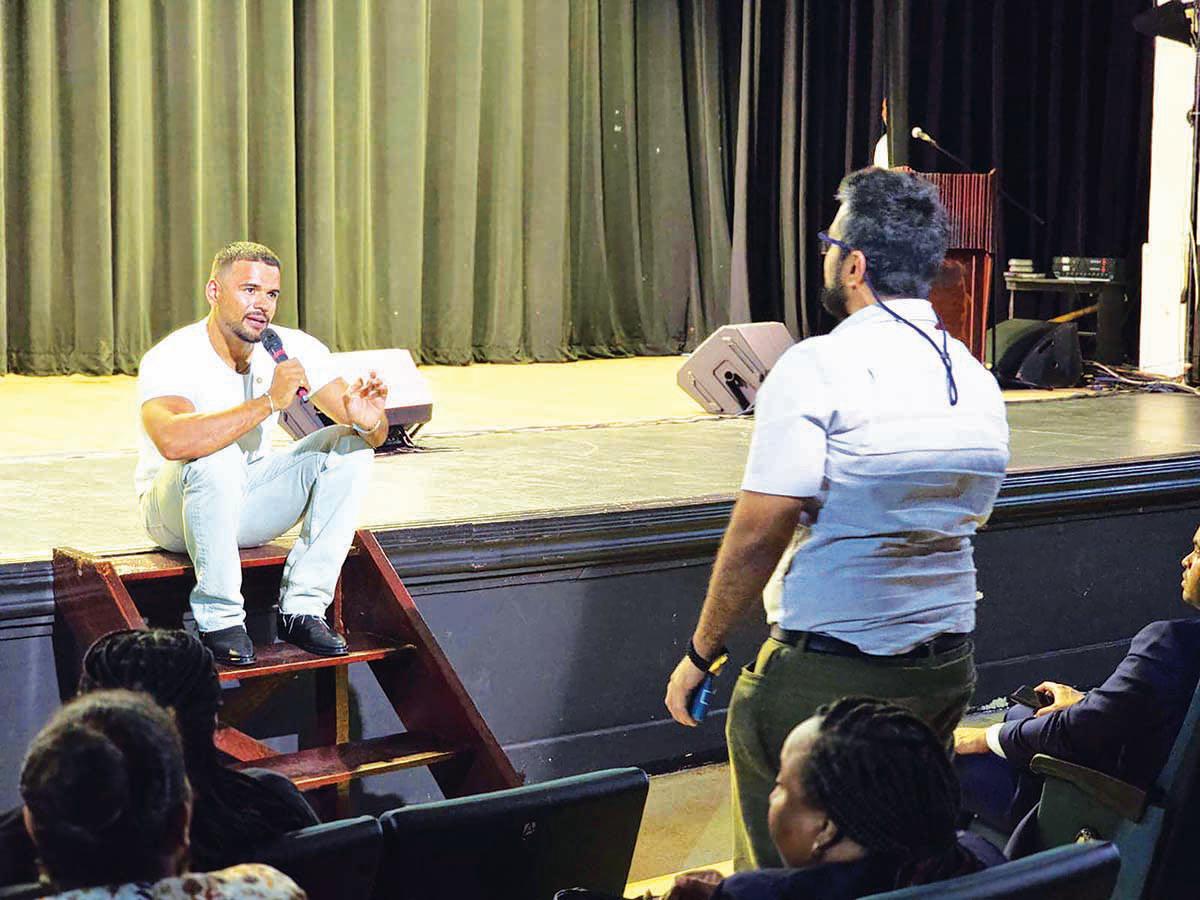
The Ministry of Culture, Youth, and Sport recently hosted an interactive session at the National Cultural Centre with “Bad Boys” actor Jacob Scipio and key stakeholders from Guyana’s film industry.
The engagement provided an opportunity for local industry professionals to ask important ques -
tions and to discuss avenues for collaboration and growth within the creative sector.
In alignment with his goals to promote and contribute to the development of Guyana, Scipio announced plans to produce films in Guyana while sharing his extensive industry knowledge to support aspiring actors, ac -
tresses and filmmakers.
In addition, Minister of Culture, Youth, and Sport, Charles Ramson Jr. held a meeting with Scipio and his brother Zach to discuss developing partnerships aimed at advancing both the film and music industries in Guyana. Scipio is a British actor and writer, with Guyanese ancestry.


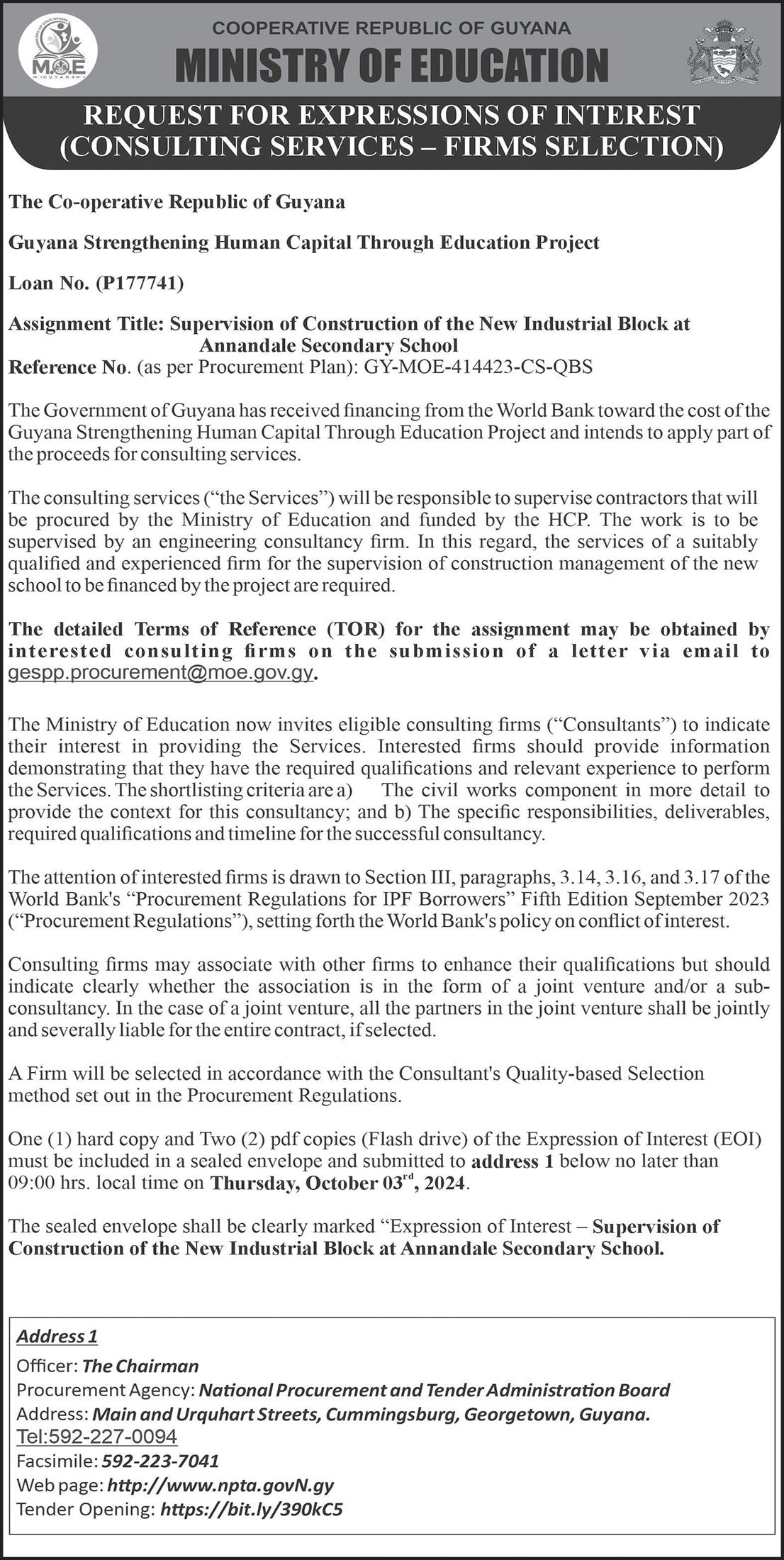

The Guyana Bank for Trade and Industry (GBTI), in a move that highlights its commitment towards investing in the nation’s children, on Friday awarded a total of 17 students from several regions with bursaries.
Speaking at the simple ceremony at the bank’s corporate office at Kingston, Georgetown was GBTI’s Human Resources Manager, (HRM) Laleeta SahadeoGunraj, who emphasised the importance of early childhood education.
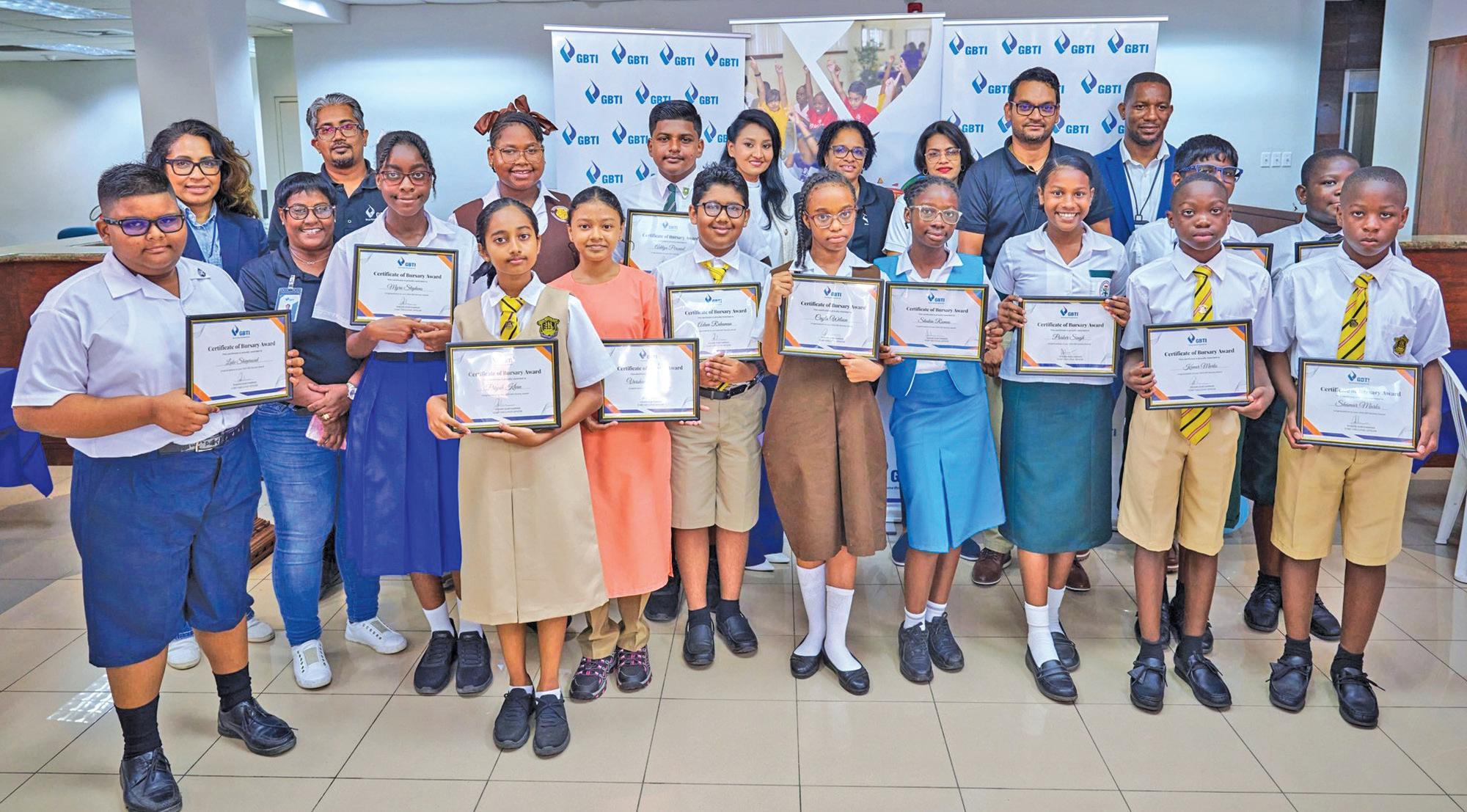
“At GBTI, we believe in the power of education and the potential it holds to transform lives and com- munities. Each one of you possesses unique talents,
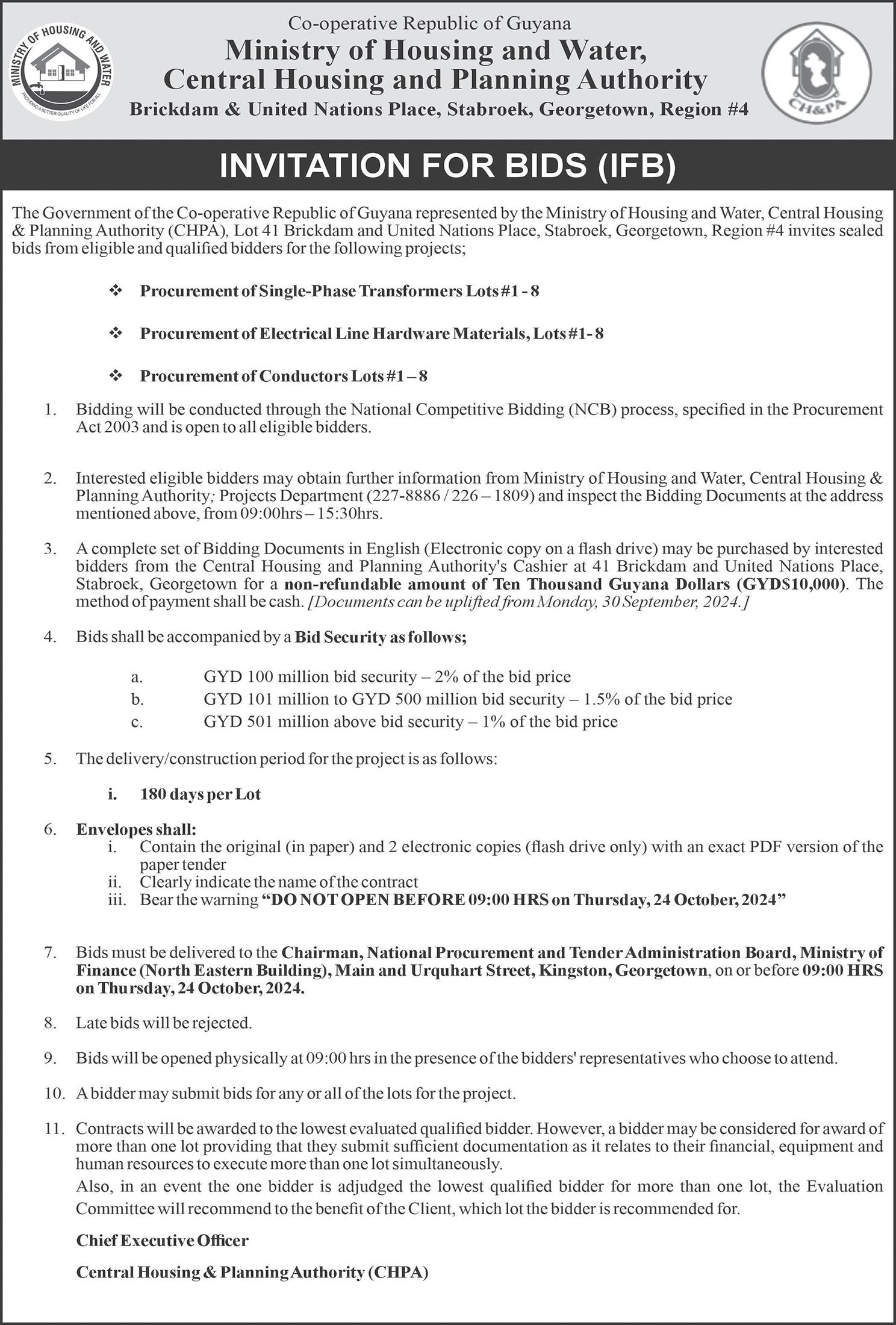
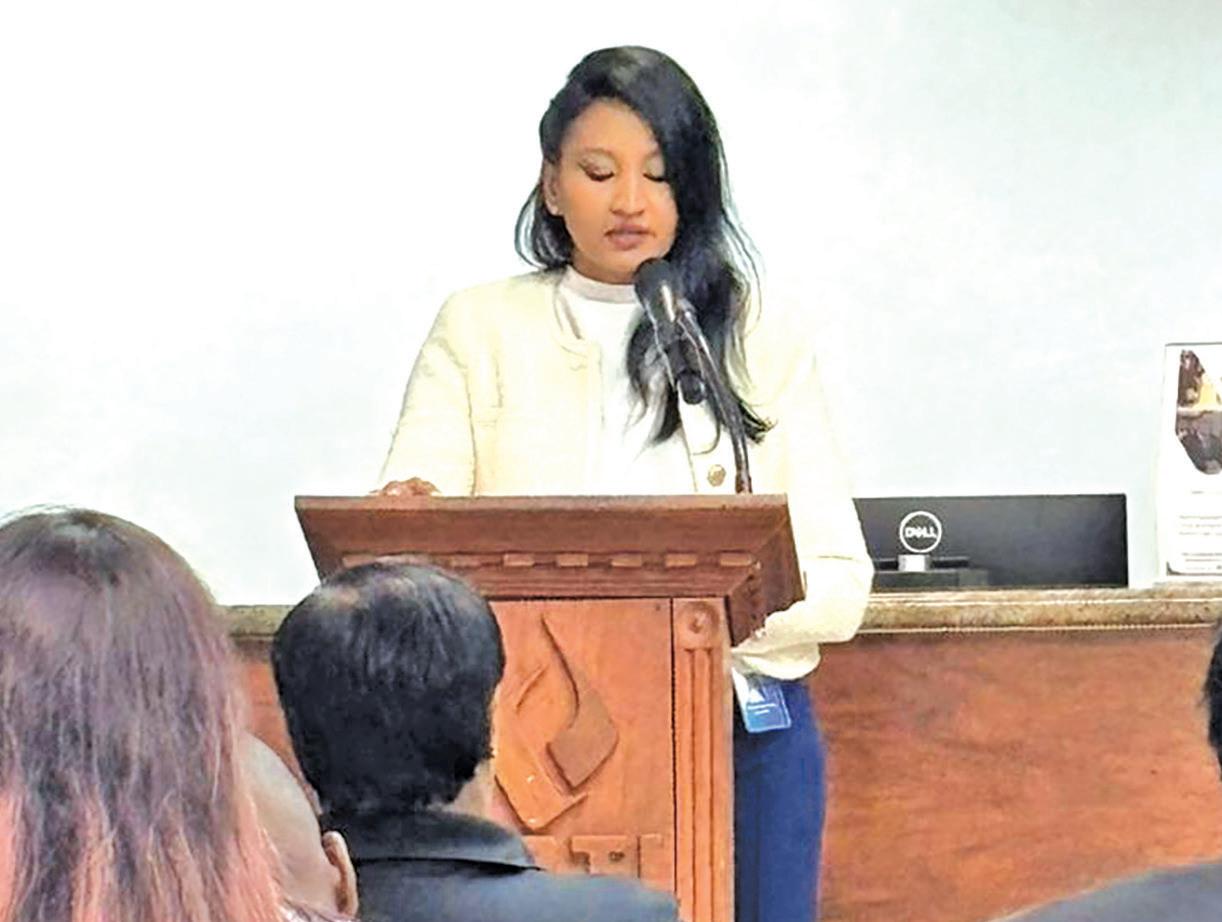
dreams and aspirations. One of the most powerful tools you have at your disposal is your mind. An expositive mindset will not only overcome challenges, but you will also attract opportunities and success. Education opens the doors to opportunities and it is an important tool to achieving success in life,” she stated. She further reaffirmed the financial institution’s commitment towards investing in education.
“As you take this next step in your educational journey, remember that this bursary is more than financial support. It is a vote of confidence in your future. We believe that you have the potential to make a meaningful impact not only in your lives, but also in the lives of those around you.
GBTI is proud to be your partner in supporting and guiding them as they navigate their financial journey and make important decisions ahead. We remain committed to fostering educational growth and opportunities,” the bank manager said.
Moreover, apart from the annual bursary event, the HR professional revealed
that GBTI also has other initiatives geared towards supporting and financing students’ educational needs.
“In addition to our Early Savers Account, GBTI offers educational and technology loans designed to ensure students have access to all available educational opportunities and a benefit for their academic journey while easing financial burdens on parents,” she explained.
Moreover, SahadeoGunraj lauded the parents present at the event for securing their children’s financial future by opening an Early Savers Account.
“We want to acknowledge the role you have played in supporting and guiding these young minds. Your encouragement, sacrifices and belief in their abilities have been critical to their success. More so, by opening an Early Savers Account for your child, you have demonstrated your commitment to securing their financial future,” she noted.
The students, members of the bank’s Early Savers Club, were randomly selected after submitting their results from the NGSA 2024.
Apedal cyclist was killed on Saturday after he was struck by a motor car on the Number 28 Public Road, West Coast Berbice (WCB).
The dead man has been identified as Standford Benjamin, a 63-year-old resident of Number 28 Village, WCB.
Based on Police reports, the accident occurred at about 14:00h.
At the time, Benjamin was on his bicycle proceeding west along the southern side of the WCB road, while motor car PZZ 7256 was proceeding in the same direction behind him.
As a result of the collision, the pedal cyclist received injuries and fell onto the roadway. He was picked up in an unconscious condition and taken to the Fort Wellington Public Hospital, where he was seen and examined by a doctor and later died while receiving medical treatment.
The driver of the car, a 65-year-old resident of New Amsterdam, Berbice, was taken into custody. Investigations continue.
Police say the driver of the car alleged that, as he was in the process of passing the pedal cyclist, Benjamin suddenly swerved into the path of his vehicle, which caused the front of the car to collide with the pedal cycle.

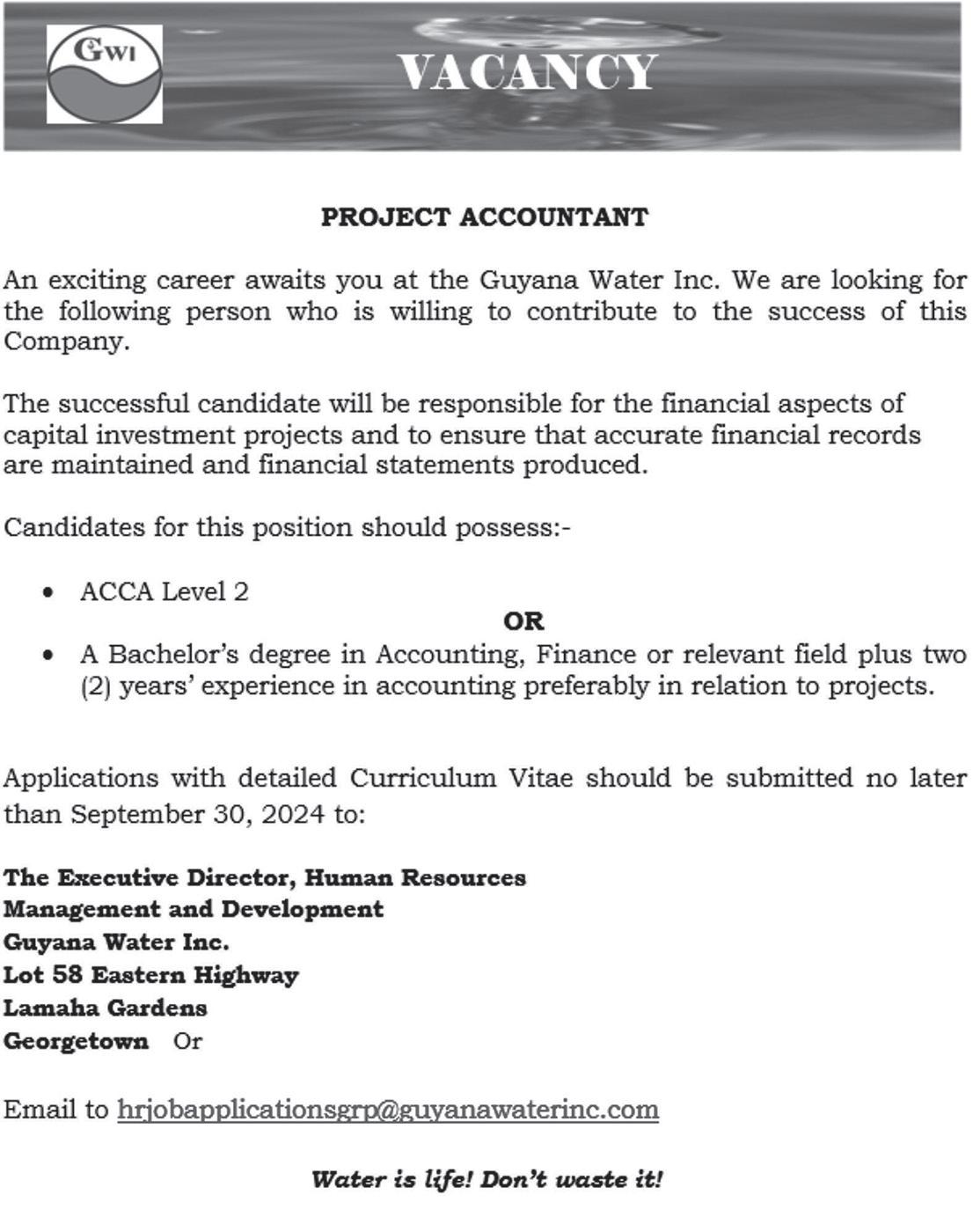
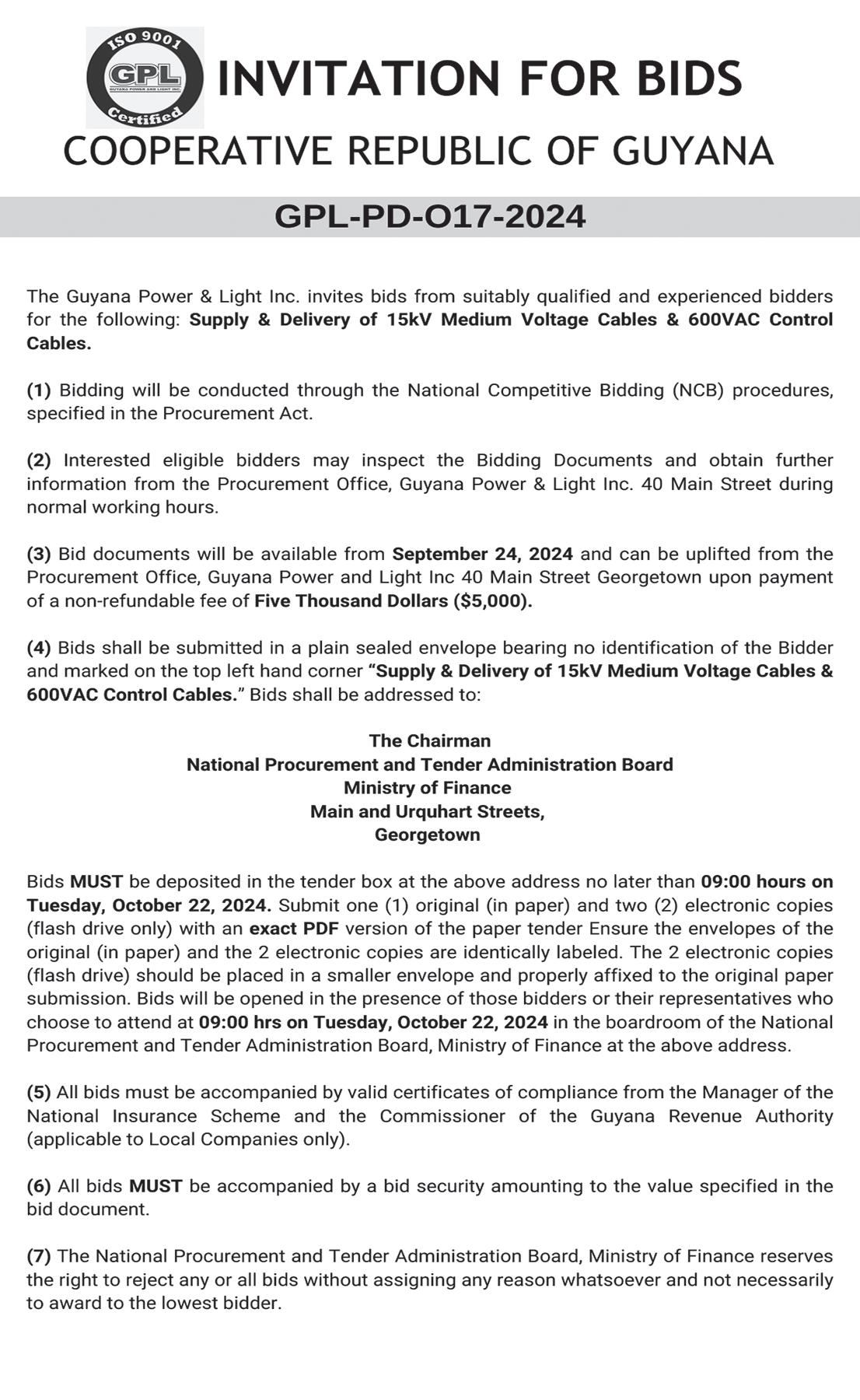

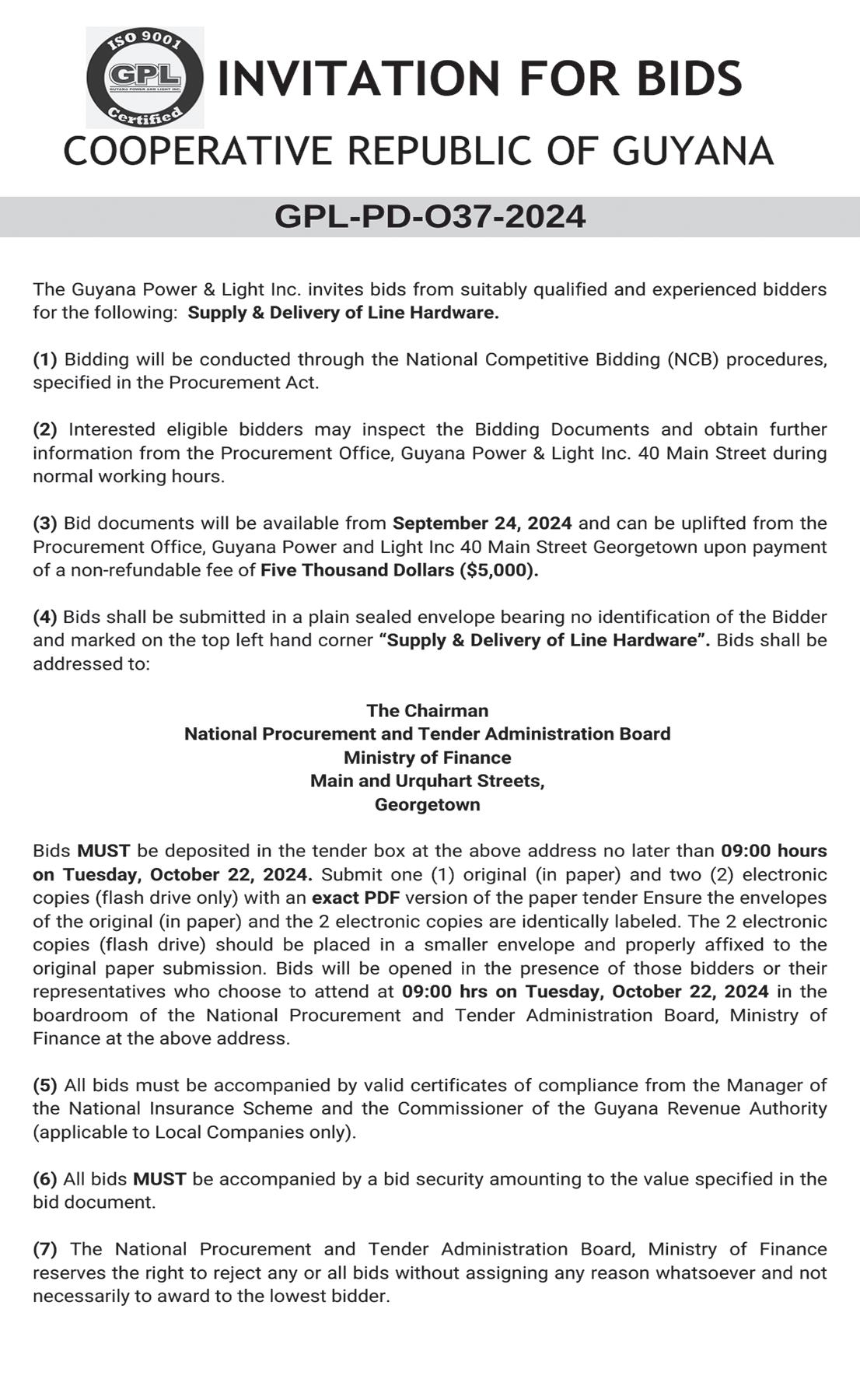

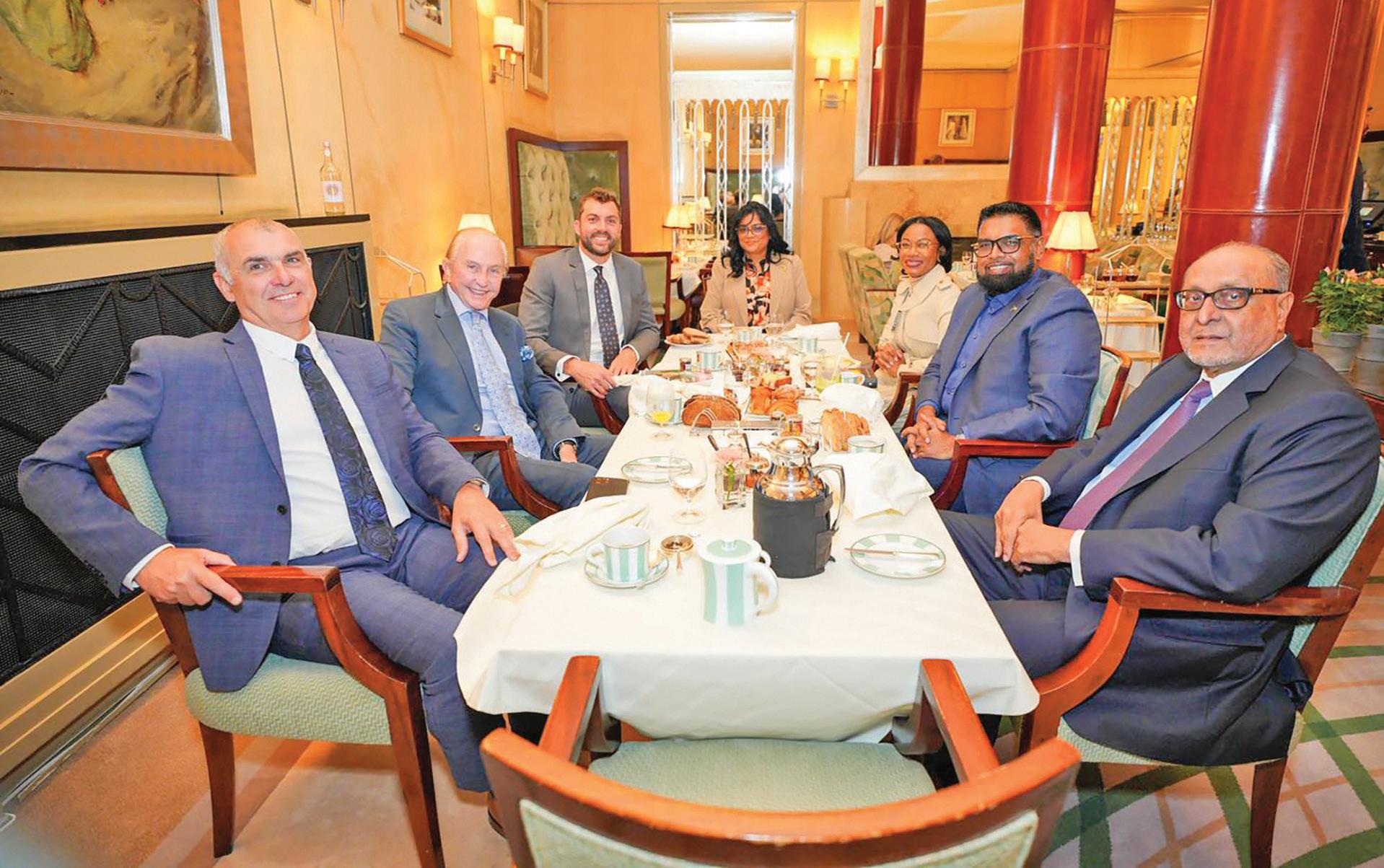
Luxury travel company Abercrombie and Kent is expected to enter the Guyana market.
This is according to a brief statement from the Office of the President following a meeting between representatives of the company and President Dr Irfaan Ali on Saturday morning during his visit to London.
The Guyanese Head of State met with Geoffrey Kent, the founder and Chairman Emeritus of the Abercrombie and Kent.
Kent was joined by local Wilderness Explorer Toney Thorne, while President Ali was accompanied
by Minister of Tourism, Industry, and Commerce Oneidge Walrond, Guyana’s High Commissioner to London, Rajendra Singh, and Director of Presidential Affairs Marcia NadirSharma.
Abercrombie and Kent is considered the world’s premier luxury travel company, with an unrivaled legacy of creating memorable, inspiring adventures in more than 100 countries on all seven continents.
President Ali has always emphasised the need for more worldclass tourism operations in Guyana.
In fact, the Ministry of Tourism, Industry and
Commerce has been seeking investors to develop a ‘world-class’ eco resort to meet the demands of Guyana’s growing tourism industry.
The government plans to train hundreds of persons for the local tourism sector through the US$7 million Hospitality and Tourism Training Institute (HTTI) in Port Mourant, Region Six (East Berbice-Corentyne).
The government’s 2024 Mid-Year report said visitor arrivals in Guyana is projected to reach 350,000 by the end of 2024. This would represent a 10 per cent increase from the 319,056 visitors recorded in 2023.
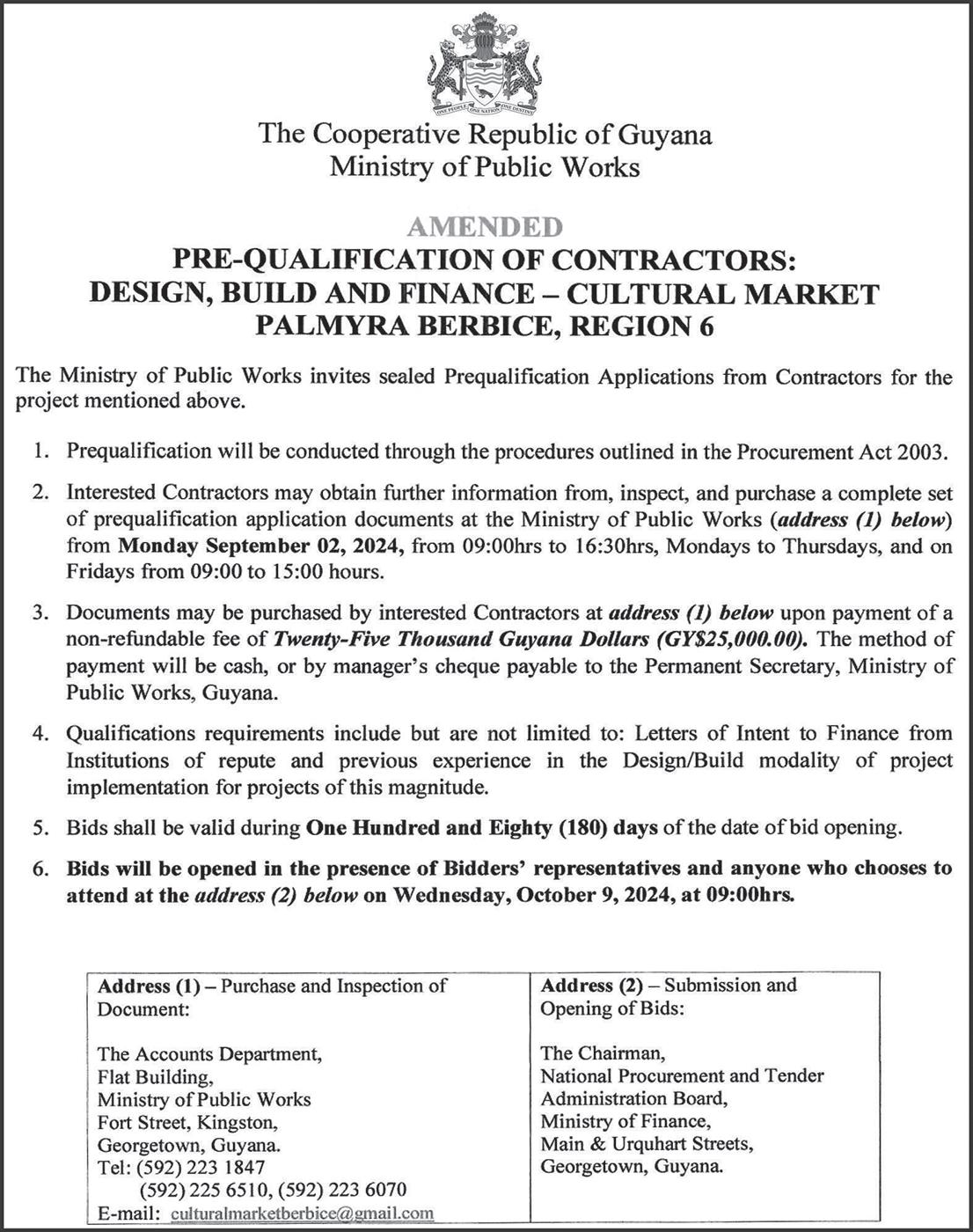

Preliminary investigations into Friday afternoon’s fire at the Demerara Distillers Limited (DDL) power plant facility in Diamond, East Bank Demerara, have revealed that several transformers and generators, along with a quantity of oil, were destroyed.
This is according to the Guyana Fire Service (GFS) in a statement on Saturday. It was noted that around 16:43h on Friday, the Fire Service received an urgent alert regarding a fire at the DDL power plant in Diamond.
Six firefighting units –two water tenders, two water carriers, a hose layer, and a fire boat – were immediately dispatched from Fire Service Headquarters, and West Ruimveldt, Eccles/Diamond, and Campbellville fire stations. The first unit arrived on the scene at 16:50h.
Under the leadership of Chief Fire Officer Gregory Wickham, a dedicated team of six officers and 22 firefighters worked diligently and expertly to bring the blaze under control. Their
efforts ensured that the fire was quickly contained to a single building, preventing further spread.
“The fire originated in the generator enclosure and caused significant damage. Among the destroyed items were one forklift, nine transformers, 23 drums of castor oil, and seven Caterpillar generators. Additionally, the fire spread to a nearby chemical bond…,” the Fire Service said in its missive.
It further noted that due to the quick response and expert firefighting efforts, the chemical bond and fuel storage areas were successfully protected and isolated.
Despite the challenges posed by the size and nature of the fire, the GFS stated that foam, dry chemicals, and water were strategically used to extinguish the flames
According to the GFS, officials are actively investigating the cause of the fire to determine its origin and prevent future incidents.
Meanwhile, DDL, in subsequent statement, related that the fire was observed at approximate-
ly 16:40h, near one of the generating sets. The local beverage company said its fire response team immediately went into action and worked to control the blaze until the arrival of GFS units.
One eyewitness had related that the roof of the power plant caved in, but no one was hurt. At the time of the blaze, no one was reportedly in the facility and those who were nearby rushed to safer ground.
The Fire Service on Saturday expressed gratitude and commendation to all the personnel involved in managing and containing this dangerous situation. It said their efforts undoubtedly prevented what could have been a catastrophic event for such a large company.
“The professionalism and commitment demonstrated by the team have been invaluable, and we continue to encourage the same level of dedication in every fire emergency as we remain committed to serving the Guyanese public with confidence and reliability,” the GFS stated.


The Guyana Police Force (GPF) has launched a manhunt for five suspects believed to be involved in the abduction of Joshua David, known as "Bricks".
The incident had reportedly occurred on Thursday, outside the New Thriving Chinese Restaurant on Main Street, Georgetown.
The suspects have been identified as Aaron Alleyne, known as "Cats", from West Ruimveldt, Georgetown; Alpha Poole, 28, from Lot 127 D’Aguiar Park, East Bank Demerara (EBD); Wayne Barker, 34, from Lot ‘G’ Norton Street, Lodge, Georgetown; Dwayne Griffith, 26, from Lot 68 William Street, Kitty, Georgetown; and Osafo Peters, known as "Saddest", from William Street, Kitty.

According to reports, David was ambushed and forced into a car allegedly by the group of suspects while he was out purchasing food with a friend.
Closed Circuit Television (CCTV) footage captured the suspects arriving on motorcycles and in a car, before swiftly overpowering David and fleeing the scene.
The vehicle was last seen heading north along Main Street before turning onto Lamaha Street and making its way toward the East Coast of Demerara (ECD).
Following the abduction, authorities have issued wanted bulletins for the suspects and are appealing to the public for any information that could
Croal urges patience as works continue to replace old pipelines in GT

Housing and Water Minister Collin Croal is pleading with the public to continue to exercise patience as engineers from the Guyana Water Inc (GWI) work to replace old metal pipes in Georgetown.
The GWI is expending millions to further upgrade the pipe infrastructure in Georgetown, in order to improve the level of service and quality of water customers receive.
Currently, works are ongoing on High Street within the vicinity of Umana Yana and from Hadfield Street to the Bank of Guyana.
GWI is replacing pipelines in a transmission network that was built between 1920 and 1960.
The scope of work includes the drilling of the main access road, removal of aged cast iron and asbestos cement pipes, and the installation of new Polyvinyl Chloride (PVC) and High-
density Polyethylene (HDPE) pipes, which present a much less chance of encrustation.
In providing an update to media, Minister Croal explained that work in the areas aforementioned would be completed soon.
“I know persons have been asking about the road. We can't really cap that road as yet, because we have one more portion of the road to cut out to change the connecting pipe. And so, we're asking for a maximum of 10 days within that vicinity. But there are some leakages along the way that we're trying to address. The second major change that we have happening now is from Brickdam road that will end up … [within the vicinity of the Bank again]. It is envisaged … both sides have to change out. We have now started work from Brickdam. We are waiting maybe in an -
other week, because we have to get permission,” the Minister explained.
Over the years, residents living in and around Georgetown have complained about low water pressure at various times during the day and night.
Croal highlighted that with the replacement of the aged mains, there would be an improved level of service and water quality.
“So, there are two major aspects for the change-out of the pipes that you see. For us, first of all, you have leakages that are happening in its own course of action. So, when we turn up the pressure here, you will have leakages that are happening in those areas. That is one aspect. Then, secondly, the heavier load that is traversing the road now. So, the heavier truck load, etc, that is traversing those main roads obviously is putting a lot of pressure underneath. So, just in those two areas it is very important for us to quickly have all of these old pipes, …change out as quickly as possible,” he added.
The replacement of the aged mains form part of GWI’s five-year Strategic Plan for 2021-2025.
Thus far, replacement works have been successfully executed along Vlissengen Road, Church Street, in Albouystown and along Sheriff Street.
assist in locating them. Investigators continue to follow leads, and the search for both David and his captors remains ongoing.
On Saturday evening, the Police said between
15:00h and 19:00h, acting on information received, Senior Police Officers and other ranks from Regional Divisions 4A (Georgetown) and 4C ECD, carried out searches in the Buxton
Backlands for David.
“The Police team utilised drones during the search, but nothing of evidential value was found. The search for Joshua David continues,” the Police said.
The lifeless body of a miner was found early Friday morning in a clump of bushes at Dogg Point, Bartica, Essequibo River, Region Seven (Cuyuni-Mazaruni), sparking a Police investigation.
The dead man has been identified as 50-year-old Leroy Baptist, a resident of Dogg Point. His body was discovered around 06:30h by a 36-year-old taxi driver,
also from Dogg Point, who reported the sighting to the Police.
According to Police, the taxi driver reported that he noticed Baptist’s motionless body lying in the grass.
When Police arrived at the scene, Baptist’s body was about 40 metres from two nearby houses. It was lying on a piece of wood, face-up, but there were no visible signs of violence, ac-
cording to investigators. Baptist’s body was taken to the Bartica Regional Hospital, where his death was officially pronounced at 08:00h by a doctor. The body has been placed in the hospital's mortuary, pending a post-mortem examination. Reports indicate that Baptist had a history of alcohol abuse, but the cause of his death remains unclear.
Aroutine search operation at the Mazaruni Prison early Saturday morning uncovered several prohibited items, including cell phones and makeshift weapons.
The joint exercise, conducted between 05:30h and 09:00h, involved officers from both the Guyana Police Force (GPF) and the Guyana Defence Force (GDF).
A total of 30 ranks participated in the operation, which focused on the Brick Prison and the Stores.
During the sweep, authorities seized five cellular phones and 15 improvised weapons. The discovery of these items once again highlights the ongoing challenges in curbing contraband within the prison system.
Officials are continuing investigations to determine how the banned items made their way into the prison and to hold those responsible accountable. No further details on disciplinary action were provided.
Just two months ago, 12
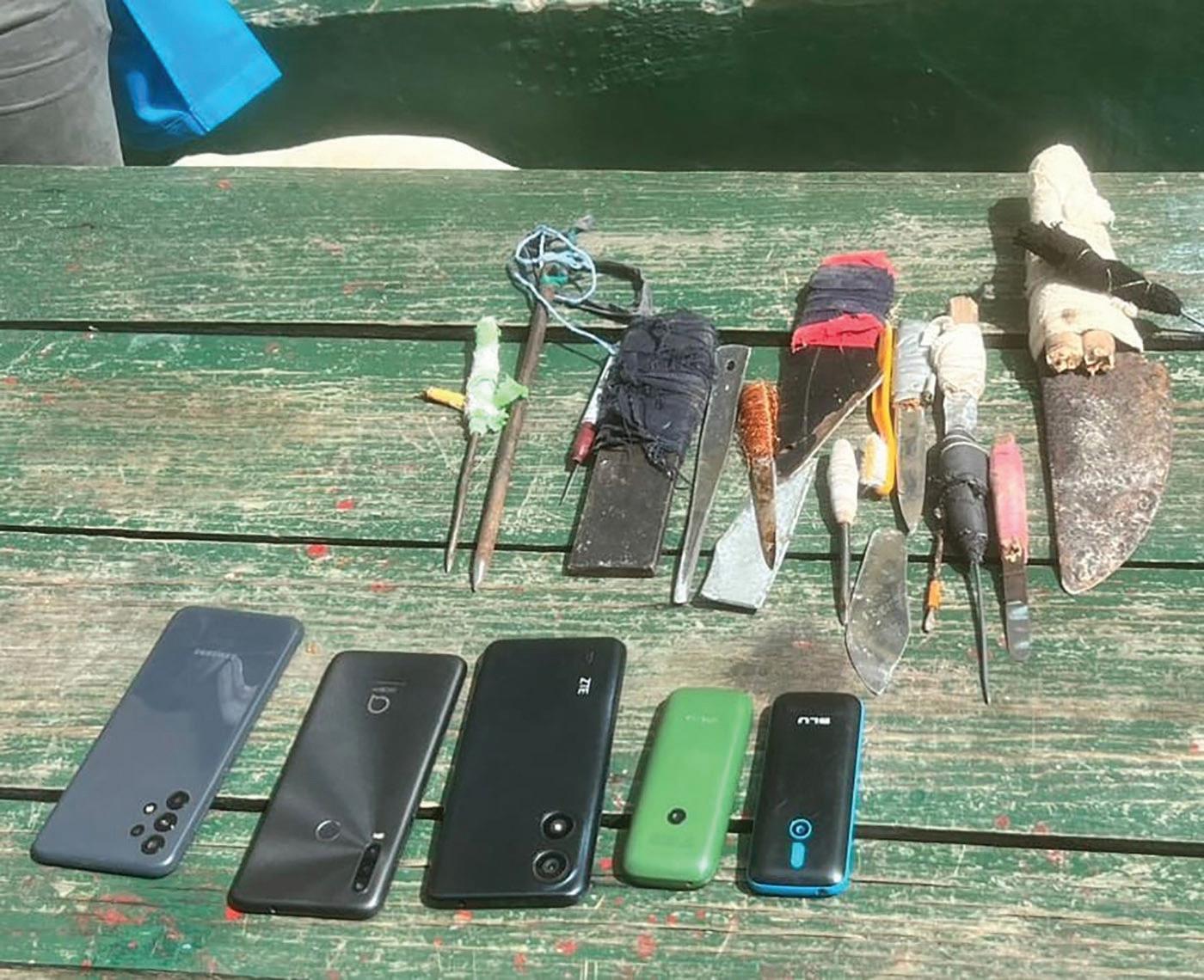
The items that were found during the raid
improvised weapons were among several contraband items found during a search in a condemned section of the Mazaruni Prison. Police stated that a joint prison search led to the discovery of four cellular phones, one cellphone charger, 12 lighters, and 12 improvised weapons.
Director of Prisons, Nicklon Elliot also indicat-
ed that the Guyana Prison Service (GPS) would be erecting signs at strategic points outside the prisons, warning the public to desist from such acts and the consequences attached to them. He warned that there would be no let-up in bringing down corrupt prison officers, family members, and friends of inmates who are bent on breaking the law.






















TAURUS (April 20May 20)

GEMINI (MAY 21June 20)






(June 21July 22)

LEO (July 23Aug. 22)

VIRGO (Aug. 23Sept. 22) (March 21April 19)

LIBRA (Sept. 23Oct. 23)

SCORPIO (Oct. 24Nov. 22)

SAGITTARIUS
(Nov. 23Dec. 21)



(Jan. 20Feb. 19) (Dec. 22Jan. 19)



(Feb. 20Mar. 20)

Direct your energy wisely. Question everything and take responsibility for what transpires. Expand your interests, knowledge and plans, and take credit for your successes. Proceed with confidence.
Actions will lead to opportunities. Believe in yourself and your abilities, and put yourself on display. A positive attitude and a desire to win will pay off.
You can stretch your imagination, but when it comes time to get things done, be reasonable and stick to what’s affordable. Engage in activities where you can use intelligence and experience to advance.
Choose your battles carefully. Wasting time on something that doesn’t pan out will frustrate you. If you want to make a difference, aim higher and make your cause worthwhile.
Use your intelligence and experience to make better choices and maintain a budget that won’t leave you financially vulnerable. Keep personal information and your intentions secret.
Give yourself a chance to think and breathe. Planning and budgeting are necessary before you engage in change. How much you are willing to do will determine the outcome.
Project an upbeat image, and you’ll attract positivity in return. Let your creative imagination lead the way, and you won’t be disappointed. Set expectations and fulfill your dreams, hopes and wishes.
Pamper yourself. Take a moment to organize and consider what brings you joy. Make a point to declutter and clear a path to your desired lifestyle. Put your energy to good use.
Someone will offer false information to entice you to participate in something foreign. Do your due diligence before you agree to anything, and you’ll avoid an emotional or financial loss. Protect your reputation.
Listen and evaluate; consider the cost of a joint venture and rethink your strategy and how best to handle situations. It’s essential to lay down ground rules before you embark on an adventure or a change.
An opportunity is within reach. Leap at the chance to invest or make a move that will increase your financial security. Expand your awareness, skills and connections. Your prospects look promising. Say no to bullying, excessive behavior and promising more than you can deliver. Put your energy into personal growth, gains and physical fitness, and you’ll achieve happiness.




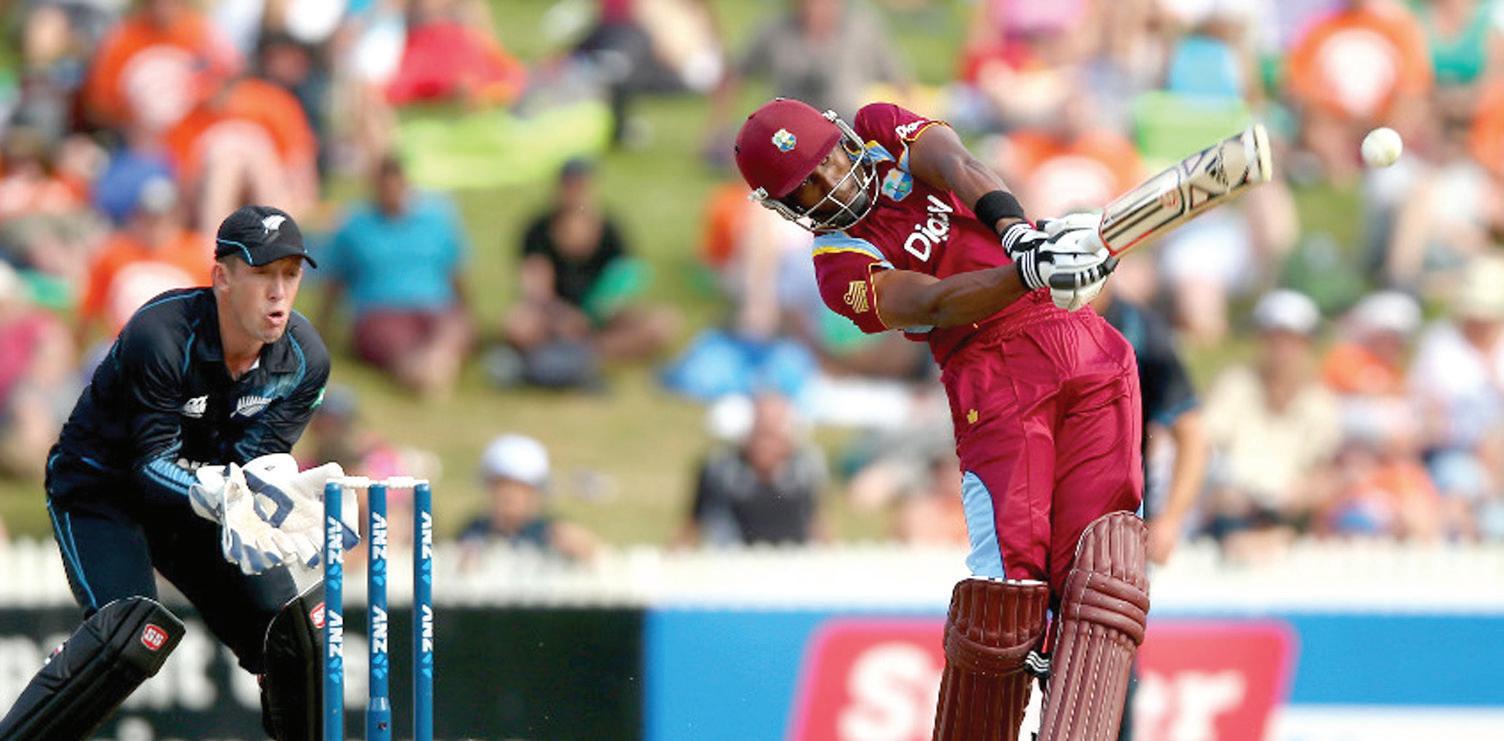

The cricket sponsorship between the Rose Hall Town Youth and Sports Club (RHTY&SC) and the National Milling Company of Guyana has been renewed for another year, after RHTY&SC executive Hilbert Foster led a delegation of club members at a meeting held at the company’s Agricola, East Bank Demerara offices. The Announcement of the renewal was done by the NAMILCO Managing Director Bert Sukhai. The RHTY&SC delegation comprised NAMILCO player Matthew Pottaya and West Indies under-19 player Danellie Manns, while the officials of NAMILCO included Marketing Manager Alicia Anderson.
Foster stated that NAMILCO has been the official sponsor of the Rose Hall Town Youth and Sports Club’s under-21 and first-division teams since 2019, and added that the club was very delighted for the rekindling of the relationship. The longstanding club secretary noted that both teams were very proud to represent the NAMILCO Thunderbolt Flour brand on and off the cricket field, as NAMILCO has been a true friend over
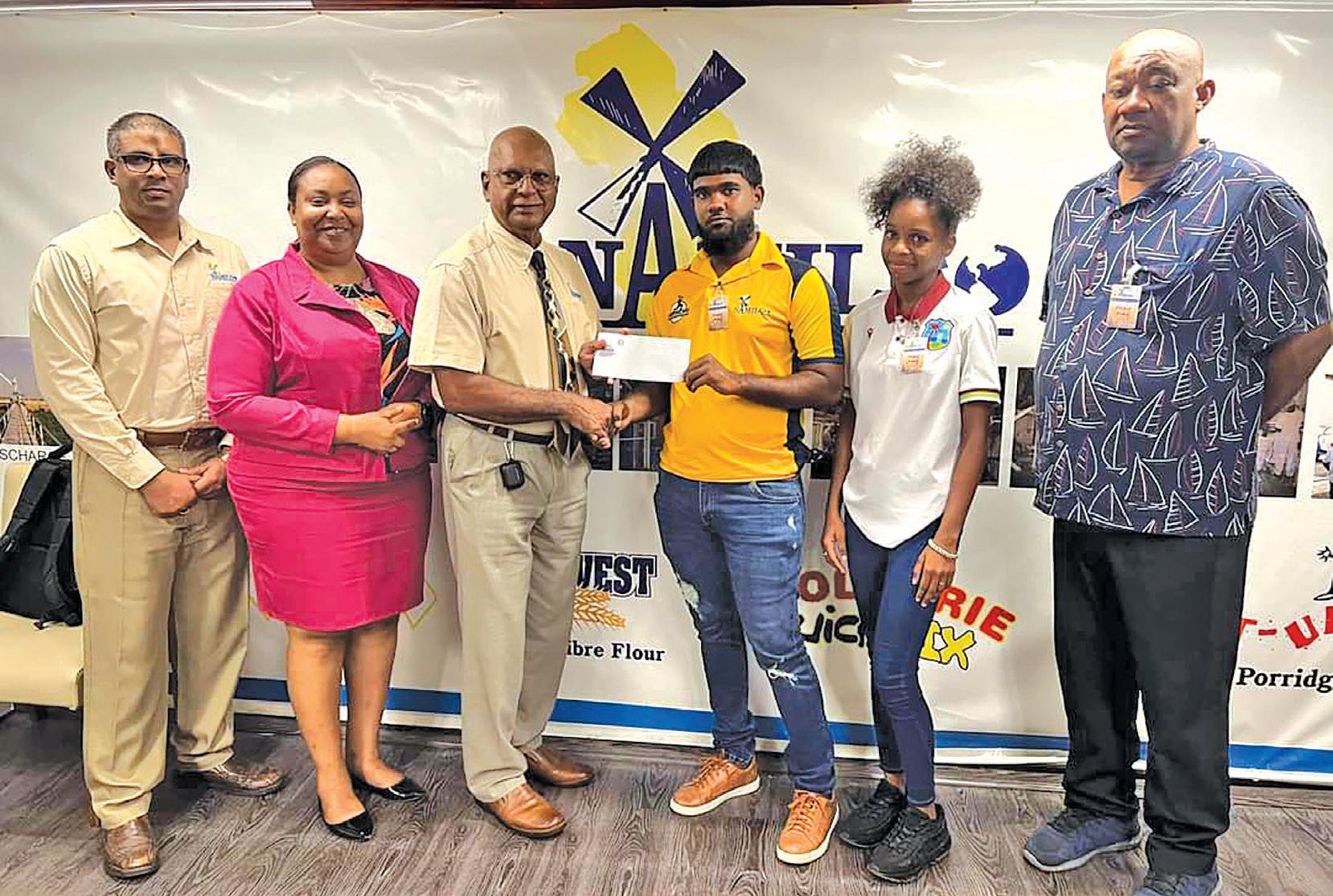
the years. The RHTY&SC NAMILCO Thunderbolt Flour first- division team has been the most dominant Berbice team over the last few years, and has produced numerous players for Berbice and Guyana. A total of 13 club members represented Guyana over the last year, while close to 30 were part of Berbice teams at different levels.
These players include Kevin Sinclair, Kevlon Anderson, Junior Sinclair, Shemaine Campbelle, Silas Tindall, Sheneta Grimmond, Shabika Gajnabi, Trisha Hardat, Danellie Manns, Sohail Mohammed and Romesh Bharat.
Foster proudly informed the NAMILCO representatives that the RHTY&SC has six members in the 2024 Caribbean Premier
League (CPL), 3 males and 3 females. Campbelle is currently with the West Indies female senior team, where she is the vice- captain. Four of the NAMILCO players: Kevin Sinclair, Junior Sinclair, Kevlon Anderson and Silas Tindall, also enjoy contracts at the national level, while Campbell, Grimmond and Gajnabi have regional contracts.
Foster stated that the
ICC Women’s T20 World Cup…
first-division team has only lost one title under the NAMILCO sponsorship, and the club is investing heavily in new equipment such as practice nets, batting mats, fielding practice equipment, bowling machine, junior cricket kits and numerous boxes of cricket balls for training programmes. The teams under the leadership of Clinton Pestano were successful in completing over 60 self-development programmes under the sponsorship, among which are the annual academy, awards ceremony, grade 6 summer camp, tribute to medical workers, tribute to town council workers, tribute to law enforcement officers, Walter Nero Tribute to hero, Jessica Sandia Tribute to mothers, and the highly popular annual Christmas Village. From September 14 to 25, the team hosted the anniversary celebration of Rose Hall Town in conjunction with the Rose Hall Town Council. Among the 16 events hosted were the awarding of bursaries to six youths, while 16-year-old Marissa Siriram received a $250,000 University of Guyana (UG) scholarship.
The teams will be hosting a team of medical person-
nel from the USA on October 29 for a medical outreach and will also host their 13th annual Christmas Outreach programme from December 15 to 24.
NAMILCO Managing Director Bert Sukhai stated that his company was very pleased with the output of the team on and off the field. He noted that the company receives widespread media coverage and it has been a highly successful bond between the NAMILCO and the RHTY&SC. He urged the team to continue playing as a unit on the field while working hard off it to make a positive difference in the lives of others via the selfdevelopment programmes. Foster and Sukhai also discussed NAMILCO’s support for the upcoming “Say No to drugs, alcohol, and suicide” campaign. The teams presented a unique piece of art done by Sean Bascom as a thank you gesture to the company. Among the other players currently playing for the NAMILCO team are Jonathan Rampersaud, Matthew Pottaya Romesh Bharat, Jason Sinclair, Keith Simpson, Jeremy Sandia, Keon Sinclair and Rafael McKenzie.
The 2016 generation has come of age; it is time to inspire the next one – Matthews
As told by West Indies Women’s Captain Hayley Matthews,
“The 2016 ICC Women's T20 World Cup win gets brought up in the group from time to time, mainly because it feels like it was so long ago. The older players often talk about the emotions surrounding that victory — not just what it meant for us, but also for the younger girls watching, as they were coming up through the system. As a team now, we're hoping to recreate that success, knowing how much of an impact it will have — not just on us, but on cricket in the Caribbean, where the sport holds such huge significance.
“We can see first-hand what (we), as the older girls in the group, have done for the younger girls coming in now, and we would just love to be able to inspire another generation of girls coming up.
“Looking at the present, we’re coming to a World Cup, and we want to win, who doesn’t? I think a World Cup is one of those tournaments, especially T20 World Cups, where, if you have some good performances on a big day, it can get you through the stages.
“This is, if not our best, definitely one of our best squads that we have had at a T20 World Cup. We have seen a lot of our senior players really improve; like Shemaine Campbelle, who has been so much more consistent lately. And players like Aaliyah Alleyne, who has stepped up and improved her game and has played more important roles in matches.
“The thing that has been really good is the camaraderie in the group. It feels like a massive safe space and

somewhere where everyone feels super comfortable. Even the young ones who have come into the group have been able to settle and gel really well with the older ones, and there is tremen-
dous mutual respect, which is really good for us.
“Spin tends to dominate World Cups, no matter where they're played. In women's cricket especially, spinners frequently top the charts
and rankings; so, I believe spin will play a significant role. Fortunately for us, we have got quite a few spinners in our arsenal: Karishma Ramharack, Stafanie Taylor, Afy Fletcher, Qiana Joseph, young Zaida James, and me.
We strongly believe that spin will play a major role, and the team has been selected with that in mind. Hopefully, as a spin unit, we can go out there and make a significant impact with the ball.
“It’s hard to believe I’ve just reached 10 years in international cricket. It feels like the time has flown by; and in many ways, it still feels like I’m just starting out. I remember making my debut at Arnos Vale Stadium in St. Vincent and the Grenadines, walking onto the field nervous and trembling, fulfilling a lifelong dream. Looking back
now, 10 years have passed, and I’m now the captain of the West Indies. So much has changed since that day.
“One area I’ve struggled with early on is maintaining consistency, but I have been able to improve vastly over the last couple of years. I feel like if I can keep up with the consistency I have now and the performances I have now, I can hopefully finish this game as one of the best. I think I still have a long way to go, so I am just taking it one step at a time and trying to perform well every time I go out on the park, and whatever comes from it will come from it.”
The ICC Women’s T20 World Cup is scheduled to bowl off on Thursday October 3 in Dubai. West Indies will spring into action the following day, Friday, October 4, against South Africa’s Women. (ICC)



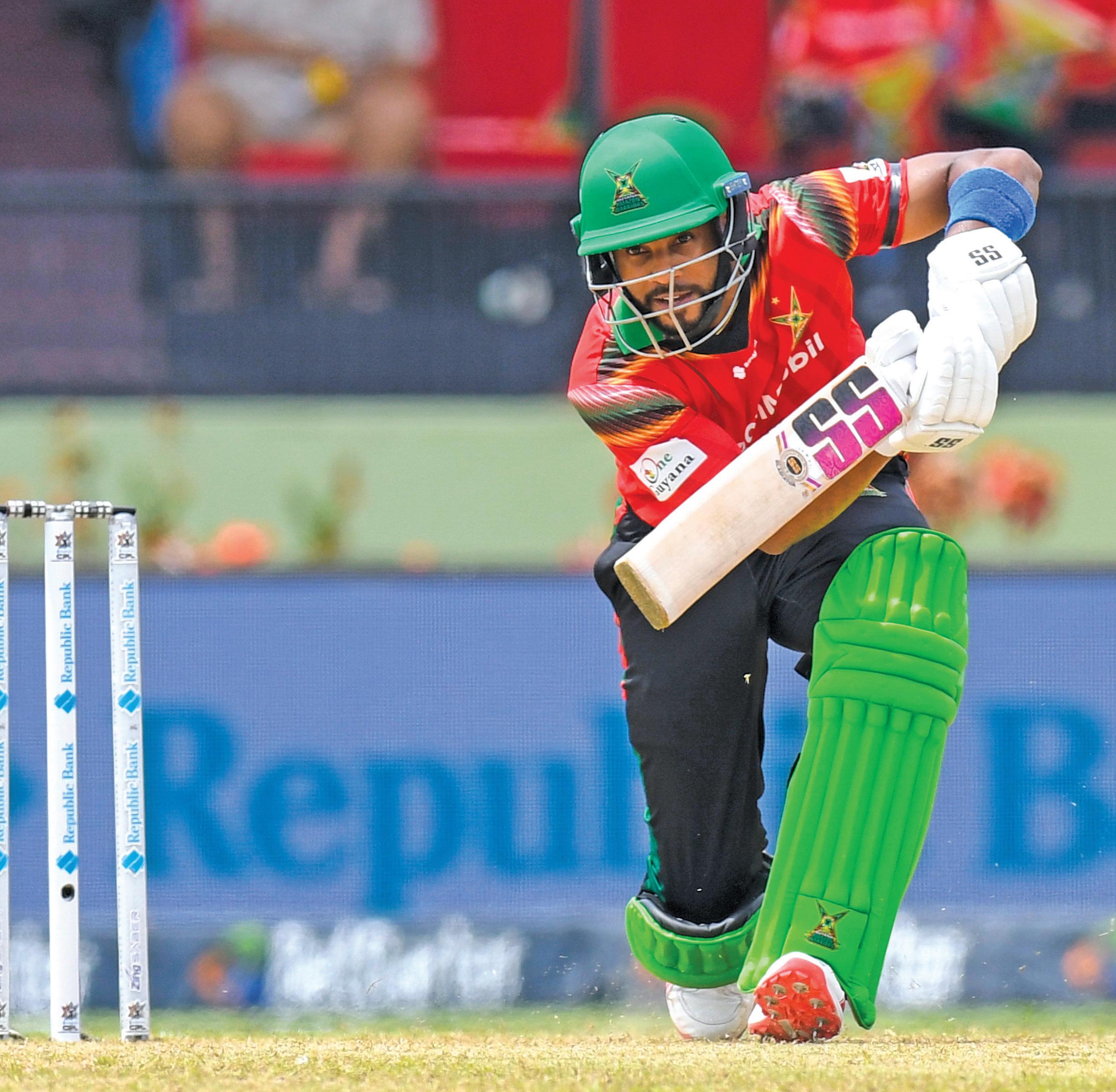
Republic Bank
Caribbean Premier League (RBLCPL) Champions, Guyana Amazon Warriors, have regained their rightful place at the top of the CPL points table following their fourth consecutive victory at home.
Under the blistering sun on Saturday morning, the St. Lucia Kings became the Amazon Warriors’ latest victims as they failed to chase a +200-run total.
They had been asked to bowl first at the Guyana National Stadium, and the first two overs faced by Rahmanullah Gurbaz and Azam Khan were quiet ones, with Khary Pierre and Alzarri Joseph conceding 5 and 4 runs respectively. However, as the Warriors became more accustomed to the rotation, the run rate shot up significantly, and boundaries began to flow freely.
The situation only got better for the defend
with a hat trick of boundaries coming in the first five balls. But the Afghanistan native had the last laugh when Khan (26) skied his final delivery and it was comfortably taken by Pierre at short fine leg.
In the blink of an eye, the pair of Warriors in the middle changed completely, as Gurbaz (26) fell prey to David Wiese in the subsequent over.
At the very least, however, Warriors could rest assured with the HetmyerHope pair that fired them to a commanding total three nights prior. This time around, Shimron Hetmyer took control of the partnership and acted as the aggressor, while Hope had added time to get comfortable on the conditions.
Hetmyer ensured there was at least a boundary of some sort in each over, and with Hope pitching in, Warriors’ scoring lingered

The Berbician, who took a
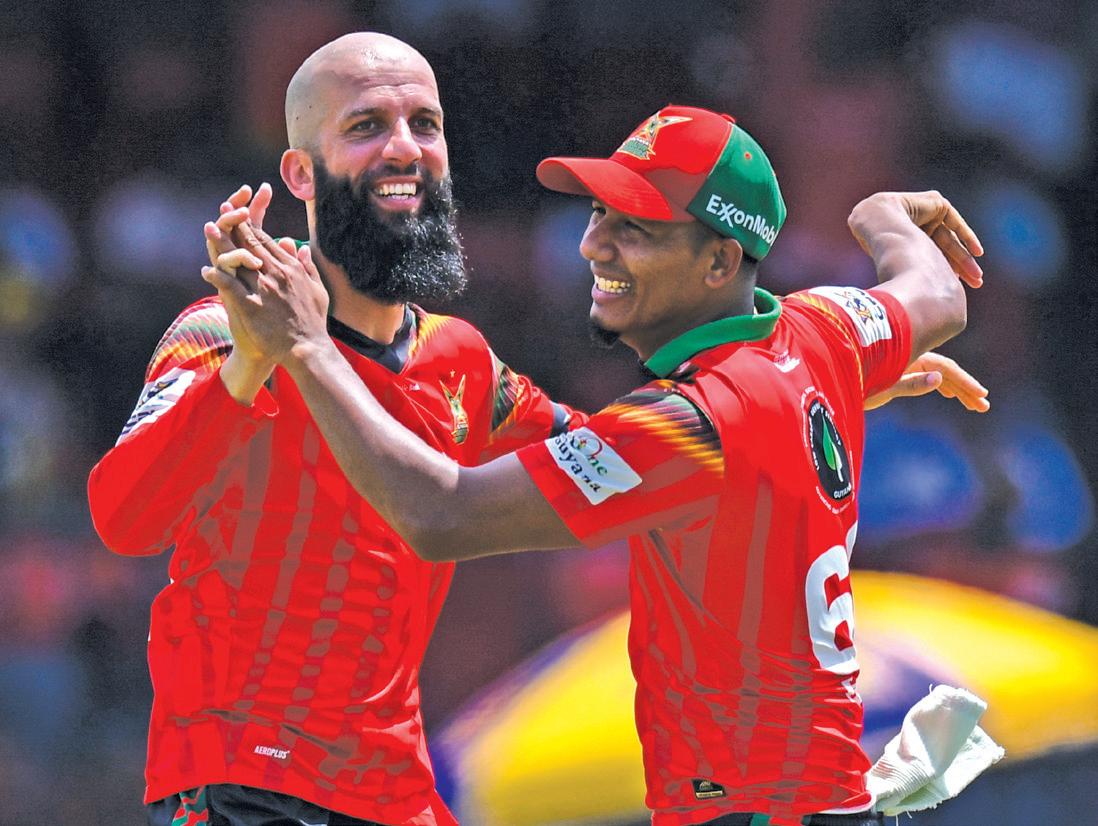
slammed 16 runs to race past the 50-run mark in just 26 balls. However, Alzarri Joseph exacted revenge on Descarte’s behalf by teasing Hetmyer with a slow off cutter, which he sent flying into the reliable hands of Faf du Plessis to end another exceptional innings of 58 from 20 deliveries.
By that juncture, Hope, with almost a run-a-ball 26, knew that he had to get going. The Barbadian thrashed Khary Pierre’s final over for 24 runs to bring up his second consecutive 50 in just 29 balls. Hope could not convert the score, however, and fell prey to David Wiese in the next over for 56 after a glorious Republic Bank maximum, and there began the Amazon Warriors’ brief lull.

Following Hope’s wicket in the 17th, Keemo Paul, Moeen Ali and Romario Shepherd fell one after the other in each of the remaining overs. The wickets were punctuated by occasional boundaries which got the defending champions up to 2077 by the end of the innings.
The Royals showed their intent to stay at the top of the table with an aggressive start, but the Amazon Warriors were equally up to the challenge. After Gudakesh Motie’s opening over had gone for 11, and he had dropped a Johnson Charles catch for 6 in the same over, it appeared as though the situation was getting woeful, but the Berbician had his revenge in his next over when he dismissed Charles for 12.
The pendulum again swung in the visitors’ favour when du Plessis slammed 22 runs off Romario Shepherd’s first over, but Moeen Ali ended the party before it could get going by removing Ackeem Auguste in the following over.
Then Captain Tahir came to the party, striking once in each of his first two
To add the cherry on top,
played a part in capturing the wicket of Tim Seifert in the following over, when he
dived to his left at short fine leg to pick up a brilliant catch and gift Moeen Ali his second wicket.
Again Tahir took off sprinting, and the spirited Amazon Warriors fans joined their captain in jubilation.
At that point they knew that, with the Kings on 775, the Amazon Warriors were confident of another sure victory.

Guyana Amazon Warriors (20 ovs maximum)
Rahmanullah Gurbaz c Joseph
b Wiese 26
Azam Khan c Pierre
b Noor Ahmad 26
Shai Hope † c du Plessis
b Wiese 56
Shimron Hetmyer c du Plessis
b Joseph 58
Romario Shepherd c Wiese
b Joseph 24
Keemo Paul c Pierre
b Noor Ahmad 1
Moeen Ali c Pierre
b Wiese 1
Dwaine Pretorius not out 6
Gudakesh Motie not out 1
Extras (nb 2, w 6) 8
Total 20 Ov (RR: 10.35) 207/7
Did not bat: Junior Sinclair, Imran Tahir (c)
Fall of wickets: 1-49 (Azam Khan, 4.6 ov), 2-53 (Rahmanullah Gurbaz, 5.5 ov), 3-138 (Shimron Hetmyer, 14.2 ov), 4-179 (Shai Hope, 16.3 ov), 5-186 (Keemo Paul, 17.3 ov), 6-200 (Moeen Ali, 18.6 ov), 7-200 (Romario Shepherd, 19.1 ov) • Bowling O-M-R-W
Khary Pierre 4-0-52-0
Alzarri Joseph 4-0-39-2
Noor Ahmad 4-0-26-2
David Wiese 4-0-43-3
Roston Chase 2-0-17-0
Shadrack Descarte 2-0-30-0
St Lucia Kings (T: 208 runs from 20 ovs)
Faf du Plessis (c) not out 92
Johnson Charles c Imran Tahir
b Motie 12
Ackeem Auguste c Motie
b Ali 12
Roston Chase
b Imran Tahir 5
Aaron Jones c †Hope b Imran Tahir 1
Tim Seifert † c Imran Tahir
b Ali 1
David Wiese lbw
b Motie 14
Opposing Captain du Plessis carried his team on his back in fighting several bouts of violent cramps to ensure his team was not bowled out. The South African persisted even after the wickets of David Wiese and Shadrack Descarte, and was able to rely on the experience of Alzarri Joseph in the end. Joseph proved to be an enduring partner, hitting the second highest score on the team: 25 from 21 deliveries, to support du Plessis’ unbeaten 92 off 59, as the Kings ended their innings on 172-7, being 35 runs short of their target.



